

Thank you to all speakers, sponsors, partners & delegates who joined us. We look forward to seeing you at the 2026 edition. In the meantime, should you wish to find out more about speaking and sponsorship opportunities at next year’s event, please contact anne-lise.simon@forum-global.com
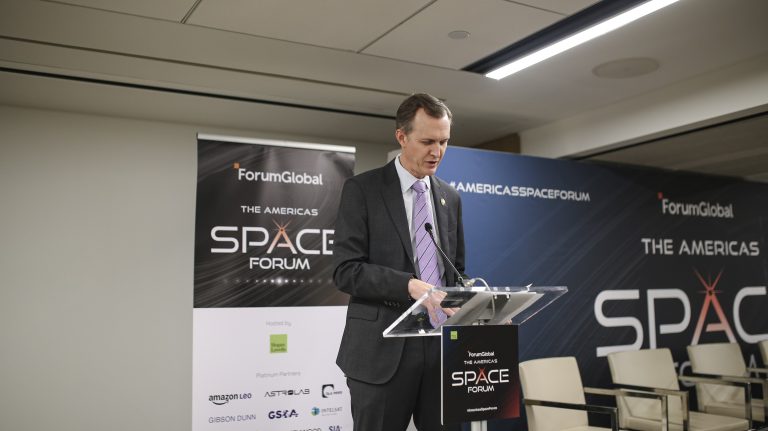
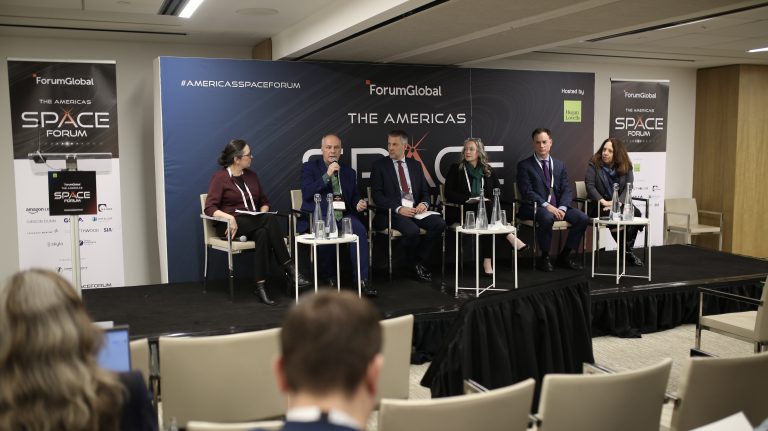
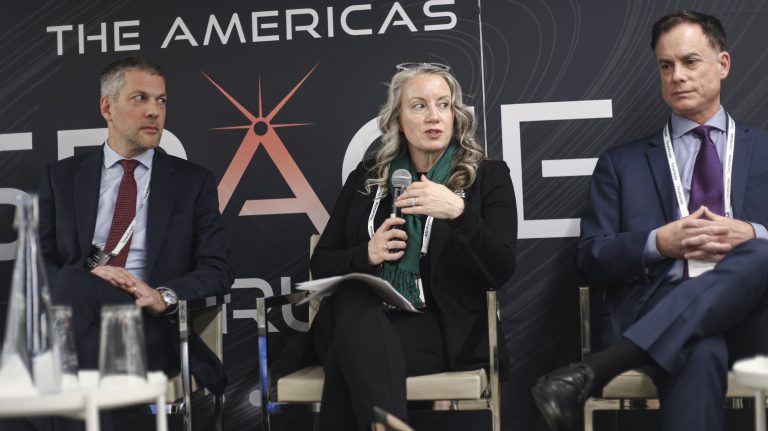
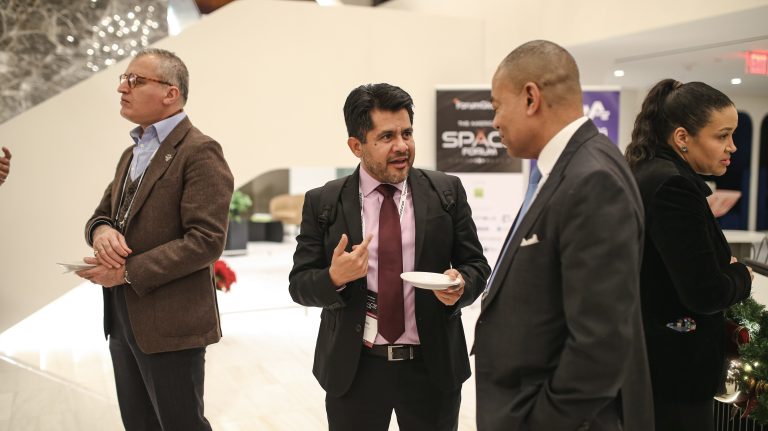

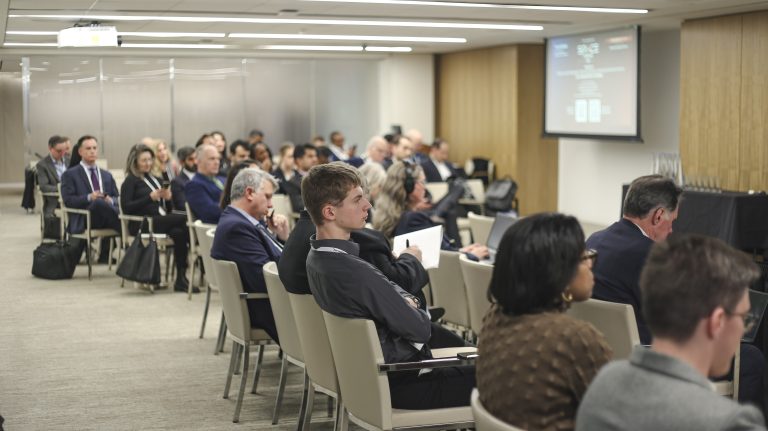
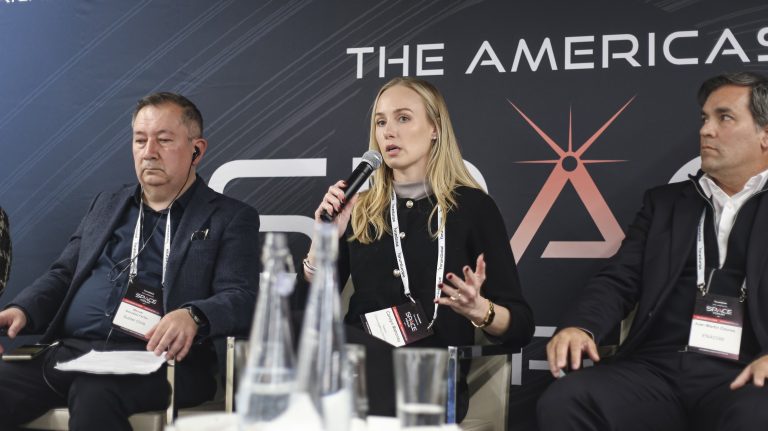
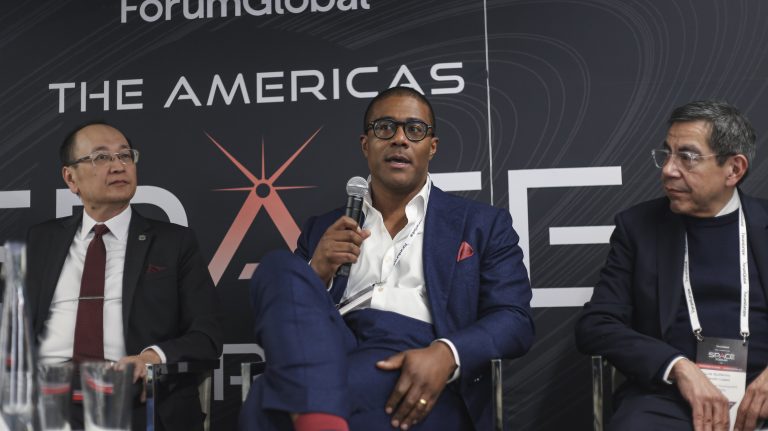
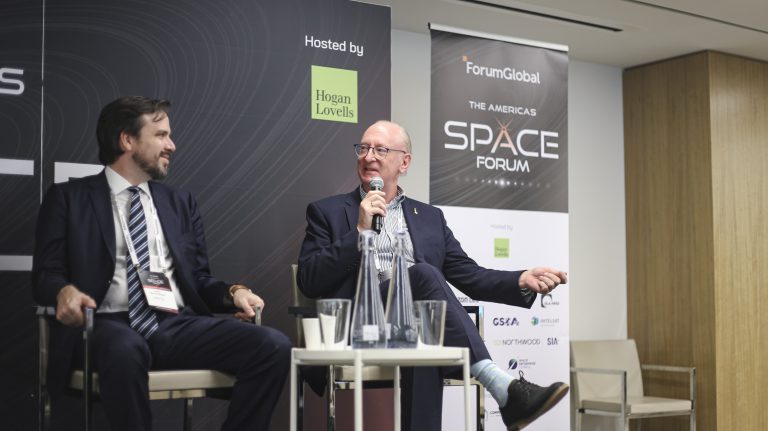
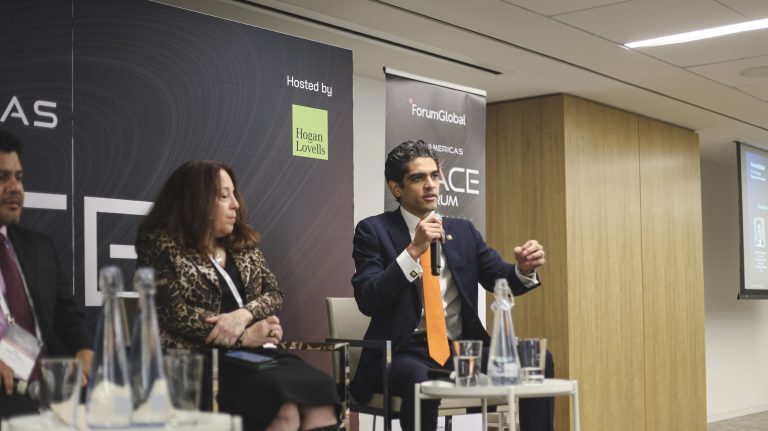
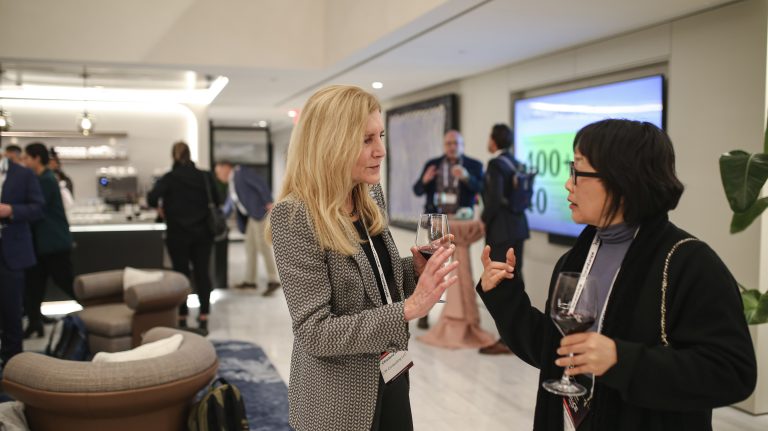
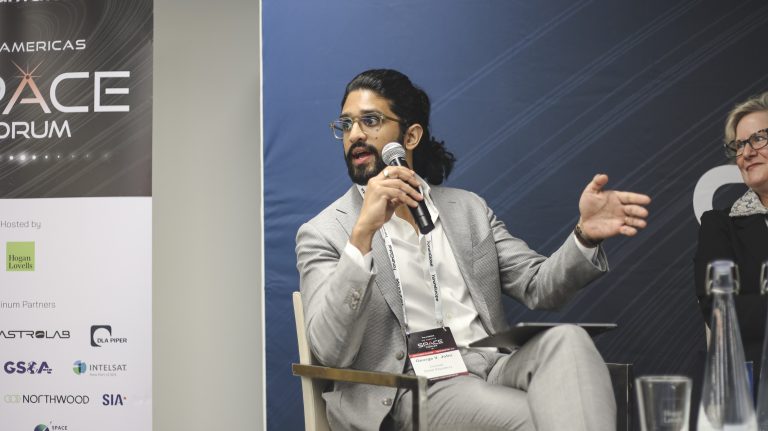
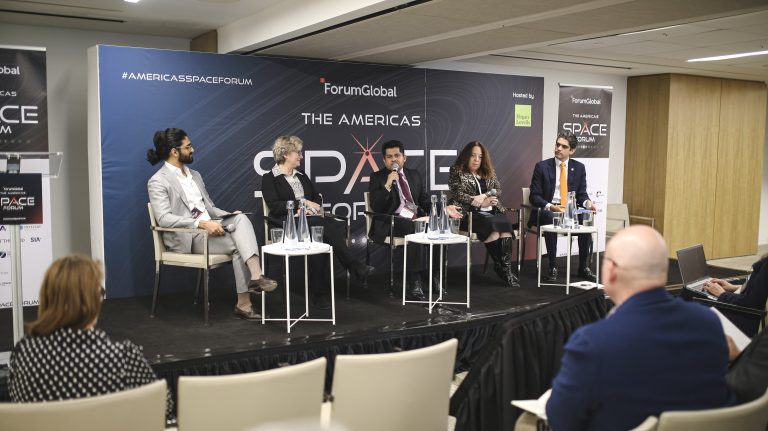
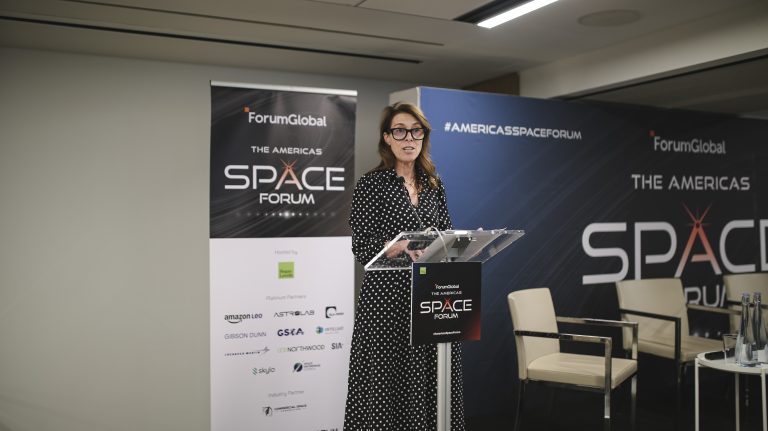
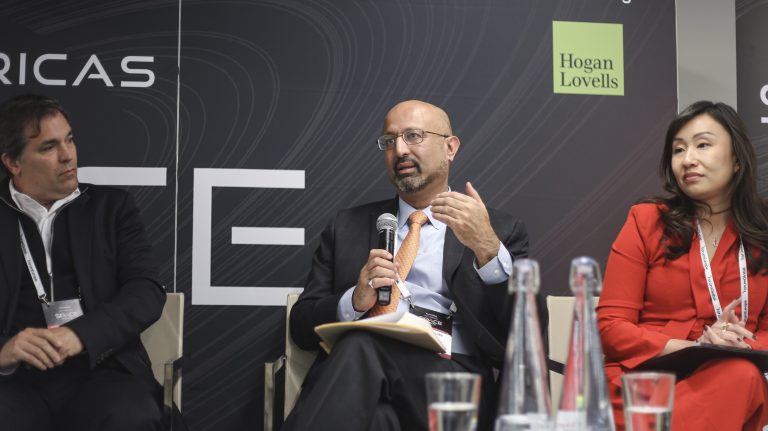
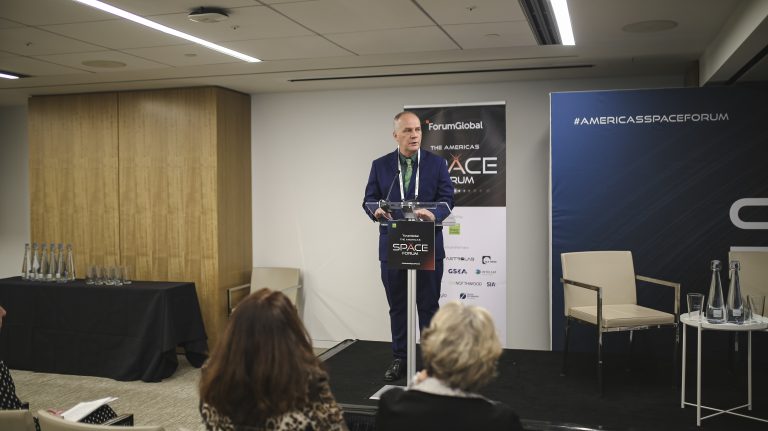
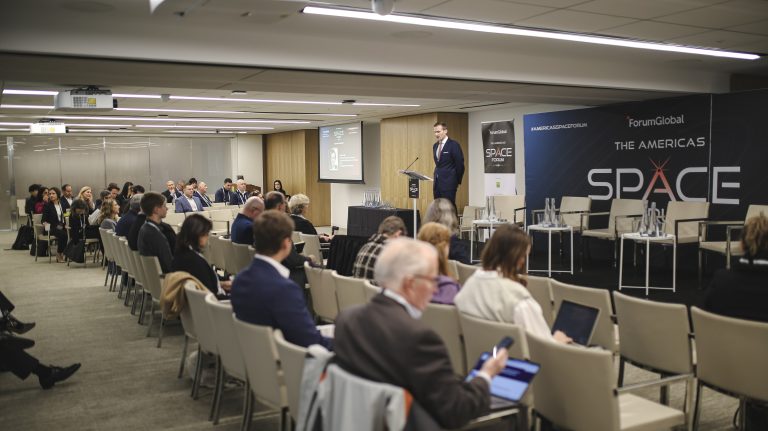
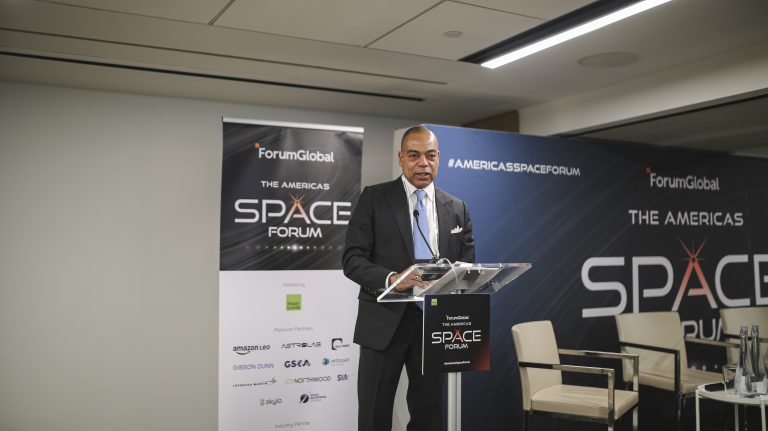
Launched in Washington, D.C. on December 9, 2025, the inaugural Americas Space Forum brought together stakeholders from across the Americas to shape the future of the space ecosystem across the region.
This exciting new event provided a dedicated platform for collaboration, fostering a shared vision for building a strong, sustainable, and interconnected regional space sector. Sessions were highly interactive, fostering open dialogue and collaboration among speakers and attendees, and encouraging the free exchange of ideas and constructive challenges.
Realising the Vision
Can Direct-to-Device Connectivity Fulfil Its Potential?
Brussels | 1 July 2025 (Co-located with The European Space Forum)
Through interactive discussions on regulation, spectrum strategies, business models, and emerging use cases, this 1 day forum will explore how D2D can fulfil its potential and drive innovation across the connectivity landscape.
For more information and to access the event website, please visit
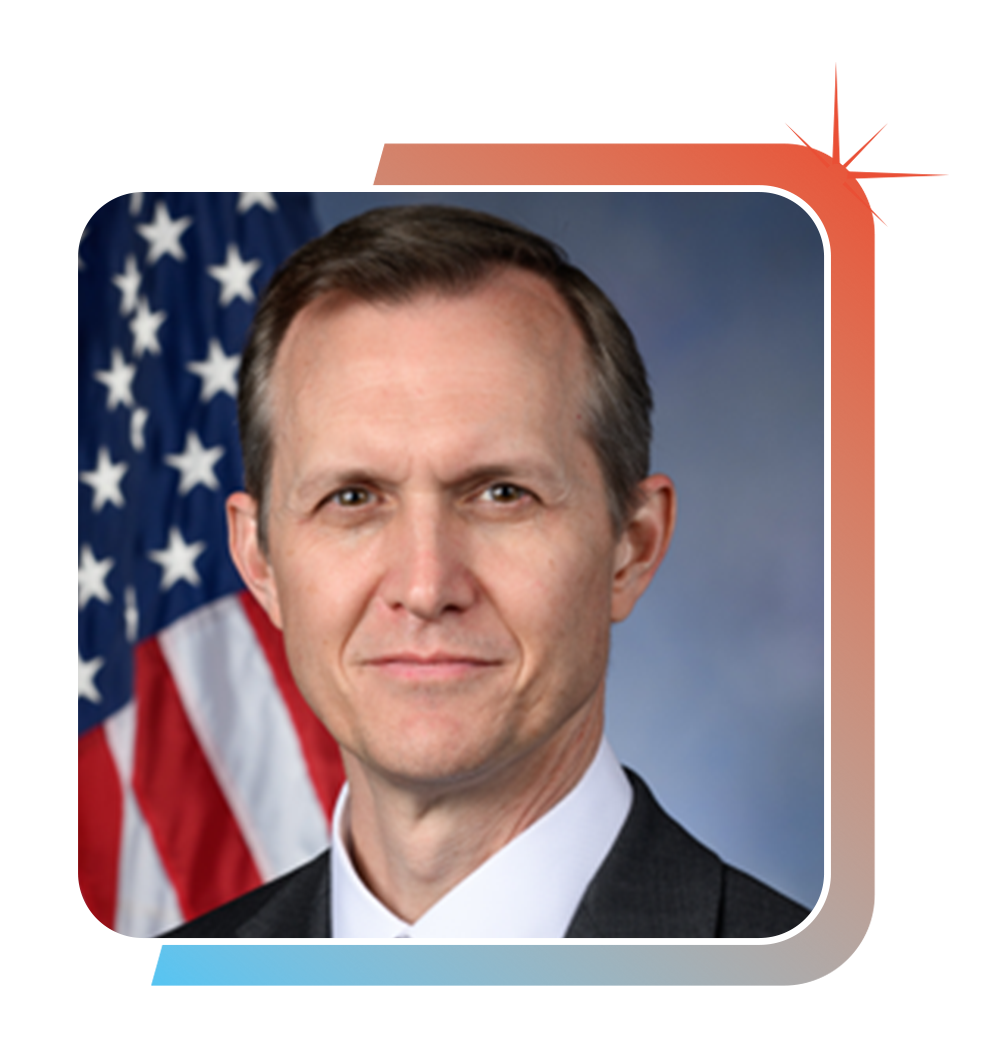
 George T. Whitesides Representative for California's 27th district, and Former Chief of Staff at NASA US House of Representatives
George T. Whitesides Representative for California's 27th district, and Former Chief of Staff at NASA US House of Representatives Congressman George Whitesides is proudly serving his first term representing California’s 27th Congressional District and sits on both the House Armed Services Committee and as Vice Ranking Member of the House Science, Space, and Technology Committee. He is a problem-solver, innovator, and community leader with a career spanning space industry leadership, job creation, and public service.
Over the past two decades, Congressman Whitesides helped lead NASA to new heights, created hundreds of quality jobs in the Antelope Valley, and supported frontline responders and public health efforts, especially in response to the wildfire crisis.
Congressman Whitesides served as Chief of Staff at NASA during the Obama administration, where he led agency reforms that helped pave the way for America’s current leadership in space. For his contributions, he was awarded NASA’s Distinguished Service Medal, the agency’s highest honor.
Following his time at NASA, Congressman Whitesides became the first CEO of Virgin Galactic, an innovative aerospace company. Over the course of a decade, he created over 700 jobs in the Antelope Valley, transformed Virgin Galactic from a small team into a global aerospace firm, and oversaw the first woman to reach space aboard a commercial space vehicle.
As wildfires have become increasingly destructive across Southern California, Congressman Whitesides has prioritized public safety and climate resilience. He co-founded a policy nonprofit solely dedicated to addressing the nation’s wildfire crisis and home insurance problems. Now, he’s helping his community and neighbors rebuild from the devastating fires, and working on proactive solutions to prevent the next crisis.
Locally, Congressman Whitesides has demonstrated his economic and social leadership through positions on business development boards and task forces. He previously served on the board of AV EDGE (Antelope Valley Economic Development and Growth Enterprise), helping drive economic growth and opportunity in the region. He co-chaired the Antelope Valley COVID-19 Task Force, uniting NASA, industry, local government, and Antelope Valley College to support frontline medical workers — work that earned him NASA’s Exceptional Public Achievement Medal.
George and his wife, Loretta Hidalgo Whitesides, have been married for nearly 20 years and raise their two children together.
Representative for California's 27th district, and Former Chief of Staff at NASA
US House of Representatives
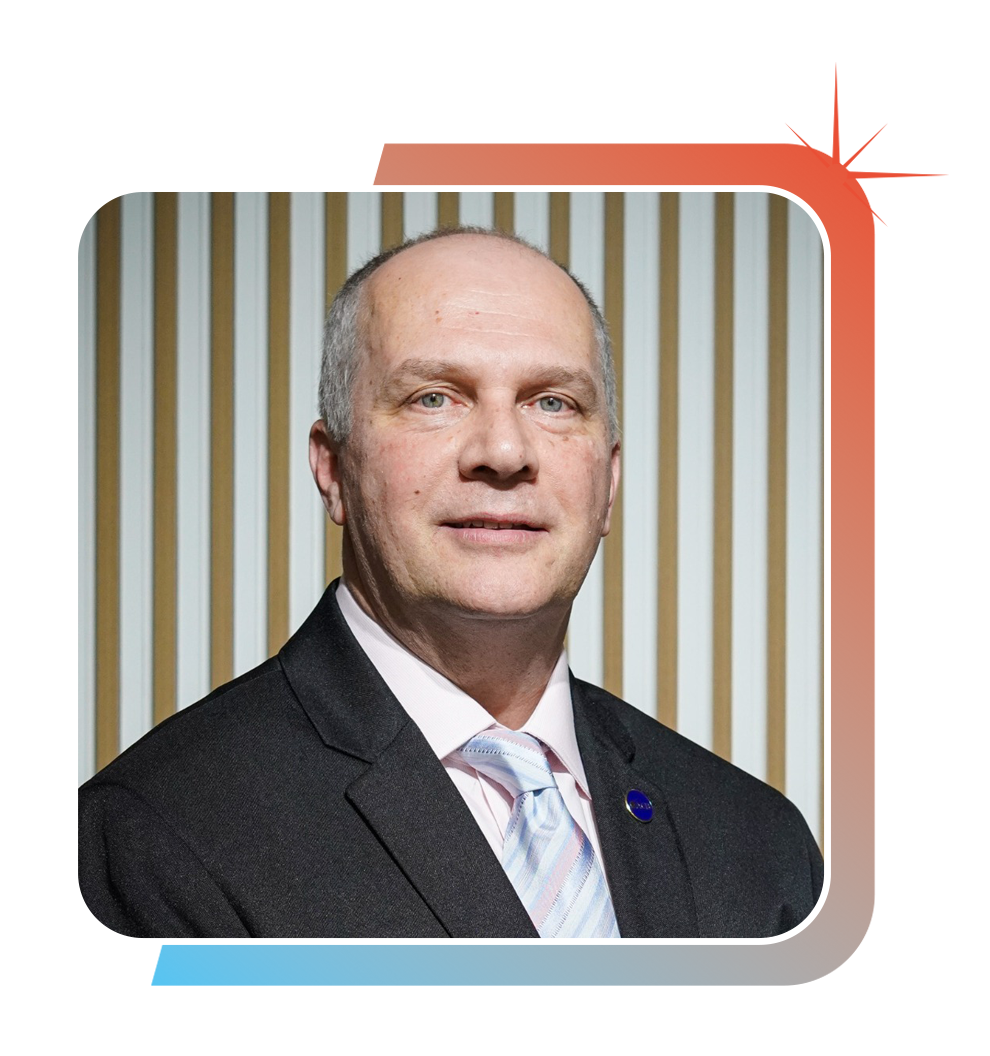
 Marco Antonio Chamon, President, Brazilian Space Agency (AEB)
Marco Antonio Chamon, President, Brazilian Space Agency (AEB) Graduated in Electrical Engineering from the State University of Campinas – Unicamp (1984), a Master’s degree in Space Engineering and Technology from the National Institute for Space Research – INPE, Brazil (1989) and a PhD in Electronics from the Ecole Nationale Supérieure de L’Aéronautique et de L’Espace – SUPAERO, France (1996).
He was coordinator of the scientific satellites program at the National Institute for Space
Research (INPE), Technology Management Coordinator, Deputy Coordinator of Space
Engineering and Technology, and Planning, Budget, and Evaluation Coordinator at INPE. He also served as the manager of the SABIA-Mar space mission, dedicated to oceanographic
studies.
He has conducted research related to Estimation Theory, development of GPS navigation
systems, and telecommunications systems for space applications.
As the president of the Brazilian Space Agency (AEB), Marco Antonio Chamon is committed to leading and strengthening AEB’s mission in developing and promoting space activities in the country. His technical expertise and strategic vision are fundamental to boosting the
Brazilian aerospace industry, fostering scientific research, and establishing national and
international partnerships that drive the sector forward.
President
Brazilian Space Agency (AEB)
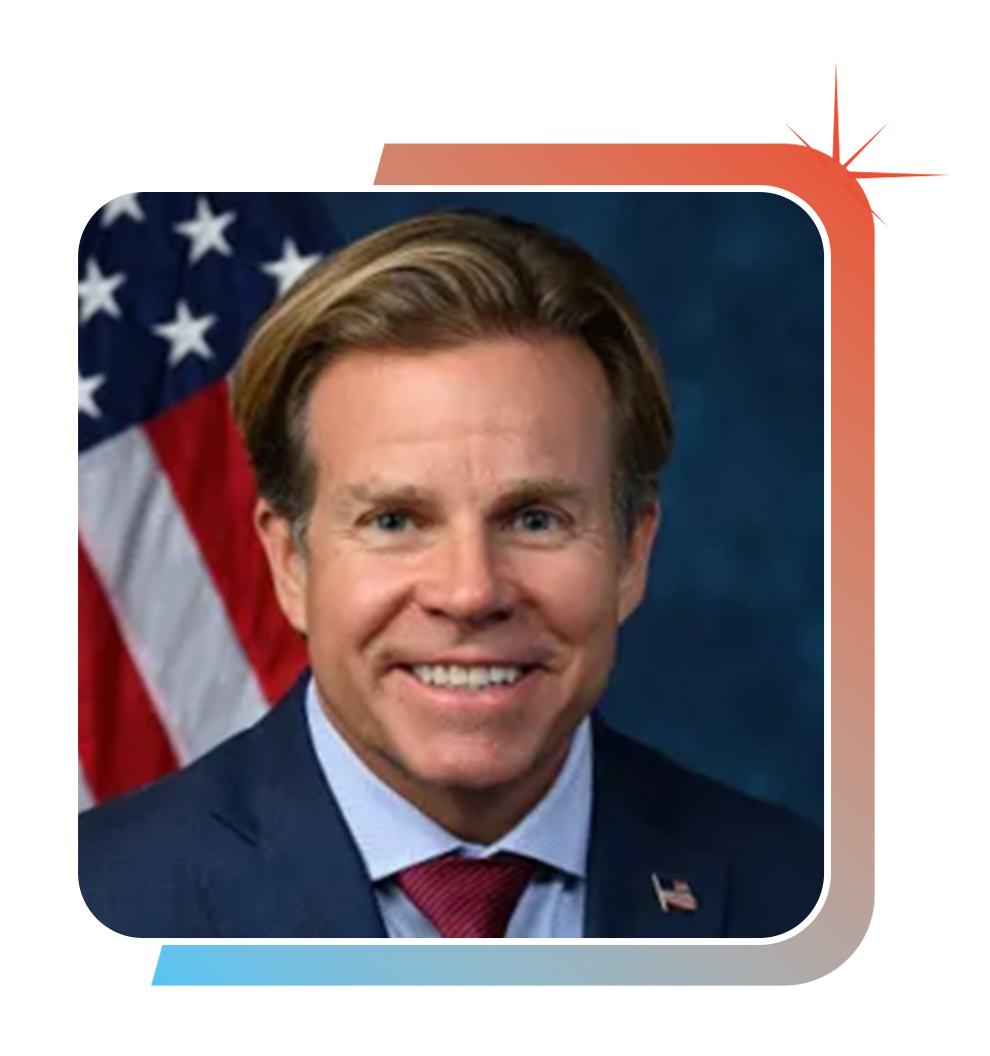
 Mike Haridopolos, Chair on the Congressional Subcommittee on Space and Aeronautics, US House of Representatives
Mike Haridopolos, Chair on the Congressional Subcommittee on Space and Aeronautics, US House of Representatives Congressman Mike Haridopolos is an experienced leader with a rich history of public service, business success, and a steadfast lifelong commitment to conservative values.
Congressman Haridopolos began his career teaching United States History and Political Science at Brevard Community College—now Eastern Florida State College, and taught classes as an instructor at the Bob Graham Center at the University of Florida.
Representing communities in Brevard County in the Florida House of Representatives and the State Senate from 2000-2012, Mike championed transparency, reduced taxes, and advanced conservative reforms. In the Florida Legislature, Mike quickly established himself as a capable lawmaker who stood firmly rooted in his conservative values, and pushed for greater government transparency and accountability for Floridians, leading the effort to put the state’s budget online. In 2008, he sponsored and championed Florida’s constitutional amendment reducing property taxes and allowing homeowners to bring their tax savings with them when they move to a new home.
Serving as President of the Senate from 2010-2012, Mike made transforming the Florida Senate into a more conservative policy body a key objective of his time in office.
After leaving office in 2012, Haridopolos started a successful business and political consulting company. He was elected to represent Florida’s 8th Congressional District in 2024, following the retirement of Congressman Bill Posey.
Mike lives in Indian Harbour Beach with his wife Dr. Stephanie Haridopolos. They have three adult children, Alexis, Hayden, and Reagan. Mike is dedicated to serving Brevard, Indian River, and Orange Counties with integrity, strength, and vision.
Chair of the Congressional Subcommittee on Space and Aeronautics
US House of Representatives
* Via pre-recorded video
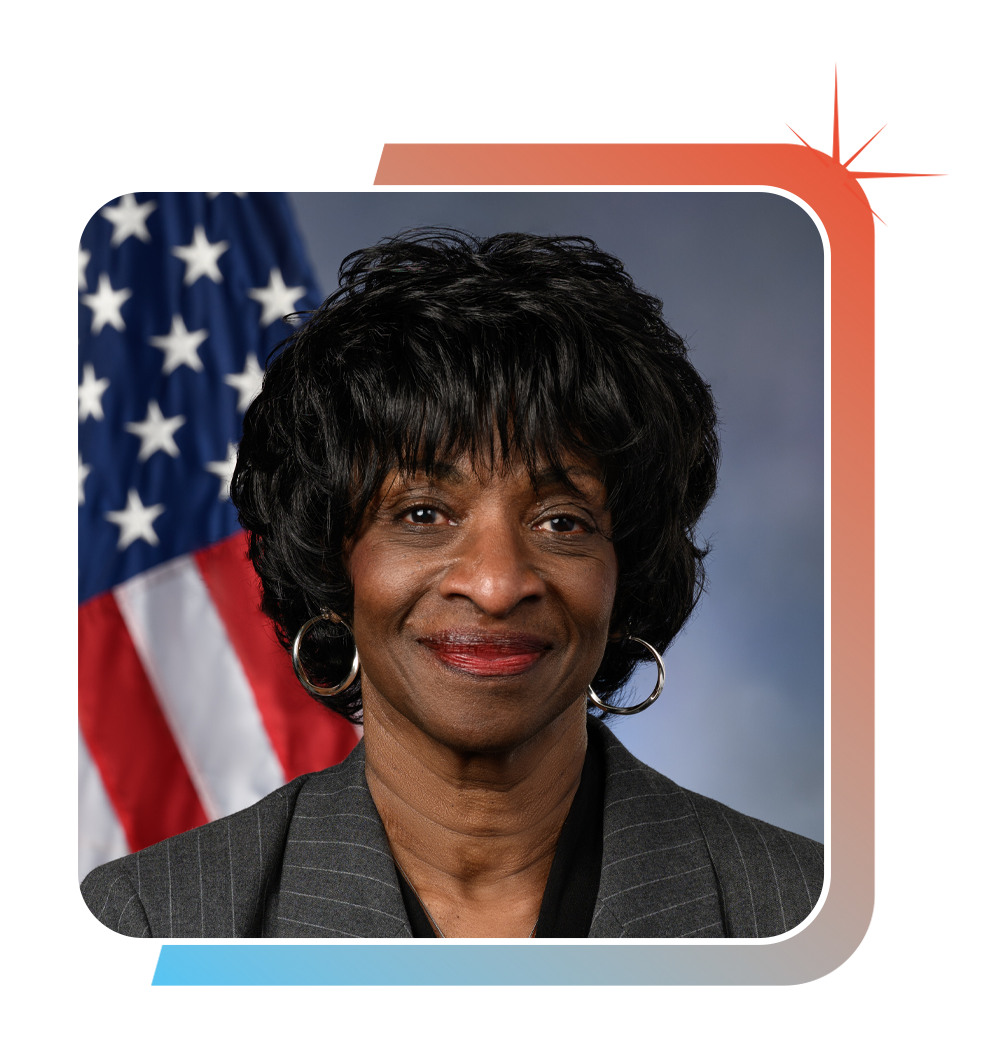
 Valerie P. Foushee Ranking Member on the Congressional Subcommittee on Space and Aeronautics, US House of Representatives
Valerie P. Foushee Ranking Member on the Congressional Subcommittee on Space and Aeronautics, US House of Representatives Congresswoman Valerie Foushee represents North Carolina’s Fourth District which includes Durham and Orange Counties and parts of Chatham and Wake Counties.
Before she began serving in Congress, Congresswoman Foushee worked as an administrator for the Chapel Hill Police Department and served 25 years as a local and state elected official. She went from serving on the Chapel Hill-Carrboro City Schools Board, to being the first African American woman elected to chair the Orange County Board of Commissioners, to serving in the North Carolina State House and the North Carolina State Senate.
In Congress, Congresswoman Foushee serves on the House Committee on Science, Space, and Technology, including serving as Ranking Member of the Space and Aeronautics Subcommittee, and the House Committee on Transportation and Infrastructure.
Ranking Member of the Congressional Subcommittee on Space and Aeronautics
US House of Representatives
* Via pre-recorded video
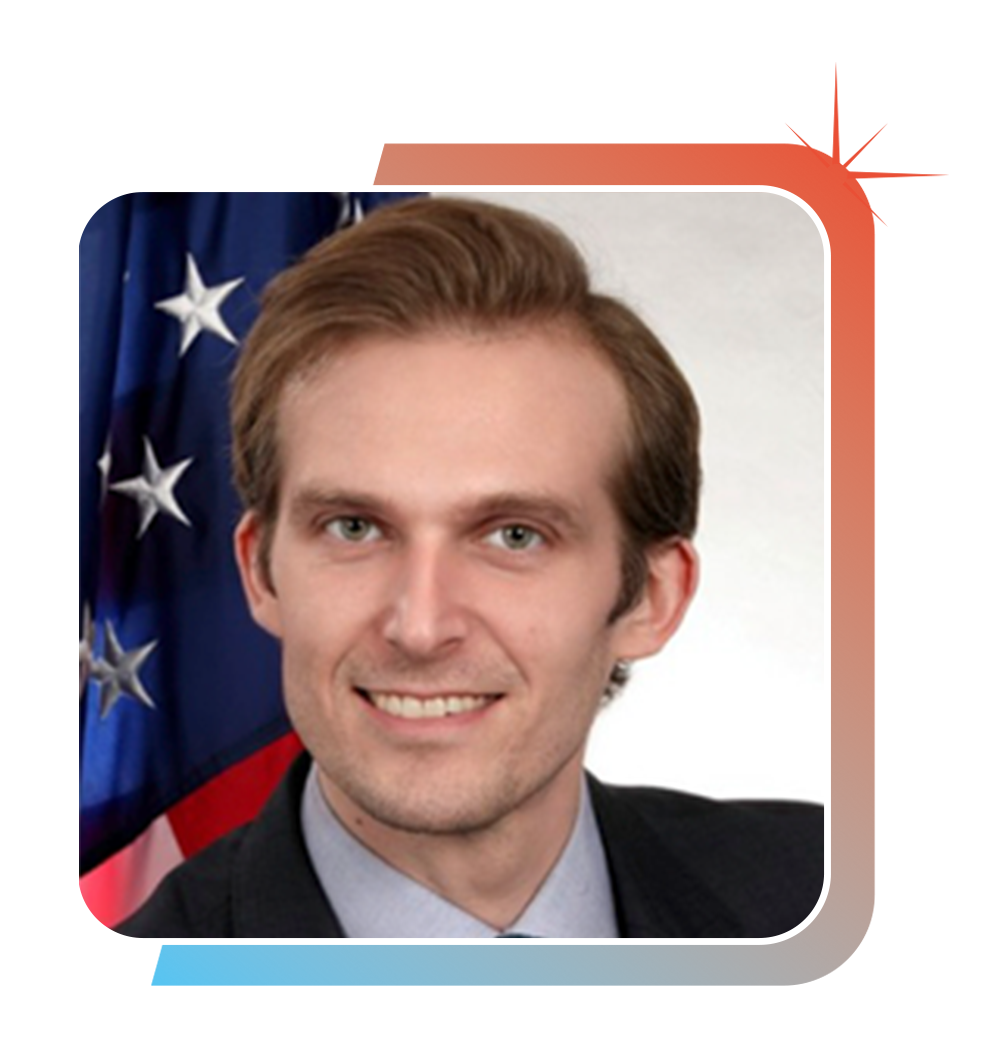
 Taylor Jordan, Assistant Secretary of Commerce for Environmental Observation and Prediction, NOAA, U.S. Department of Commerce
Taylor Jordan, Assistant Secretary of Commerce for Environmental Observation and Prediction, NOAA, U.S. Department of Commerce Taylor Jordan is NOAA’s Assistant Secretary of Commerce for Environmental Observation and Prediction. Mr. Jordan is responsible for the strategic direction and oversight regarding NOAA’s numerical weather prediction and environmental modeling, satellite programs and space innovation, novel data and observations, uncrewed systems, and other large acquisitions.
Mr. Jordan previously served as Principal at Innovative Federal Strategies, where he supported new partnerships for many of NOAA’s mission areas. He also served at NOAA previously as a Senior Policy Advisor and worked on the Hill for close to a decade as the lead staffer for NOAA on the U.S. House of Representatives Committee on Science, Space, and Technology, where he authored the Weather Research and Forecasting Innovation Act of 2017.
Mr. Jordan holds a bachelor’s degree from the University of North Texas and a master’s degree from Johns Hopkins University.
Assistant Secretary of Commerce for Environmental Observation and Prediction, NOAA
U.S. Department of Commerce
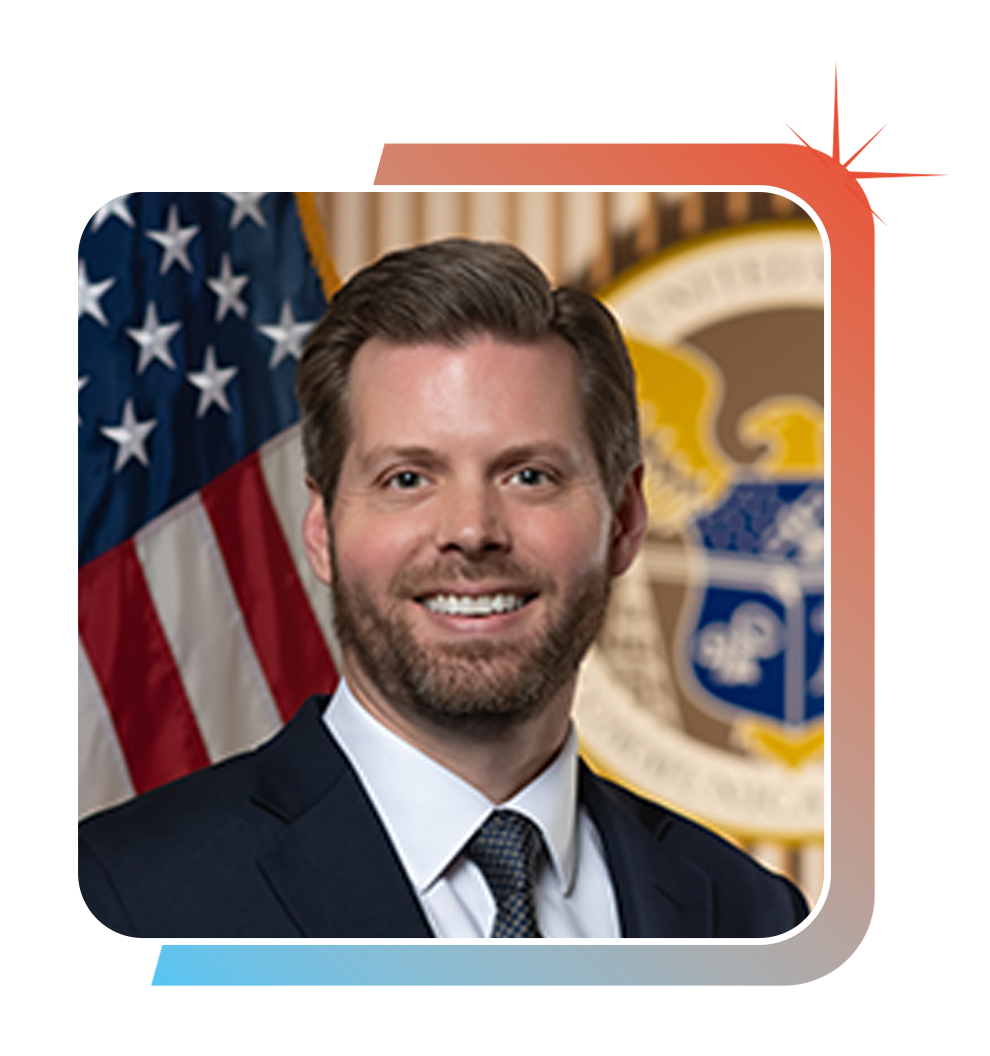
 Jay Schwarz, Chief, Space Bureau, Federal Communications Commission (FCC)
Jay Schwarz, Chief, Space Bureau, Federal Communications Commission (FCC) Jay Schwarz is Chief of the FCC Space Bureau. Previously, he served as Vice President of Public Policy for Comcast, focusing on broadband issues. In his first tour at the FCC he was Wireline Advisor to former Chairman Ajit Pai and held positions within the Wireline Competition Bureau, Wireless Telecommunications Bureau, and the Office of Strategic Planning. Jay holds a Ph.D. in Economics from the University of Pittsburgh and an undergraduate degree in Civil Engineering from Texas A&M University.
Chief,
Space Bureau
Federal Communications Commission (FCC)

 Director, United Nations Office for Outer Space Affairs (UNOOSA)
Director, United Nations Office for Outer Space Affairs (UNOOSA) United Nations Secretary-General António Guterres announced on 26 June 2023 the appointment of Aarti Holla-Maini of the United Kingdom as Director of the United Nations Office for Outer Space Affairs (UNOOSA) in Vienna.
She will succeed Simonetta Di Pippo of Italy, to whom the Secretary-General is grateful for her commitment and dedicated service to the Organization. The Secretary-General also wishes to extend his appreciation to the Chief, Committee, Policy and Legal Affairs Section, Niklas Hedman, who will continue to serve as Acting Director of UNOOSA until Ms. Holla-Maini assumes this position.
UNOOSA works to promote international cooperation in the peaceful use and exploration of space, and in the utilisation of space science and technology for sustainable economic and social development.
Ms. Holla-Maini brings to this position over 25 years of professional experience in the space sector including in managerial and advocacy functions. Most recently, she has held the role of Executive Vice-President Sustainability, Policy & Impact at NorthStar Earth & Space; prior to which she spent over 18 years as Secretary-General of the Global Satellite Operators Association.
Ms. Holla-Maini’s experience includes service as a member of the World Economic Forum’s Global Future Council on Space; member of the Advisory Group of the Space Sustainability Rating managed by eSpace at the École Polytechnique Fédérale de Lausanne (EPFL) Space Center; member of the Advisory Board of the Satellite Industry Association of India; Senior Space Policy Adviser to Forum Europe and as Expert Adviser on Space Traffic Management for European Union studies 2021-2023. She was also one of the chief architects of the Crisis Connectivity Charter established in 2015 for emergency telecommunications via satellite with the UN World Food Program’s Emergency Telecommunications Cluster.
Ms. Holla-Maini holds a bachelor’s degree in law with German law from Kings College London, UK, a master’s degree in business administration from HEC Paris, France, and she is also an alumna of the International Space University. She is fluent in English, French, German and Punjabi and has moderate knowledge of Dutch.
Director
United Nations Office for Outer Space Affairs (UNOOSA)
* Via pre-recorded video
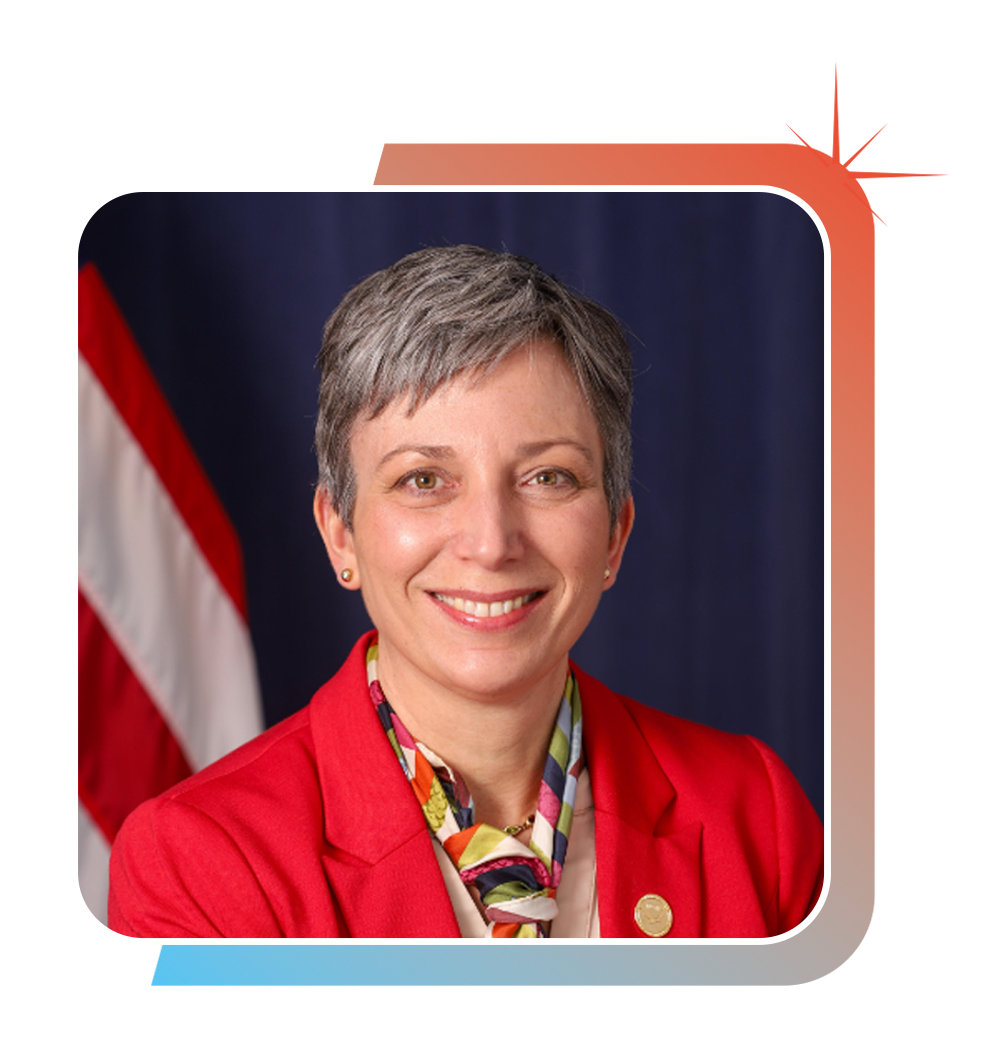
 Janice Starzyk, Acting Director, Office of Space Commerce, U.S. Department of Commerce
Janice Starzyk, Acting Director, Office of Space Commerce, U.S. Department of Commerce Janice Starzyk is the Deputy Director of the Office of Space Commerce, a Senior Executive Service position. Previously, she led Virgin Orbit’s Washington, DC, office and government operations. Her extensive experience and contributions in the space industry include leading the consulting practice at Bryce Space and Technology and more than a decade leading the commercial strategy and market intelligence for launch service providers International Launch Services (ILS) and United Launch Alliance (ULA). At Futron Corporation, Ms. Starzyk worked with a range of civil, military and commercial space industry customers.
She received her Bachelor of Science in Foreign Service from Georgetown University. She holds a Master of Arts in economics and international relations from the Johns Hopkins School of Advanced International Studies, and a dual-degree Global MBA from Tulane University and Universidad Icesi in Cali, Colombia.
For more than a decade, Ms. Starzyk has also provided community leadership and support to local STEM education programs through the Washington Space Business Roundtable. She was appointed to serve as an industry representative on the Commercial Space Transportation Advisory Committee in 2022.
Acting Director
Office of Space Commerce, U.S. Department of Commerce

 Carlos Manuel Baigorri, President, Brazilian National Telecommunications Agency (ANATEL)
Carlos Manuel Baigorri, President, Brazilian National Telecommunications Agency (ANATEL) Anatel’s President Carlos Baigorri has a degree in Economic Sciences from the
University of Brasília (UnB), with a Master’s and Doctorate in Economics from the
Catholic University of Brasília (UCB). Acting in the telecommunications area since 2006,
he was a consultant and analyst of sector information in an Association of mobile
operators. He has also served as an undergraduate professor at the Catholic University
of Brasilia (UCB), at the Institute of Higher Education of Brasília (IESB), and at the
Brazilian Institute of Capital Markets (IBMEC). He wrote articles and book chapters
published in Brazil and abroad. He has been a career permanent employee at Anatel
since 2009, where he has been previously nominated Executive Superintendent,
Competition Superintendent, Obligations Control Superintendent and Head of
Technical Advisory.
President
Brazilian National Telecommunications Agency (ANATEL)

 Meredith McKay, Acting Associate Administrator for International and Interagency Relations, National Aeronautics and Space Administration, NASA
Meredith McKay, Acting Associate Administrator for International and Interagency Relations, National Aeronautics and Space Administration, NASA Meredith McKay serves as the acting associate administrator in the Office of International and Interagency Relations (OIIR). OIIR is responsible for executive leadership and direction of NASA’s international and interagency activities and partnerships for NASA’s mission areas; interactions between NASA and other executive branch offices, departments, and agencies, including the National Security Council, the Department of State, National Space Council, and the Office of Science and Technology Policy; and administration of export control and international technology transfer programs. In addition to her acting role, McKay officially holds the position of deputy associate administrator for the office.
McKay began her NASA career over 20 years ago with positions in the Policy and Plans and International Space Station Divisions of the Space Operations Mission Directorate. After joining OIIR, she served in positions of increasing responsibility, including as a regional team lead and division director. She also served as the agency’s acting deputy chief of staff, where she helped lead the coordination and execution of initiatives, programs, and policies in critical areas of concern to the acting administrator and agency leadership. Prior to joining NASA, McKay served in the arts and culture non-profit sector and in political campaign organizations.
She has received numerous group and individual achievement awards, including the NASA Exceptional Service Medal.
Acting Associate Administrator for International and Interagency Relations
National Aeronautics and Space Administration, NASA

 Juan Martín Ozores, President, National Communications and Media Regulator of Argentina (ENACOM)
Juan Martín Ozores, President, National Communications and Media Regulator of Argentina (ENACOM) Juan Martín Ozores has been serving as the head of the National Communications Agency (ENACOM), Argentina’s telecommunications regulator, since January 2024.
With a 30-year career in the Information and Communications Technology (ICT) industry across Latin America and the Caribbean, he has played a key role in the development of products and services in both the mobile and fixed segments throughout the region.
He holds a degree in Business Administration from the Pontifical Catholic University of Argentina (UCA) and a postgraduate degree in Marketing from the IAE Business School, Austral University. Ozores is strongly committed to creating a simple, clear, and transparent ecosystem that promotes investment and competition in the telecommunications, audiovisual, and postal sectors, with the overarching goal of fostering social development.
President
National Communications and Media Regulator of Argentina (ENACOM)

 Sergio Sotomayor Rodríguez, Director General, National Spectrum Agency of Colombia (ANE)
Sergio Sotomayor Rodríguez, Director General, National Spectrum Agency of Colombia (ANE) Bio to follow.
Director General
National Spectrum Agency of Colombia (ANE)
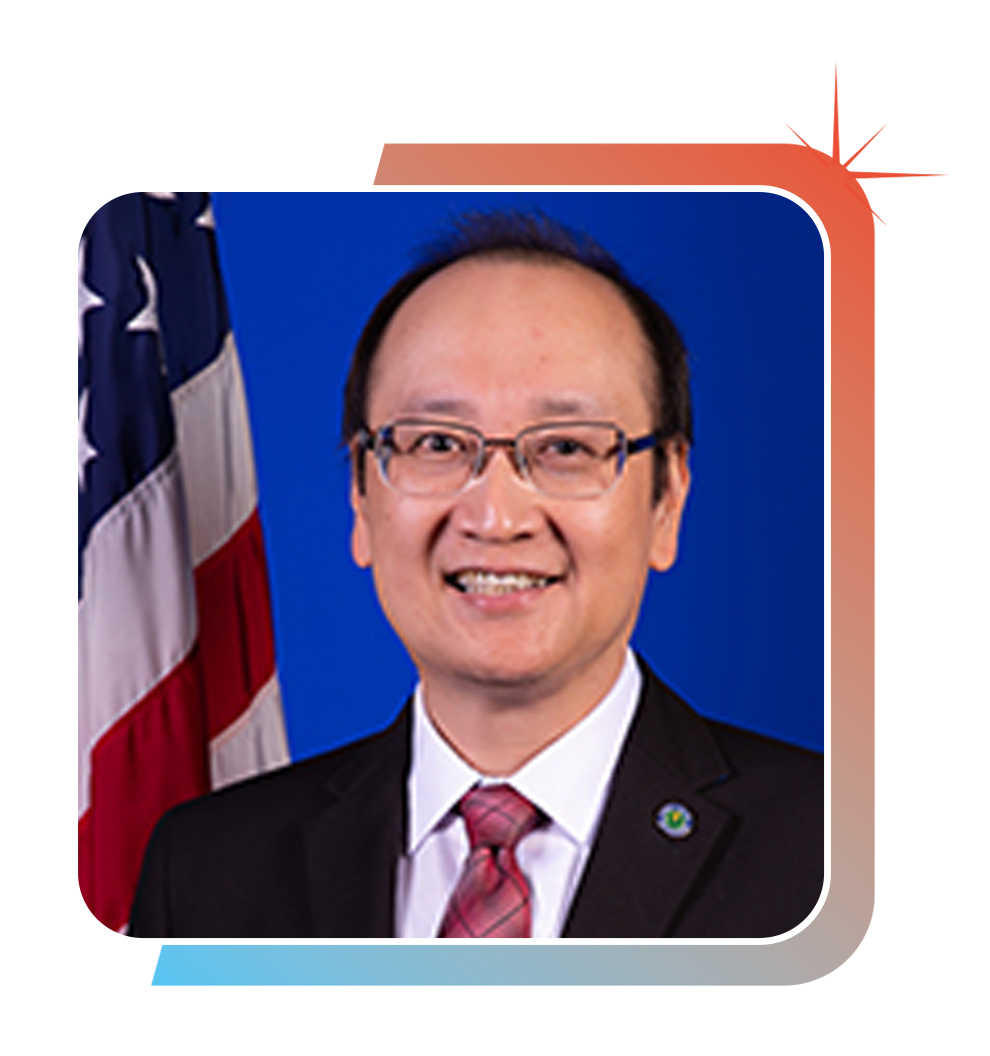
 Dr. Minh Nguyen, Deputy Associate Administrator, Commercial Space Transportation, Federal Aviation Administration (FAA)
Dr. Minh Nguyen, Deputy Associate Administrator, Commercial Space Transportation, Federal Aviation Administration (FAA) Dr. Minh Nguyen currently serves as an acting Deputy Associate Administrator for the FAA’s Office of Commercial Space Transportation (AST). In this capacity, he oversees two directorates. The Operational Safety directorate focuses on safety analysis, safety authorization, and safety assurance for commercial space launch and re-entry operations. The Strategic Management directorate focusses on commercial space policy, regulations, standards, research & development, budget & finance, human capital planning, learning & development, strategic planning, international engagement, and spaceports. He previously served as an Executive Director for AST’s Office of Strategic Management. AST’s mission is to enable safe space transportation.
Previously, he has served in various capacities including FAA’s Deputy Director of the FAA’s Office of Policy and Plans, where he oversaw the FAA’s planning and implementation of the FAA’s Reauthorization of 2018 and agency’s corporate goals and business plan development and implementation. As acting Deputy Regional Administrator for the Northwest Region, he was in charge of consolidating FAA offices in 4 buildings into the new regional office building, and oversaw aviation matters in 7 states. As a member of the Administrator’s Strategic Initiatives Group (SIG), he contributed to formulating strategic priorities for the FAA.
He served in various capacities in the Nextgen organization, including program manager for the Office of Advanced Technology Development, division manager for the Office of Business Case Integration and Modeling, and chief of staff for the Senior Vice President of NextGen and Operations Planning.
Prior to joining the FAA, he worked at the MITRE Corporation, Veracity Engineering, Argon ST, and Naval Research Laboratory, leading advanced research programs.
He obtained his undergraduate, graduate, and doctorate degrees in Electrical Engineering from Virginia Polytechnic Institute and State University (Virginia Tech).
Deputy Associate Administrator, Commercial Space Transportation
Federal Aviation Administration (FAA)

 Isabelle Mauro, Director General, GSOA
Isabelle Mauro, Director General, GSOA Isabelle Mauro is Director General of GSOA that represents the interests of 70 members in the satellite ecosystem. She reports directly to their Chief Executives.
Under Isabelle’s leadership, GSOA and its member CEOs lead the effort to showcase the benefits of satellite communications for a more inclusive and secure society – vital to bridging the world’s digital divide, achieving the UN’s Sustainable Development Goals and realizing the 5G ecosystem.
Isabelle has 25 years experience in the Telecoms and Technology sector, starting at the GSMA, where she was responsible for government and international Affairs. In 2015 she moved to New York to join the World Economic Forum as Head of Information, Communications and Technology Industries, managing the portfolio for 60+ Tech companies globally and leading initiatives on inclusive and sustainable digital transformation.
Isabelle is passionate about inclusion and sustainability. She is Chair of the High-Level Advisory Board of the DigitalGoesGreen Foundation. She also sits on the Advisory Board of Women in Tech and is a member of the UNESCO Advisory Group for the Declaration on Connectivity for Education.
Isabelle holds an MSc in European Politics and Policy from the London School of Economics. She is fluent in French, English, Italian and Spanish.
Director General
GSOA

 Tom Stroup, President, Satellite Industry Association (SIA)
Tom Stroup, President, Satellite Industry Association (SIA) As President of SIA, Tom is the trade association’s lead advocate for regulatory and policy issues of critical importance to SIA’s membership, including spectrum and licensing issues, defense and public safety matters, and export control and international trade issues. He also manages the day-to-day operations of SIA, including member communications, staff leadership and organization of SIA sponsored events. Tom became the president of SIA in December of 2014.
Prior to joining SIA, Tom was with Shared Spectrum Company (SSC), a leading developer of spectrum intelligence technologies, where he served as CEO. For more than a decade, he served as the President of the Personal Communications Industry Association (PCIA). Previous to his position at SSC, he founded and ran several companies in the technology industry, including Columbia Spectrum Management, P-Com Network Services, CSM Wireless, and SquareLoop.
Tom holds a BS, summa cum laude, in Public Administration from the University of North Dakota. He is also a graduate of Georgetown University Law Center where he served as Editor of the Georgetown Law Journal.
President
Satellite Industry Association (SIA)

 Alexander Soucek, Head of External Relations, European Space Agency (ESA)
Alexander Soucek, Head of External Relations, European Space Agency (ESA) Alexander Soucek is Head of the External Relations Department at the European Space Agency (ESA). In the course of a distinguished career of more than twenty years at ESA, he has held a number of roles, including as Head of the International Law Division, Secretary of the International Space Station Coordination Committee, and Head of the ESA Delegation to the UN Committee on the Peaceful Uses of Outer Space (UNCOPUOS).
Alexander holds master’s degrees in law from Salzburg University, Austria, and in space studies from the International Space University in Strasbourg, France. He is, further, set to obtain, in December 2025, an executive master’s in international strategy and diplomacy from the London School of Economics and Political Science. An alumnus of The Hague Academy of International Law and former visiting researcher at the Space Policy Institute, Elliott School of International Affairs of George Washington University, he is a full member of the International Academy of Astronautics, the International Institute of Space Law (IISL) and the European Centre for Space Law (ECSL).
An experienced practitioner and academic, Alexander negotiated numerous international space cooperation agreements and lectures on international relations and international law at universities in Europe and beyond. He has written books and articles on these topics, has contributed to intergovernmental expert groups including the UN Space Mission Planning Advisory Group (SMPAG), and has served as lead flight director in international spaceflight analogue missions.
Head of External Relations
European Space Agency (ESA)

 Adán Salazar Garibay, Commissioner, Telecommunications Regulatory Commission of Mexico (CRT)
Adán Salazar Garibay, Commissioner, Telecommunications Regulatory Commission of Mexico (CRT) Bio to follow.
Commissioner
Telecommunications Regulatory Commission of Mexico (CRT)

 Manuel González Farfán, Telecommunications Analyst, Subtel Chile
Manuel González Farfán, Telecommunications Analyst, Subtel Chile Manuel González Farfán has worked for over 25 years at the Chilean Undersecretariat of Telecommunications (Subtel), participating as a delegate in meetings of CITEL, CCPII, ITU (WRC), and others. Manuel currently works in the Spectrum Management Department at SUBTEL, focusing on sector regulation and standards, particularly for wireless services. He also represents the Ministry of Transport and Telecommunications on the Chilean Space Executive Committee.
Telecommunications Analyst
Subtel Chile

 Dr. Renata Brazil-David, Director General, International Telecommunications Satellite Organization (ITSO)
Dr. Renata Brazil-David, Director General, International Telecommunications Satellite Organization (ITSO) Dr. Renata Brazil-David is the Director General of the International Telecommunications Satellite Organization (ITSO). She was elected at the organization’s Assembly of Parties meeting held in Washington, D.C. in October 2024 and assumed the position of Director General of ITSO on July 18, 2025.
Dr. Brazil-David was nominated by the Party of Brazil and her election marks a new chapter in ITSO’s history, as she becomes the first woman to serve as Director General at ITSO. In her acceptance speech, Dr. Brazil-David expressed that it was a great to be the first woman to hold the position of Director General at ITSO. “This milestone is a reflection of the progress we are making together toward a more inclusive and equitable future, both within ITSO and the wider world of global telecommunications. I hope my appointment serves as an inspiration to other women and young professionals striving to make their mark in industries that have traditionally been male-dominated.”
Up to the time of assuming her new appointment as Director General in July 2025, Dr. Brazil-David had more than 10 years of experience at ITSO, having held the positions of Deputy Director General, Director of International and Regulatory ASairs and Director of Legal ASairs.
Dr. Brazil-David was also Director of Regulatory Policy at Inmarsat (now part of ViaSat) where she worked on developing and implementing global regulatory policy strategy. She has also worked in academia as Adjunct Professor and as the Associate Director of the Program on Brazil-US Comparative Law at American University Washington College of Law (AUWCL).
She holds a Ph.D. in Law (SJD) from American University and a Master of Laws (LL.M.) degree from the University of Essex. Dr. Renata Brazil-David is fluent in the three languages of the organization, English, Spanish and French, in addition to being a native Portuguese speaker.
Director General
International Telecommunications Satellite Organization (ITSO)

 George V. John. Counsel, Global Regulatory, Hogan Lovells
George V. John. Counsel, Global Regulatory, Hogan Lovells George John assures today’s regulation, legislation, and policy do not ground tomorrow’s engineering, innovation, and investment.
Technology innovation abounds. But the associated governance frameworks cannot keep pace. Established and startup companies, trade associations, and the investment community, among others, have enlisted George to overcome this imbalance and ensure their ventures take flight and flourish in the communications and space industries, including any potential overlap with sports, medical, or mobility applications.
He has become a go-to problem solver, advisor, and advocate. With his support, clients have maneuvered deftly through complex, patchwork, and sometimes inscrutable rulemakings, consultations, and statutory construction; licensing, landing rights/market access, registration, equipment authorization, and labeling; regulatory, technical, and engineering standards compliance; and enforcement when they are tackling radiofrequency spectrum, orbital debris, remote sensing, and other related issues.
What makes him unique are his numerous connections, deep industry knowledge, and prior diverse experiences. His current practice regularly engages US bodies such as the Federal Communications Commission (FCC), Department of Commerce (including the National Telecommunications and Information Administration, National Oceanic and Atmospheric Administration, and Office of Space Commerce), Department of Defense, Federal Aviation Administration (FAA), and US Congress; and other bodies such as the International Telecommunication Union, UN Committee on the Peaceful Uses for Outer Space, and foreign administrations (particularly in Europe where he lived during an extended secondment). Before starting his practice, previous career stops included a pioneering nanosatellite company and the FCC and FAA. Clients have secured expedited and often first-of-their-kind wins given his well-established relationships with and understanding of these decisionmakers.
Counsel, Global Regulatory
Hogan Lovells
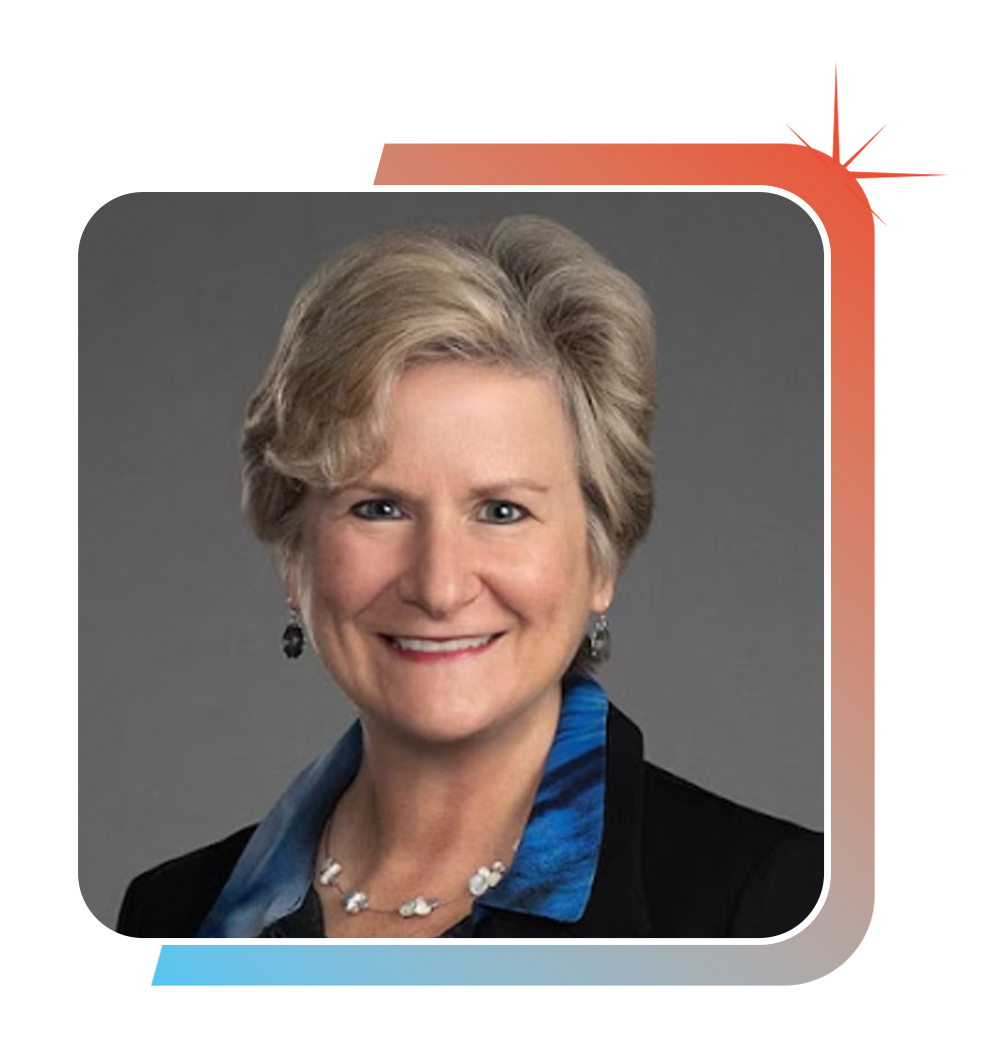
 Julie Kearney, Partner & Co-Chair, Space Exploration and Innovation Practice, DLA Piper
Julie Kearney, Partner & Co-Chair, Space Exploration and Innovation Practice, DLA Piper Julie Kearney is a Co-Chair of the Space Exploration and Innovation Practice and a partner in the Telecom group at DLA Piper. She is a globally recognized and dynamic lawyer in the technology, satellite, space, and telecommunications field. For more than 25 years, Julie has worked with governments, industries, and the public sector around the world to promote legal and regulatory frameworks and policies that enable life-changing technologies.
As the first Chief of the Space Bureau at the Federal Communications Commission (FCC), Julie represented and spoke for the Chairwoman and Commissioners on satellite and space-based communication matters and represented the Commission at the domestic and international level. Under Julie’s leadership, the FCC unanimously adopted several regulatory frameworks and launched initiatives to successfully advance industry leadership in the New Space Age. Additionally, during her tenure as Chief, the FCC adopted a regulatory structure for Supplemental Coverage from Space, which made the FCC the first regulator in the world to issue a framework for connecting satellites directly to consumer handsets using spectrum previously allocated only to terrestrial service.
Before joining the FCC, Julie served as the Vice President of Communications Regulatory Affairs and Policy at Twilio Inc., a publicly traded Communications Platform as a Service (CPaaS) provider, where she developed and implemented the company’s global telecommunications regulatory and policy and law enforcement response strategy. She also served as the Global Head of Communications Regulation and Policy for Loon, an Alphabet Inc. company, where she led international and US regulatory initiatives to bring internet access to unserved and underserved communities around the world via a network of balloons on the edge of space. She also held roles at the Consumer Technology Association, National Public Radio, MCI, and private legal practice.
Julie is a past president of the Federal Communications Bar Association (FCBA – The Tech Bar) and she also served as chair of the FCBA Foundation. She was a long-serving member of the Federal Communications Commission’s Consumer Advisory Committee and also served on its Broadband Deployment Advisory Committee. Other Board positions include USTelecom and the United States Technical Training Institute (USTTI).
Julie earned her B.A. from Mount Holyoke College and a J.D. from Catholic University’s Columbus School of Law, with a certificate from its Law and Technology Institute. She recently completed a 3.5 year term on the Columbus School of Law’s Board of Visitors. A trained singer, she has sung with choruses in the San Francisco Bay Area and Washington, DC area, most recently with Schola Cantorum (CA) and the Choral Arts Society of Washington (DC).
Partner & Co-Chair, Space Exploration and Innovation Practice
DLA Piper

 Jennifer Warren, Vice President, Global Regulatory Affairs & Public Policy for Lockheed Martin Corporation
Jennifer Warren, Vice President, Global Regulatory Affairs & Public Policy for Lockheed Martin Corporation Jennifer A. Warren is Vice President, Global Regulatory Affairs & Public Policy for Lockheed Martin Corporation. In this capacity, she is responsible for leading corporate team’s engagement across the Executive Branch, Independent Agencies and Intergovernmental Bodies on Lockheed Martin’s regulatory and public policy portfolio, including spectrum governance, 5G, climate/sustainability, ocean minerals, commercial civil space, aviation, and emerging technologies.
Ms. Warren manages the Corporation’s trade association relationships, and serves on the Boards of the Satellite Industry Association (Chair), Professional Services Corporation, and the U.S. ITU Association, and as the co-chair of the U.S. Chamber of Commerce’s Telecommunications and E-Commerce Committee.
In 1996, Ms. Warren joined Lockheed Martin from the U.S. Federal Communications Commission, where she served in several senior roles in the Wireless Telecommunications and International Bureaus. Before joining the U.S. Government, Ms. Warren worked for the Commission of the European Union – both in Brussels and in Washington, DC – with a focus on EU-U.S. trade.
She is a graduate of Georgetown University (B.S. in Languages) and Georgetown University Law Center (J.D.), and a member of the Illinois State and D.C. Bars, the Federal Communications Bar Association, American Bar Association, and the Women’s Bar Association. Her civic activities include the George Washington Legacy Foundation Board, President of the Gadsby Tavern Museum Society in Old Town Alexandria, and the Foundation of the National Archives & Records Administration.
Ms. Warren lives in Old Town Alexandria, Virginia, with her husband Ed, and their puppy – Madison.
Vice President, Global Regulatory Affairs & Public Policy
Lockheed Martin Corporation

 Catherine Kuersten, Head of Government Affairs & Public Policy, Northwood Space
Catherine Kuersten, Head of Government Affairs & Public Policy, Northwood Space Catherine Kuersten is Head of Government Affairs & Public Policy at Northwood. Prior to joining Northwood, Catherine worked for Amazon Leo and in private practice with an international law firm supporting regulatory and litigation matters for communications and technology companies. Catherine holds a J.D. from the University of Pennsylvania and a B.S. in Aerospace Engineering from the University of Illinois at Urbana-Champaign.
Head of Government Affairs & Public Policy
Northwood Space

 Nonresident Senior Fellow, Atlantic Council GeoTech Center
Nonresident Senior Fellow, Atlantic Council GeoTech Center Charity Weeden is a nonresident senior fellow at the Atlantic Council’s GeoTech Center. She brings more than twenty-five years of distinguished aerospace leadership across civil, military, commercial, and nonprofit sectors. Weeden is an advisor on technology policy, business, and geostrategic matters to disruptors across emerging technologies.
As the National Aeronautics and Space Administration’s (NASA’s) associate administrator for technology, policy, and strategy between 2023 and 2025, Weeden led a team of technology, policy, and economic experts dedicated to data-driven advice on critical investment decisions affecting national and international space priorities.
Prior to NASA, Weeden was vice president for global space policy and government relations at Astroscale US between 2019 and 2023, where she orchestrated international and US domestic policy campaigns, shaping the future of in-space servicing rules, practices, and standards. Weeden was appointed as chair of the US Department of Transportation’s Commercial Space Transportation Advisory Committee from 2020 to 2022, leading recommendations on numerous topics affecting the US commercial launch and reentry community.
Weeden’s unique perspective on technology and partnerships is informed by her twenty-three-year career in the Royal Canadian Air Force, where she served in roles centering on maritime domain awareness, space surveillance and communications, policy and doctrine, space operations, and aerospace alliances. Her military service culminated in space-to-space military engagements among Canada and allies in Washington, DC.
Weeden holds a bachelor’s degree in mechanical engineering from the Royal Military College of Canada and a master’s degree in space studies from the University of North Dakota.
Nonresident Senior Fellow
Atlantic Council GeoTech Center

 Luis Guillermo Alarcón López, Lead Telecommunications Specialist, Inter-American Development Bank (IADB)
Luis Guillermo Alarcón López, Lead Telecommunications Specialist, Inter-American Development Bank (IADB) Luis Guillermo Alarcón is a telecommunications engineer from the National Polytechnic Institute of Mexico, with an MBA from the École de Commerce de Lyon, France, and a Diploma in Financial Mathematics from FINDES, Mexico. He has over 35 years of experience in the telecommunications sector, having worked on projects, public policies, and regulatory frameworks across the Americas, Europe, and Africa. For the past eight years, he has served as Lead Telecommunications Specialist at the Inter-American Development Bank (IDB), based in Washington, D.C.
In the private sector, he held leadership roles such as Chief Technology Officer (CTO) for Latin America at Rivada Networks, Global Director of Government Broadband Initiatives at Alcatel-Lucent in Paris, and Global Account Director for the Telmex Group and Telmex International.
At the IDB, he leads strategic operations in digital infrastructure, meaningful connectivity, and financing for small internet providers in Brazil and the Caribbean. He has been responsible for structuring flagship projects such as the international submarine cable connecting Europe and the Brazilian Amazon (Pará and Maranhão More Connected Projects), the credit program for small rural internet providers (Acessa à Crédito Telecom), the integrated data system on credit and connectivity (SISCRED), and the first submarine cable to connect Haiti to the global network, currently under preparation.
His current focus is on promoting climate sustainability in telecommunications infrastructure, aligning digital investments with the region’s environmental and social goals. He has spearheaded initiatives such as “Selo Verde Telecom” in partnership with Brazil’s ANATEL, and data-driven programs like C2DB and DC2H, which strengthen institutional capacity to close connectivity gaps through evidence-based, inclusive, and sustainable approaches.
Lead Telecommunications Specialist
Inter-American Development Bank (IADB)

 Kalpak Gude, Head of Global Regulatory Affairs, Amazon Project Kuiper
Kalpak Gude, Head of Global Regulatory Affairs, Amazon Project Kuiper Bio to follow.
Head of Global Regulatory Affairs
Amazon Project Kuiper

 Stephan Sloan, Founder and Investor, All 6G, LLC
Stephan Sloan, Founder and Investor, All 6G, LLC
Founder and Investor
All 6G, LLC

 Brian Weeden, Director of Civil and Commercial Policy, Aerospace Center for Space Policy and Strategy
Brian Weeden, Director of Civil and Commercial Policy, Aerospace Center for Space Policy and Strategy Dr. Brian Weeden is a director of civil and commercial policy for the Center for Space Policy and Strategy at The Aerospace Corporation, where he serves as a senior analyst and team leader on topics that cut across policy, technology, and economics. A highly respected and connected professional with more than two decades of experience in space operations and space policy analysis, Weeden specializes in the integration and advancement of technical, policy, legal, security, commercial, and international aspects of space activities.
Weeden is a former member and chair of the World Economic Forum’s Council on the Future of Space Technologies, a former member of the Advisory Committee on Commercial Remote Sensing (ACCRES) to the National Oceanic and Atmospheric Administration (NOAA), and the former executive director of the Consortium for Execution of Rendezvous and Servicing Operations (CONFERS).
Prior to joining Aerospace, Weeden was the chief program officer for Secure World Foundation, where he directed strategic planning for future-year projects to meet the Foundation’s goals and objectives and conducted research on space sustainability issues. Weeden also served nine years on active duty as an officer in the United States Air Force in space and intercontinental ballistic missile (ICBM) operations.
Weeden’s research and analysis have been featured in The New York Times, The Washington Post, National Public Radio, USA Today, The BBC, Fox News, China Radio International, The Economist, the 54th Annual Meeting of The World Economic Forum in Davos-Klosters, Switzerland, academic journals, presentations to the United Nations, and testimony before the U.S. Congress.
Weeden earned a bachelor’s degree in electrical engineering from Clarkson University, a master’s degree in space studies from the University of North Dakota, and a doctorate in public policy and administration from The George Washington University in the field of science and technology policy.
Director of Civil and Commercial Policy
Aerospace Center for Space Policy and Strategy

 Lafayette Greenfield II, Of Counsel, Gibson Dunn
Lafayette Greenfield II, Of Counsel, Gibson Dunn Lafayette Greenfield II is an Of Counsel in the Washington, DC office of Gibson, Dunn & Crutcher and a member of the firm’s Transportation and Space Practice Group.
Lafayette’s practice focuses on corporate, transactional and regulatory matters relating to the aerospace, satellite, telecommunications, data center and cloud computing industries. He has extensive experience advising companies, investors and financial institutions operating or investing in these industries on a wide range of corporate and financing transactions, including equity investments, mergers & acquisitions, joint ventures, project, vendor and leveraged financings, public offerings, and financial restructurings. In addition, Lafayette has deep expertise helping clients structure and negotiate purchase and services contracts involving aerospace, satellite, telecommunications, data center and cloud computing assets and services.
Lafayette is a member of the New York and District of Columbia bars. He received his Juris Doctor from Howard University School of Law in 2013, where he was a member of the Howard Law Journal. He received a Bachelor of Science in political science from Radford University in 2009.
Of Counsel
Gibson Dunn

 Michael Cheng, Director, Earth Space Sustainability Initiative
Michael Cheng, Director, Earth Space Sustainability Initiative Bio to follow.
Director
Earth Space Sustainability Initiative

 Mindel de la Torre, Head of Global Regulatory Affairs, Skylo Technologies
Mindel de la Torre, Head of Global Regulatory Affairs, Skylo Technologies Bio to follow.
Head of Global Regulatory Affairs
Skylo Technologies

 Alicia Brown, Executive Director, Commercial Space Federation (CSF)
Alicia Brown, Executive Director, Commercial Space Federation (CSF) Alicia Brown is the Executive Director of the Commercial Space Federation (CSF).
Ms. Brown is a veteran space policy and legislative affairs professional. Before joining CSF, she served at NASA as Associate Administrator of the Office of Legislative and Intergovernmental Affairs, leading the agency’s engagement with Congress and other elected officials. Prior to joining NASA, she served as a professional staff member for the U.S. Senate Committee on Commerce, Science, and Transportation, advising members of the Senate on policy related to U.S. civil space programs, commercial space, and science policy.
Executive Director
Commercial Space Federation (CSF)

 Caryn Schenewerk, President, CS Consulting LLC
Caryn Schenewerk, President, CS Consulting LLC Caryn Schenewerk is a respected leader in navigating the complex regulatory and policy landscape for the spaceflight industry. As the President of CS Consulting, she provides expert guidance to clients on space law and policy engagement with all levels and branches of government. Caryn co-authored a space law textbook, International Space Law and Space Laws of the United States, and is honored to share her expertise as an adjunct professor of Space Law at Georgetown University Law Center.
Prior to founding CS Consulting, Caryn served as the Vice President for Regulatory and Government Affairs at Relativity Space, where she helped the company launch the world’s first 3-D printed rocket. Caryn started her career in aerospace at SpaceX, where she spent a decade supporting commercial and civil space operations, facility expansion, and economic development as a lawyer and lobbyist. She has an extensive track record of interacting with U.S. government agencies such as the FAA, NASA and the U.S. Space Force in support of launch and recovery operations.
Caryn chairs the Dept. of Commerce’s Advisory Committee on Excellence in Space (ACES) and has served as a member of the FAA’s Commercial Space Transportation Advisory Committee, leading the Regulatory Working Group. She also serves on the FAA’s Part 450 Space Advisory Rulemaking Committee (SpARC) and was the industry lead for the FAA’s Part 440 SpARC.
Prior to her work in the space industry, she served as the Deputy Associate Director for Legislative Affairs at the Office of Management and Budget in the Executive Office of the President. Caryn has also worked in various roles on Capitol Hill, including Counsel, Policy Director, and Deputy Chief of Staff after starting her career practicing trade law.
Caryn obtained her bachelor’s degree from Austin College in Sherman, TX, where she serves on the Board of Trustees. Her J.D. is from the University of Texas School of Law in Austin and her Master’s in Laws (LLM) is from the University of Nottingham in England. She is a member of the New York and D.C. Bars.
President
CS Consulting LLC

 David Logsdon, Senior Director, Space Policy, ITI Space Enterprise Council
David Logsdon, Senior Director, Space Policy, ITI Space Enterprise Council David Logsdon is the Senior Director, Space Policy, ITI Space Enterprise Council. In his role, he has created and implemented a strategic international space cooperation engagement plan involving multiple countries, which has helped drive U.S. engagement (both G-to-G and private sector) with international partners. Logsdon facilitated the signing of Memorandum of Understanding (MOU) agreements with eight countries (Argentina, Australia, Brazil, Chile, Colombia, Ecuador, India, and Norway). Logsdon was one of the leading players in helping get Technology Safeguards Agreements signed and ratified between the US and Brazilian and Australian governments. Logsdon also led trade missions to Brazil and Chile.
Logsdon has held a private sector leadership position within the DHS CISA Space Systems Security and Resilience Landscape working group, which led an effort to create a space/cybersecurity/zero trust framework. Logsdon is also the Chair of the IEEE International government subgroup, helping create a global space and cybersecurity standard.
Logsdon has cultivated relationships between private-sector executives and federal agencies, highlighting importance of space-based assets to economic and national security, and helping federal agencies justify space-related expenditures through the SEC’s “A Day Without Space” forums.
Logsdon acted as a member of the Department of Commerce International Trade Advisory Committee on Aerospace, advising secretary of commerce on aerospace industry international trade issues.
Logsdon acted as the private sector lead for the US-Brazil Defense Industry Dialogue Space Working Group.
Logsdon was a member of the US National Space Based PNT Advisory Board.
Logsdon helped lead the TechAmerica Technology Convergence Commission, which focused on the intersection between social media, mobile, analytics, and cloud computing.
Prior to running the Space Enterprise Council (a position he has held for twenty two years), Logsdon was the Manager of Space Operations at the Aerospace Industries Association and a technology policy analyst at Futron Corporation.
Logsdon holds a bachelor’s degree in Criminal Justice from the University of Delaware and a master’s degree in Political Management from George Washington University.
Senior Director, Space Policy
ITI Space Enterprise Council

 Katy Milner, Partner, Global Regulatory, Hogan Lovells
Katy Milner, Partner, Global Regulatory, Hogan Lovells Katy Milner provides legal and strategic advice to a broad cross-section of telecommunications and technology industry clients on regulatory, transactional, and compliance matters.
Katy has a wealth of experience providing clients with practical guidance and valued counsel on spectrum acquisition and utilization, wireless services and satellite regulation, cybersecurity and data privacy, public safety and 911 services, international telecommunications matters, connected vehicles and the Internet of Things, and broadband and Internet policy. Katy also has significant experience advising clients on uncrewed aircraft systems (UAS) matters, particularly on FCC-related activity. Katy advocates for her clients before the Federal Communications Commission (FCC), Congress, the Executive Branch, and other federal agencies.
Partner, Global Regulatory
Hogan Lovells

 Ari Q. Fitzgerald, Partner, Global Regulatory, Hogan Lovells
Ari Q. Fitzgerald, Partner, Global Regulatory, Hogan Lovells Ari Fitzgerald leads the firm’s Communications, Internet, and Media practice. He provides strategic, legal, and policy advice on a wide range of communications and spectrum policy issues to some of the world’s largest and most dynamic communications network operators and equipment manufacturers, as well as industry trade associations and investors.
Ari enjoys helping automobile manufacturers and suppliers, medical device manufacturers, drone manufacturers, and other technology companies bring new and innovative communications-related products and services to market. In recognition of his path-breaking contributions to the wireless industry, he is one of only three attorneys to have ever been inducted into the Wireless History Foundation’s Wireless Hall of Fame.
Partner, Global Regulatory
Hogan Lovells

 Alicia Brown, Executive Director, Commercial Space Federation (CSF)
Alicia Brown, Executive Director, Commercial Space Federation (CSF) Alicia Brown is the Executive Director of the Commercial Space Federation (CSF).
Ms. Brown is a veteran space policy and legislative affairs professional. Before joining CSF, she served at NASA as Associate Administrator of the Office of Legislative and Intergovernmental Affairs, leading the agency’s engagement with Congress and other elected officials. Prior to joining NASA, she served as a professional staff member for the U.S. Senate Committee on Commerce, Science, and Transportation, advising members of the Senate on policy related to U.S. civil space programs, commercial space, and science policy.
Executive Director
Commercial Space Federation (CSF)

 Caryn Schenewerk, President, CS Consulting LLC
Caryn Schenewerk, President, CS Consulting LLC Caryn Schenewerk is a respected leader in navigating the complex regulatory and policy landscape for the spaceflight industry. As the President of CS Consulting, she provides expert guidance to clients on space law and policy engagement with all levels and branches of government. Caryn co-authored a space law textbook, International Space Law and Space Laws of the United States, and is honored to share her expertise as an adjunct professor of Space Law at Georgetown University Law Center.
Prior to founding CS Consulting, Caryn served as the Vice President for Regulatory and Government Affairs at Relativity Space, where she helped the company launch the world’s first 3-D printed rocket. Caryn started her career in aerospace at SpaceX, where she spent a decade supporting commercial and civil space operations, facility expansion, and economic development as a lawyer and lobbyist. She has an extensive track record of interacting with U.S. government agencies such as the FAA, NASA and the U.S. Space Force in support of launch and recovery operations.
Caryn chairs the Dept. of Commerce’s Advisory Committee on Excellence in Space (ACES) and has served as a member of the FAA’s Commercial Space Transportation Advisory Committee, leading the Regulatory Working Group. She also serves on the FAA’s Part 450 Space Advisory Rulemaking Committee (SpARC) and was the industry lead for the FAA’s Part 440 SpARC.
Prior to her work in the space industry, she served as the Deputy Associate Director for Legislative Affairs at the Office of Management and Budget in the Executive Office of the President. Caryn has also worked in various roles on Capitol Hill, including Counsel, Policy Director, and Deputy Chief of Staff after starting her career practicing trade law.
Caryn obtained her bachelor’s degree from Austin College in Sherman, TX, where she serves on the Board of Trustees. Her J.D. is from the University of Texas School of Law in Austin and her Master’s in Laws (LLM) is from the University of Nottingham in England. She is a member of the New York and D.C. Bars.
President
CS Consulting LLC

 David Logsdon, Senior Director, Space Policy, ITI Space Enterprise Council
David Logsdon, Senior Director, Space Policy, ITI Space Enterprise Council David Logsdon is the Senior Director, Space Policy, ITI Space Enterprise Council. In his role, he has created and implemented a strategic international space cooperation engagement plan involving multiple countries, which has helped drive U.S. engagement (both G-to-G and private sector) with international partners. Logsdon facilitated the signing of Memorandum of Understanding (MOU) agreements with eight countries (Argentina, Australia, Brazil, Chile, Colombia, Ecuador, India, and Norway). Logsdon was one of the leading players in helping get Technology Safeguards Agreements signed and ratified between the US and Brazilian and Australian governments. Logsdon also led trade missions to Brazil and Chile.
Logsdon has held a private sector leadership position within the DHS CISA Space Systems Security and Resilience Landscape working group, which led an effort to create a space/cybersecurity/zero trust framework. Logsdon is also the Chair of the IEEE International government subgroup, helping create a global space and cybersecurity standard.
Logsdon has cultivated relationships between private-sector executives and federal agencies, highlighting importance of space-based assets to economic and national security, and helping federal agencies justify space-related expenditures through the SEC’s “A Day Without Space” forums.
Logsdon acted as a member of the Department of Commerce International Trade Advisory Committee on Aerospace, advising secretary of commerce on aerospace industry international trade issues.
Logsdon acted as the private sector lead for the US-Brazil Defense Industry Dialogue Space Working Group.
Logsdon was a member of the US National Space Based PNT Advisory Board.
Logsdon helped lead the TechAmerica Technology Convergence Commission, which focused on the intersection between social media, mobile, analytics, and cloud computing.
Prior to running the Space Enterprise Council (a position he has held for twenty two years), Logsdon was the Manager of Space Operations at the Aerospace Industries Association and a technology policy analyst at Futron Corporation.
Logsdon holds a bachelor’s degree in Criminal Justice from the University of Delaware and a master’s degree in Political Management from George Washington University.
Senior Director, Space Policy
ITI Space Enterprise Council

 Katy Milner, Partner, Global Regulatory, Hogan Lovells
Katy Milner, Partner, Global Regulatory, Hogan Lovells Katy Milner provides legal and strategic advice to a broad cross-section of telecommunications and technology industry clients on regulatory, transactional, and compliance matters.
Katy has a wealth of experience providing clients with practical guidance and valued counsel on spectrum acquisition and utilization, wireless services and satellite regulation, cybersecurity and data privacy, public safety and 911 services, international telecommunications matters, connected vehicles and the Internet of Things, and broadband and Internet policy. Katy also has significant experience advising clients on uncrewed aircraft systems (UAS) matters, particularly on FCC-related activity. Katy advocates for her clients before the Federal Communications Commission (FCC), Congress, the Executive Branch, and other federal agencies.
Partner, Global Regulatory
Hogan Lovells

Ari Fitzgerald leads the firm’s Communications, Internet, and Media practice. He provides strategic, legal, and policy advice on a wide range of communications and spectrum policy issues to some of the world’s largest and most dynamic communications network operators and equipment manufacturers, as well as industry trade associations and investors.
Ari enjoys helping automobile manufacturers and suppliers, medical device manufacturers, drone manufacturers, and other technology companies bring new and innovative communications-related products and services to market. In recognition of his path-breaking contributions to the wireless industry, he is one of only three attorneys to have ever been inducted into the Wireless History Foundation’s Wireless Hall of Fame.

Taylor Jordan is NOAA’s Assistant Secretary of Commerce for Environmental Observation and Prediction. Mr. Jordan is responsible for the strategic direction and oversight regarding NOAA’s numerical weather prediction and environmental modeling, satellite programs and space innovation, novel data and observations, uncrewed systems, and other large acquisitions.
Mr. Jordan previously served as Principal at Innovative Federal Strategies, where he supported new partnerships for many of NOAA’s mission areas. He also served at NOAA previously as a Senior Policy Advisor and worked on the Hill for close to a decade as the lead staffer for NOAA on the U.S. House of Representatives Committee on Science, Space, and Technology, where he authored the Weather Research and Forecasting Innovation Act of 2017.
Mr. Jordan holds a bachelor’s degree from the University of North Texas and a master’s degree from Johns Hopkins University.

Graduated in Electrical Engineering from the State University of Campinas – Unicamp (1984), a Master’s degree in Space Engineering and Technology from the National Institute for Space Research – INPE, Brazil (1989) and a PhD in Electronics from the Ecole Nationale Supérieure de L’Aéronautique et de L’Espace – SUPAERO, France (1996).
He was coordinator of the scientific satellites program at the National Institute for Space Research (INPE), Technology Management Coordinator, Deputy Coordinator of Space Engineering and Technology, and Planning, Budget, and Evaluation Coordinator at INPE. He also served as the manager of the SABIA-Mar space mission, dedicated to oceanographic studies.
He has conducted research related to Estimation Theory, development of GPS navigation systems, and telecommunications systems for space applications.
As the president of the Brazilian Space Agency (AEB), Marco Antonio Chamon is committed to leading and strengthening AEB’s mission in developing and promoting space activities in the country. His technical expertise and strategic vision are fundamental to boosting the Brazilian aerospace industry, fostering scientific research, and establishing national and international partnerships that drive the sector forward.

Isabelle Mauro is Director General of the Global Satellite Operators Association (GSOA) that represents the interests of 70 members in the satellite ecosystem. She reports directly to their Chief Executives.
Under Isabelle’s leadership, GSOA and its member CEOs lead the effort to showcase the benefits of satellite communications for a more inclusive and secure society – vital to bridging the world’s digital divide, achieving the UN’s Sustainable Development Goals and realizing the 5G ecosystem.
Isabelle has 25 years experience in the Telecoms and Technology sector, starting at the GSMA, where she was responsible for government and international Affairs. In 2015 she moved to New York to join the World Economic Forum as Head of Information, Communications and Technology Industries, managing the portfolio for 60+ Tech companies globally and leading initiatives on inclusive and sustainable digital transformation.
Isabelle is passionate about inclusion and sustainability. She is Chair of the High-Level Advisory Board of the DigitalGoesGreen Foundation. She also sits on the Advisory Board of Women in Tech and is a member of the UNESCO Advisory Group for the Declaration on Connectivity for Education.
Isabelle holds an MSc in European Politics and Policy from the London School of Economics. She is fluent in French, English, Italian and Spanish.
George John assures today’s regulation, legislation, and policy do not ground tomorrow’s engineering, innovation, and investment.
Technology innovation abounds. But the associated Governance frameworks cannot keep pace. Established and startup companies, trade associations, and the investment community, among others, have enlisted George to overcome this imbalance and ensure their ventures take flight and flourish in the communications and space industries, including any potential overlap with sports, medical, or mobility applications.
He has become a go-to problem solver, advisor, and advocate. With his support, clients have maneuvered deftly through complex, patchwork, and sometimes inscrutable rulemakings, consultations, and statutory construction; licensing, landing rights/market access, registration, equipment authorization, and labeling; regulatory, technical, and engineering standards compliance; and enforcement when they are tackling radiofrequency spectrum, orbital debris, remote sensing, and other related issues.
What makes him unique are his numerous connections, deep industry knowledge, and prior diverse experiences. His current practice regularly engages US bodies such as the Federal Communications Commission (FCC), Department of Commerce (including the National Telecommunications and Information Administration, National Oceanic and Atmospheric Administration, and Office of Space Commerce), Department of Defense, Federal Aviation Administration (FAA),and US Congress; and other bodies such as the International Telecommunication Union, UN Committee on the Peaceful Uses for Outer Space, and foreign administrations (particularly in Europe where he lived during an extended secondment). Before starting his practice, previous career stops included a pioneering nanosatellite company and the FCC and FAA. Clients have secured expedited and often first-of-their-kind wins given his well-established relationships with and understanding of these decisionmakers.
While space activity across the Americas continues to expand rapidly, it remains characterized by considerable regulatory fragmentation. Differences in national space laws, export control regimes, licensing frameworks, and overlapping regional agreements often hinder cross-border collaboration, investment, and innovation.
This opening session will therefore assess the appetite for regional regulatory alignment and policy coordination, exploring both the opportunities and potential challenges such efforts may bring. Through dialogue on a more unified vision of space governance, panelists will discuss practical strategies to build a more cohesive, competitive, and innovative ecosystem, also highlighting what meaningful reform could look like in practice. The discussion will also cover how agencies, industries, and policymakers can balance national interests with the broader benefits of cooperation, particularly under evolving geopolitical dynamics.
Bio to follow.
Dr. Renata Brazil-David is the Director General of the International Telecommunications Satellite Organization (ITSO). She was elected at the organization’s Assembly of Parties meeting held in Washington, D.C. in October 2024 and assumed the position of Director General of ITSO on July 18, 2025.
Dr. Brazil-David was nominated by the Party of Brazil and her election marks a new chapter in ITSO’s history, as she becomes the first woman to serve as Director General at ITSO. In her acceptance speech, Dr. Brazil-David expressed that it was a great to be the first woman to hold the position of Director General at ITSO. “This milestone is a reflection of the progress we are making together toward a more inclusive and equitable future, both within ITSO and the wider world of global telecommunications. I hope my appointment serves as an inspiration to other women and young professionals striving to make their mark in industries that have traditionally been male-dominated.”
Up to the time of assuming her new appointment as Director General in July 2025, Dr. Brazil-David had more than 10 years of experience at ITSO, having held the positions of Deputy Director General, Director of International and Regulatory ASairs and Director of Legal ASairs.
Dr. Brazil-David was also Director of Regulatory Policy at Inmarsat (now part of ViaSat) where she worked on developing and implementing global regulatory policy strategy. She has also worked in academia as Adjunct Professor and as the Associate Director of the Program on Brazil-US Comparative Law at American University Washington College of Law (AUWCL).
She holds a Ph.D. in Law (SJD) from American University and a Master of Laws (LL.M.) degree from the University of Essex. Dr. Renata Brazil-David is fluent in the three languages of the organization, English, Spanish and French, in addition to being a native Portuguese speaker.
Julie Kearney is a Co-Chair of the Space Exploration and Innovation Practice and a partner in the Telecom group at DLA Piper. She is a globally recognized and dynamic lawyer in the technology, satellite, space, and telecommunications field. For more than 25 years, Julie has worked with governments, industries, and the public sector around the world to promote legal and regulatory frameworks and policies that enable life-changing technologies.
As the first Chief of the Space Bureau at the Federal Communications Commission (FCC), Julie represented and spoke for the Chairwoman and Commissioners on satellite and space-based communication matters and represented the Commission at the domestic and international level. Under Julie’s leadership, the FCC unanimously adopted several regulatory frameworks and launched initiatives to successfully advance industry leadership in the New Space Age. Additionally, during her tenure as Chief, the FCC adopted a regulatory structure for Supplemental Coverage from Space, which made the FCC the first regulator in the world to issue a framework for connecting satellites directly to consumer handsets using spectrum previously allocated only to terrestrial service.
Before joining the FCC, Julie served as the Vice President of Communications Regulatory Affairs and Policy at Twilio Inc., a publicly traded Communications Platform as a Service (CPaaS) provider, where she developed and implemented the company’s global telecommunications regulatory and policy and law enforcement response strategy. She also served as the Global Head of Communications Regulation and Policy for Loon, an Alphabet Inc. company, where she led international and US regulatory initiatives to bring internet access to unserved and underserved communities around the world via a network of balloons on the edge of space. She also held roles at the Consumer Technology Association, National Public Radio, MCI, and private legal practice.
Julie is a past president of the Federal Communications Bar Association (FCBA – The Tech Bar) and she also served as chair of the FCBA Foundation. She was a long-serving member of the Federal Communications Commission’s Consumer Advisory Committee and also served on its Broadband Deployment Advisory Committee. Other Board positions include USTelecom and the United States Technical Training Institute (USTTI).
Julie earned her B.A. from Mount Holyoke College and a J.D. from Catholic University’s Columbus School of Law, with a certificate from its Law and Technology Institute. She recently completed a 3.5 year term on the Columbus School of Law’s Board of Visitors. A trained singer, she has sung with choruses in the San Francisco Bay Area and Washington, DC area, most recently with Schola Cantorum (CA) and the Choral Arts Society of Washington (DC).
Jennifer A. Warren is Vice President, Global Regulatory Affairs & Public Policy for Lockheed Martin Corporation. In this capacity, she is responsible for leading corporate team’s engagement across the Executive Branch, Independent Agencies and Intergovernmental Bodies on Lockheed Martin’s regulatory and public policy portfolio, including spectrum governance, 5G, climate/sustainability, ocean minerals, commercial civil space, aviation, and emerging technologies.
Ms. Warren manages the Corporation’s trade association relationships, and serves on the Boards of the Satellite Industry Association (Chair), Professional Services Corporation, and the U.S. ITU Association, and as the co-chair of the U.S. Chamber of Commerce’s Telecommunications and E-Commerce Committee.
In 1996, Ms. Warren joined Lockheed Martin from the U.S. Federal Communications Commission, where she served in several senior roles in the Wireless Telecommunications and International Bureaus. Before joining the U.S. Government, Ms. Warren worked for the Commission of the European Union – both in Brussels and in Washington, DC – with a focus on EU-U.S. trade.
She is a graduate of Georgetown University (B.S. in Languages) and Georgetown University Law Center (J.D.), and a member of the Illinois State and D.C. Bars, the Federal Communications Bar Association, American Bar Association, and the Women’s Bar Association. Her civic activities include the George Washington Legacy Foundation Board, President of the Gadsby Tavern Museum Society in Old Town Alexandria, and the Foundation of the National Archives & Records Administration.
Ms. Warren lives in Old Town Alexandria, Virginia, with her husband Ed, and their puppy – Madison.
George John assures today’s regulation, legislation, and policy do not ground tomorrow’s engineering, innovation, and investment.
Technology innovation abounds. But the associated governance frameworks cannot keep pace. Established and startup companies, trade associations, and the investment community, among others, have enlisted George to overcome this imbalance and ensure their ventures take flight and flourish in the communications and space industries, including any potential overlap with sports, medical, or mobility applications.
He has become a go-to problem solver, advisor, and advocate. With his support, clients have maneuvered deftly through complex, patchwork, and sometimes inscrutable rulemakings, consultations, and statutory construction; licensing, landing rights/market access, registration, equipment authorization, and labeling; regulatory, technical, and engineering standards compliance; and enforcement when they are tackling radiofrequency spectrum, orbital debris, remote sensing, and other related issues.
What makes him unique are his numerous connections, deep industry knowledge, and prior diverse experiences. His current practice regularly engages US bodies such as the Federal Communications Commission (FCC), Department of Commerce (including the National Telecommunications and Information Administration, National Oceanic and Atmospheric Administration, and Office of Space Commerce), Department of Defense, Federal Aviation Administration (FAA), and US Congress; and other bodies such as the International Telecommunication Union, UN Committee on the Peaceful Uses for Outer Space, and foreign administrations (particularly in Europe where he lived during an extended secondment). Before starting his practice, previous career stops included a pioneering nanosatellite company and the FCC and FAA. Clients have secured expedited and often first-of-their-kind wins given his well-established relationships with and understanding of these decisionmakers.
* Via pre-recorded video
United Nations Secretary-General António Guterres announced on 26 June 2023 the appointment of Aarti Holla-Maini of the United Kingdom as Director of the United Nations Office for Outer Space Affairs (UNOOSA) in Vienna.
She will succeed Simonetta Di Pippo of Italy, to whom the Secretary-General is grateful for her commitment and dedicated service to the Organization. The Secretary-General also wishes to extend his appreciation to the Chief, Committee, Policy and Legal Affairs Section, Niklas Hedman, who will continue to serve as Acting Director of UNOOSA until Ms. Holla-Maini assumes this position.
UNOOSA works to promote international cooperation in the peaceful use and exploration of space, and in the utilisation of space science and technology for sustainable economic and social development.
Ms. Holla-Maini brings to this position over 25 years of professional experience in the space sector including in managerial and advocacy functions. Most recently, she has held the role of Executive Vice-President Sustainability, Policy & Impact at NorthStar Earth & Space; prior to which she spent over 18 years as Secretary-General of the Global Satellite Operators Association.
Ms. Holla-Maini’s experience includes service as a member of the World Economic Forum’s Global Future Council on Space; member of the Advisory Group of the Space Sustainability Rating managed by eSpace at the École Polytechnique Fédérale de Lausanne (EPFL) Space Center; member of the Advisory Board of the Satellite Industry Association of India; Senior Space Policy Adviser to Forum Europe and as Expert Adviser on Space Traffic Management for European Union studies 2021-2023. She was also one of the chief architects of the Crisis Connectivity Charter established in 2015 for emergency telecommunications via satellite with the UN World Food Program’s Emergency Telecommunications Cluster.
Ms. Holla-Maini holds a bachelor’s degree in law with German law from Kings College London, UK, a master’s degree in business administration from HEC Paris, France, and she is also an alumna of the International Space University. She is fluent in English, French, German and Punjabi and has moderate knowledge of Dutch.
Driven by the rise of mega constellations and a rapidly expanding commercial sector, the exponential growth of satellite activity is reshaping approaches to space sustainability. As mounting concerns are exacerbated by the existence of over 100 million pieces of debris already orbiting Earth, ensuring a safe and secure space environment has become a global priority requiring coordinated action from both industry and policymakers alike.
Accordingly, this session addresses the urgent challenges of space sustainability, debris mitigation, and traffic management. It offers a chance to assess the current regulatory landscape, explore what the future holds, and identify actionable strategies for stakeholders across the Americas. Panelists will examine how both regional and national efforts contribute to a global solution, and highlight how existing legislation can foster stronger international collaboration. Given the rapid expansion of private sector activity in space, the discussion will also emphasize the global responsibilities required for effective space governance, ensuring policies keep pace with the complexities of an increasingly dynamic orbital environment.
Anatel’s President Carlos Baigorri has a degree in Economic Sciences from the University of Brasília (UnB), with a Master’s and Doctorate in Economics from the Catholic University of Brasília (UCB). Acting in the telecommunications area since 2006, he was a consultant and analyst of sector information in an Association of mobile operators. He has also served as an undergraduate professor at the Catholic University of Brasilia (UCB), at the Institute of Higher Education of Brasília (IESB), and at the Brazilian Institute of Capital Markets (IBMEC). He wrote articles and book chapters published in Brazil and abroad. He has been a career permanent employee at Anatel since 2009, where he has been previously nominated Executive Superintendent, Competition Superintendent, Obligations Control Superintendent and Head of Technical Advisory.

Ingeniero electrónico con una sólida formación académica y amplia experiencia en el campo de las Tecnologías de la Información y las Comunicaciones (TIC). Con más de 31 años de experiencia profesional, ha demostrado un firme compromiso laboral tanto en el sector público como en el privado, así como en el rol de consultor independiente. Su carrera ha estado enfocada en asesoría para la formulación y ejecución de políticas públicas y de proyectos clave en el sector de las telecomunicaciones en Colombia.
En el Ministerio de Tecnologías de la Información y las Comunicaciones ocupó el cargo de Director Técnico, donde fue responsable de la gestión del espectro radioeléctrico y apoyó la planificación y puesta en marcha de políticas que dieron impulso a las telecomunicaciones en el país. Más recientemente ejerció como Asesor del Ministro TIC, cargo en el que brindó apoyo estratégico en el diseño y desarrollo de proyectos incluyendo temas fundamentales como la subasta de espectro para la introducción de tecnología 5G en Colombia, contribuyendo directamente a la modernización del sector.
Como Consultor en Telecomunicaciones ha asesorado diversas entidades públicas y privadas aportando su experiencia en el desarrollo de proyectos sobre gestión del espectro radioeléctrico, así como en la formulación de políticas y regulación del sector TIC.



Alicia Brown is the Executive Director of the Commercial Space Federation (CSF).
Ms. Brown is a veteran space policy and legislative affairs professional. Before joining CSF, she served at NASA as Associate Administrator of the Office of Legislative and Intergovernmental Affairs, leading the agency’s engagement with Congress and other elected officials. Prior to joining NASA, she served as a professional staff member for the U.S. Senate Committee on Commerce, Science, and Transportation, advising members of the Senate on policy related to U.S. civil space programs, commercial space, and science policy.
Bio to follow.
Dr. Brian Weeden is a director of civil and commercial policy for the Center for Space Policy and Strategy at The Aerospace Corporation, where he serves as a senior analyst and team leader on topics that cut across policy, technology, and economics. A highly respected and connected professional with more than two decades of experience in space operations and space policy analysis, Weeden specializes in the integration and advancement of technical, policy, legal, security, commercial, and international aspects of space activities.
Weeden is a former member and chair of the World Economic Forum’s Council on the Future of Space Technologies, a former member of the Advisory Committee on Commercial Remote Sensing (ACCRES) to the National Oceanic and Atmospheric Administration (NOAA), and the former executive director of the Consortium for Execution of Rendezvous and Servicing Operations (CONFERS).
Prior to joining Aerospace, Weeden was the chief program officer for Secure World Foundation, where he directed strategic planning for future-year projects to meet the Foundation’s goals and objectives and conducted research on space sustainability issues. Weeden also served nine years on active duty as an officer in the United States Air Force in space and intercontinental ballistic missile (ICBM) operations.
Weeden’s research and analysis have been featured in The New York Times, The Washington Post, National Public Radio, USA Today, The BBC, Fox News, China Radio International, The Economist, the 54th Annual Meeting of The World Economic Forum in Davos-Klosters, Switzerland, academic journals, presentations to the United Nations, and testimony before the U.S. Congress.
Weeden earned a bachelor’s degree in electrical engineering from Clarkson University, a master’s degree in space studies from the University of North Dakota, and a doctorate in public policy and administration from The George Washington University in the field of science and technology policy.

Congresswoman Valerie Foushee represents North Carolina’s Fourth District which includes Durham and Orange Counties and parts of Chatham and Wake Counties.
Before she began serving in Congress, Congresswoman Foushee worked as an administrator for the Chapel Hill Police Department and served 25 years as a local and state elected official. She went from serving on the Chapel Hill-Carrboro City Schools Board, to being the first African American woman elected to chair the Orange County Board of Commissioners, to serving in the North Carolina State House and the North Carolina State Senate.
In Congress, Congresswoman Foushee serves on the House Committee on Science, Space, and Technology, including serving as Ranking Member of the Space and Aeronautics Subcommittee, and the House Committee on Transportation and Infrastructure.

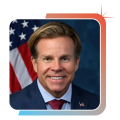
Congressman Mike Haridopolos is an experienced leader with a rich history of public service, business success, and a steadfast lifelong commitment to conservative values.
Congressman Haridopolos began his career teaching United States History and Political Science at Brevard Community College—now Eastern Florida State College, and taught classes as an instructor at the Bob Graham Center at the University of Florida.
Representing communities in Brevard County in the Florida House of Representatives and the State Senate from 2000-2012, Mike championed transparency, reduced taxes, and advanced conservative reforms. In the Florida Legislature, Mike quickly established himself as a capable lawmaker who stood firmly rooted in his conservative values, and pushed for greater government transparency and accountability for Floridians, leading the effort to put the state’s budget online. In 2008, he sponsored and championed Florida’s constitutional amendment reducing property taxes and allowing homeowners to bring their tax savings with them when they move to a new home.
Serving as President of the Senate from 2010-2012, Mike made transforming the Florida Senate into a more conservative policy body a key objective of his time in office.
After leaving office in 2012, Haridopolos started a successful business and political consulting company. He was elected to represent Florida’s 8th Congressional District in 2024, following the retirement of Congressman Bill Posey.
Mike lives in Indian Harbour Beach with his wife Dr. Stephanie Haridopolos. They have three adult children, Alexis, Hayden, and Reagan. Mike is dedicated to serving Brevard, Indian River, and Orange Counties with integrity, strength, and vision.

As the ongoing democratization of space continues, private-sector innovation, entrepreneurship, and market-driven solutions are transforming the sector. Once exclusive to national governments and multinational powers, space is being reshaped by a new generation of startups, scale-ups, and private-sector pioneers revolutionizing industries such as satellite communications, Earth observation, in-orbit servicing, and deep space exploration.
Bringing together key stakeholders, government officials, and industry leaders, this session will examine the trends, opportunities, and market dynamics shaping the commercialization of space across the region. Panelists will explore how private capital is being mobilized, the role of emerging technologies, and how collaboration across the continent can drive new business models and capabilities across several key sectors. This session will also explore actionable strategies to simplify rules, cut red tape, and promote a more streamlined business environment.
Janice Starzyk is the Deputy Director of the Office of Space Commerce, a Senior Executive Service position. Previously, she led Virgin Orbit’s Washington, DC, office and government operations. Her extensive experience and contributions in the space industry include leading the consulting practice at Bryce Space and Technology and more than a decade leading the commercial strategy and market intelligence for launch service providers International Launch Services (ILS) and United Launch Alliance (ULA). At Futron Corporation, Ms. Starzyk worked with a range of civil, military and commercial space industry customers.
She received her Bachelor of Science in Foreign Service from Georgetown University. She holds a Master of Arts in economics and international relations from the Johns Hopkins School of Advanced International Studies, and a dual-degree Global MBA from Tulane University and Universidad Icesi in Cali, Colombia.
For more than a decade, Ms. Starzyk has also provided community leadership and support to local STEM education programs through the Washington Space Business Roundtable. She was appointed to serve as an industry representative on the Commercial Space Transportation Advisory Committee in 2022.
Dr. Minh Nguyen currently serves as an acting Deputy Associate Administrator for the FAA’s Office of Commercial Space Transportation (AST). In this capacity, he oversees two directorates. The Operational Safety directorate focuses on safety analysis, safety authorization, and safety assurance for commercial space launch and re-entry operations. The Strategic Management directorate focusses on commercial space policy, regulations, standards, research & development, budget & finance, human capital planning, learning & development, strategic planning, international engagement, and spaceports. He previously served as an Executive Director for AST’s Office of Strategic Management. AST’s mission is to enable safe space transportation.
Previously, he has served in various capacities including FAA’s Deputy Director of the FAA’s Office of Policy and Plans, where he oversaw the FAA’s planning and implementation of the FAA’s Reauthorization of 2018 and agency’s corporate goals and business plan development and implementation. As acting Deputy Regional Administrator for the Northwest Region, he was in charge of consolidating FAA offices in 4 buildings into the new regional office building, and oversaw aviation matters in 7 states. As a member of the Administrator’s Strategic Initiatives Group (SIG), he contributed to formulating strategic priorities for the FAA.
He served in various capacities in the Nextgen organization, including program manager for the Office of Advanced Technology Development, division manager for the Office of Business Case Integration and Modeling, and chief of staff for the Senior Vice President of NextGen and Operations Planning.
Prior to joining the FAA, he worked at the MITRE Corporation, Veracity Engineering, Argon ST, and Naval Research Laboratory, leading advanced research programs.
He obtained his undergraduate, graduate, and doctorate degrees in Electrical Engineering from Virginia Polytechnic Institute and State University (Virginia Tech).

Lafayette Greenfield II is an Of Counsel in the Washington, DC office of Gibson, Dunn & Crutcher and a member of the firm’s Transportation and Space Practice Group.
Lafayette’s practice focuses on corporate, transactional and regulatory matters relating to the aerospace, satellite, telecommunications, data center and cloud computing industries. He has extensive experience advising companies, investors and financial institutions operating or investing in these industries on a wide range of corporate and financing transactions, including equity investments, mergers & acquisitions, joint ventures, project, vendor and leveraged financings, public offerings, and financial restructurings. In addition, Lafayette has deep expertise helping clients structure and negotiate purchase and services contracts involving aerospace, satellite, telecommunications, data center and cloud computing assets and services.
Lafayette is a member of the New York and District of Columbia bars. He received his Juris Doctor from Howard University School of Law in 2013, where he was a member of the Howard Law Journal. He received a Bachelor of Science in political science from Radford University in 2009.

Luis Guillermo Alarcón is a telecommunications engineer from the National Polytechnic Institute of Mexico, with an MBA from the École de Commerce de Lyon, France, and a Diploma in Financial Mathematics from FINDES, Mexico. He has over 35 years of experience in the telecommunications sector, having worked on projects, public policies, and regulatory frameworks across the Americas, Europe, and Africa. For the past eight years, he has served as Lead Telecommunications Specialist at the Inter-American Development Bank (IDB), based in Washington, D.C.
In the private sector, he held leadership roles such as Chief Technology Officer (CTO) for Latin America at Rivada Networks, Global Director of Government Broadband Initiatives at Alcatel-Lucent in Paris, and Global Account Director for the Telmex Group and Telmex International.
At the IDB, he leads strategic operations in digital infrastructure, meaningful connectivity, and financing for small internet providers in Brazil and the Caribbean. He has been responsible for structuring flagship projects such as the international submarine cable connecting Europe and the Brazilian Amazon (Pará and Maranhão More Connected Projects), the credit program for small rural internet providers (Acessa à Crédito Telecom), the integrated data system on credit and connectivity (SISCRED), and the first submarine cable to connect Haiti to the global network, currently under preparation.
His current focus is on promoting climate sustainability in telecommunications infrastructure, aligning digital investments with the region’s environmental and social goals. He has spearheaded initiatives such as “Selo Verde Telecom” in partnership with Brazil’s ANATEL, and data-driven programs like C2DB and DC2H, which strengthen institutional capacity to close connectivity gaps through evidence-based, inclusive, and sustainable approaches.
Caryn Schenewerk is a respected leader in navigating the complex regulatory and policy landscape for the spaceflight industry. As the President of CS Consulting, she provides expert guidance to clients on space law and policy engagement with all levels and branches of government. Caryn co-authored a space law textbook, International Space Law and Space Laws of the United States, and is honored to share her expertise as an adjunct professor of Space Law at Georgetown University Law Center.
Prior to founding CS Consulting, Caryn served as the Vice President for Regulatory and Government Affairs at Relativity Space, where she helped the company launch the world’s first 3-D printed rocket. Caryn started her career in aerospace at SpaceX, where she spent a decade supporting commercial and civil space operations, facility expansion, and economic development as a lawyer and lobbyist. She has an extensive track record of interacting with U.S. government agencies such as the FAA, NASA and the U.S. Space Force in support of launch and recovery operations.
Caryn chairs the Dept. of Commerce’s Advisory Committee on Excellence in Space (ACES) and has served as a member of the FAA’s Commercial Space Transportation Advisory Committee, leading the Regulatory Working Group. She also serves on the FAA’s Part 450 Space Advisory Rulemaking Committee (SpARC) and was the industry lead for the FAA’s Part 440 SpARC.
Prior to her work in the space industry, she served as the Deputy Associate Director for Legislative Affairs at the Office of Management and Budget in the Executive Office of the President. Caryn has also worked in various roles on Capitol Hill, including Counsel, Policy Director, and Deputy Chief of Staff after starting her career practicing trade law.
Caryn obtained her bachelor’s degree from Austin College in Sherman, TX, where she serves on the Board of Trustees. Her J.D. is from the University of Texas School of Law in Austin and her Master’s in Laws (LLM) is from the University of Nottingham in England. She is a member of the New York and D.C. Bars.

Stephan Sloan is a Founder and Investor in All 6G, LLC, where he focuses on advancing next-generation wireless infrastructure and the convergence of terrestrial and space-based connectivity. With a proven track record in telecommunications innovation and strategic investment, he bridges cutting-edge satellite technologies with 5G/6G ecosystems to enable seamless global coverage, low-latency networks, and resilient communications. Exploration of how private capital, regulatory reform, and cross-regional collaboration can accelerate growth guides the firm’s investment decisions.

* Via pre-recorded video

Congressman Mike Haridopolos is an experienced leader with a rich history of public service, business success, and a steadfast lifelong commitment to conservative values.
Congressman Haridopolos began his career teaching United States History and Political Science at Brevard Community College—now Eastern Florida State College, and taught classes as an instructor at the Bob Graham Center at the University of Florida.
Representing communities in Brevard County in the Florida House of Representatives and the State Senate from 2000-2012, Mike championed transparency, reduced taxes, and advanced conservative reforms. In the Florida Legislature, Mike quickly established himself as a capable lawmaker who stood firmly rooted in his conservative values, and pushed for greater government transparency and accountability for Floridians, leading the effort to put the state’s budget online. In 2008, he sponsored and championed Florida’s constitutional amendment reducing property taxes and allowing homeowners to bring their tax savings with them when they move to a new home.
Serving as President of the Senate from 2010-2012, Mike made transforming the Florida Senate into a more conservative policy body a key objective of his time in office.
After leaving office in 2012, Haridopolos started a successful business and political consulting company. He was elected to represent Florida’s 8th Congressional District in 2024, following the retirement of Congressman Bill Posey.
Mike lives in Indian Harbour Beach with his wife Dr. Stephanie Haridopolos. They have three adult children, Alexis, Hayden, and Reagan. Mike is dedicated to serving Brevard, Indian River, and Orange Counties with integrity, strength, and vision.

As the demand for satellite connectivity continues to surge across the Americas, so too does the spectrum required to power and support it. Yet spectrum allocation and licensing for non-terrestrial networks remain complex, particularly as countries navigate diverse regulatory regimes and cross-border coordination challenges.
This session will therefore examine the rapid evolution of the satellite sector and how it is reshaping spectrum licensing frameworks and access models throughout the Americas. Panelists will highlight regulatory opportunities and challenges particular to the region, taking into account the contrasting needs of both established satellite operators and new market entrants. Key issues on the for the 2027 World Radiocommunication Conference (WRC-27) will also be explored, as well as how these developments might shape the future of NTN technologies in the Americas. Throughout the session, emphasis will be placed on strategies to build a spectrum policy framework that protects existing services, encourages innovation (especially for NTNs and D2D), ensures fair access for all stakeholders, and harmonizes regulation across national boundaries.
Jay Schwarz is Chief of the FCC Space Bureau. Previously, he served as Vice President of Public Policy for Comcast, focusing on broadband issues. In his first tour at the FCC he was Wireline Advisor to former Chairman Ajit Pai and held positions within the Wireline Competition Bureau, Wireless Telecommunications Bureau, and the Office of Strategic Planning. Jay holds a Ph.D. in Economics from the University of Pittsburgh and an undergraduate degree in Civil Engineering from Texas A&M University.
Juan Martín Ozores has been serving as the head of the National Communications Agency (ENACOM), Argentina’s telecommunications regulator, since January 2024.
With a 30-year career in the Information and Communications Technology (ICT) industry across Latin America and the Caribbean, he has played a key role in the development of products and services in both the mobile and fixed segments throughout the region.
He holds a degree in Business Administration from the Pontifical Catholic University of Argentina (UCA) and a postgraduate degree in Marketing from the IAE Business School, Austral University. Ozores is strongly committed to creating a simple, clear, and transparent ecosystem that promotes investment and competition in the telecommunications, audiovisual, and postal sectors, with the overarching goal of fostering social development.

Manuel González Farfán has worked for over 25 years at the Chilean Undersecretariat of Telecommunications (Subtel), participating as a delegate in meetings of CITEL, CCPII, ITU (WRC), and others. Manuel currently works in the Spectrum Management Department at SUBTEL, focusing on sector regulation and standards, particularly for wireless services. He also represents the Ministry of Transport and Telecommunications on the Chilean Space Executive Committee.

Catherine Kuersten is Head of Government Affairs & Public Policy at Northwood. Prior to joining Northwood, Catherine worked for Amazon Leo and in private practice with an international law firm supporting regulatory and litigation matters for communications and technology companies. Catherine holds a J.D. from the University of Pennsylvania and a B.S. in Aerospace Engineering from the University of Illinois at Urbana-Champaign.
As President of SIA, Tom is the trade association’s lead advocate for regulatory and policy issues of critical importance to SIA’s membership, including spectrum and licensing issues, defense and public safety matters, and export control and international trade issues. He also manages the day-to-day operations of SIA, including member communications, staff leadership and organization of SIA sponsored events. Tom became the president of SIA in December of 2014.
Prior to joining SIA, Tom was with Shared Spectrum Company (SSC), a leading developer of spectrum intelligence technologies, where he served as CEO. For more than a decade, he served as the President of the Personal Communications Industry Association (PCIA). Previous to his position at SSC, he founded and ran several companies in the technology industry, including Columbia Spectrum Management, P-Com Network Services, CSM Wireless, and SquareLoop.
Tom holds a BS, summa cum laude, in Public Administration from the University of North Dakota. He is also a graduate of Georgetown University Law Center where he served as Editor of the Georgetown Law Journal.
Long a central player in the global space ecosystem, shifting geopolitical dynamics, both on Earth and in orbit, are prompting stakeholders across the continent to reexamine their approaches to international space diplomacy and cooperation. Given this, our final session will explore these evolving approaches and assess how the Americas can continue to lead critical conversations around the future of orbital activity.
Panelists will discuss opportunities for deeper collaboration with leading space agencies, multilateral organizations, and private sector innovators, while examining how to maintain leadership in shaping a secure, sustainable, and innovation-driven space future. They’ll also consider how international partnerships and collaborative frameworks can be designed to support, rather than compromise, national and regional autonomy. Throughout, the conversation will explore how shared regional goals, national interests, and global responsibilities can be effectively balanced in an increasingly complex and fast-moving space environment.

Graduated in Electrical Engineering from the State University of Campinas – Unicamp (1984), a Master’s degree in Space Engineering and Technology from the National Institute for Space Research – INPE, Brazil (1989) and a PhD in Electronics from the Ecole Nationale Supérieure de L’Aéronautique et de L’Espace – SUPAERO, France (1996).
He was coordinator of the scientific satellites program at the National Institute for Space Research (INPE), Technology Management Coordinator, Deputy Coordinator of Space Engineering and Technology, and Planning, Budget, and Evaluation Coordinator at INPE. He also served as the manager of the SABIA-Mar space mission, dedicated to oceanographic studies.
He has conducted research related to Estimation Theory, development of GPS navigation systems, and telecommunications systems for space applications.
As the president of the Brazilian Space Agency (AEB), Marco Antonio Chamon is committed to leading and strengthening AEB’s mission in developing and promoting space activities in the country. His technical expertise and strategic vision are fundamental to boosting the Brazilian aerospace industry, fostering scientific research, and establishing national and international partnerships that drive the sector forward.

Meredith McKay serves as the acting associate administrator in the Office of International and Interagency Relations (OIIR). OIIR is responsible for executive leadership and direction of NASA’s international and interagency activities and partnerships for NASA’s mission areas; interactions between NASA and other executive branch offices, departments, and agencies, including the National Security Council, the Department of State, National Space Council, and the Office of Science and Technology Policy; and administration of export control and international technology transfer programs. In addition to her acting role, McKay officially holds the position of deputy associate administrator for the office.
McKay began her NASA career over 20 years ago with positions in the Policy and Plans and International Space Station Divisions of the Space Operations Mission Directorate. After joining OIIR, she served in positions of increasing responsibility, including as a regional team lead and division director. She also served as the agency’s acting deputy chief of staff, where she helped lead the coordination and execution of initiatives, programs, and policies in critical areas of concern to the acting administrator and agency leadership. Prior to joining NASA, McKay served in the arts and culture non-profit sector and in political campaign organizations.
She has received numerous group and individual achievement awards, including the NASA Exceptional Service Medal.
Alexander Soucek is Head of the External Relations Department at the European Space Agency (ESA). In the course of a distinguished career of more than twenty years at ESA, he has held a number of roles, including as Head of the International Law Division, Secretary of the International Space Station Coordination Committee, and Head of the ESA Delegation to the UN Committee on the Peaceful Uses of Outer Space (UNCOPUOS).
Alexander holds master’s degrees in law from Salzburg University, Austria, and in space studies from the International Space University in Strasbourg, France. He is, further, set to obtain, in December 2025, an executive master’s in international strategy and diplomacy from the London School of Economics and Political Science. An alumnus of The Hague Academy of International Law and former visiting researcher at the Space Policy Institute, Elliott School of International Affairs of George Washington University, he is a full member of the International Academy of Astronautics, the International Institute of Space Law (IISL) and the European Centre for Space Law (ECSL).
An experienced practitioner and academic, Alexander negotiated numerous international space cooperation agreements and lectures on international relations and international law at universities in Europe and beyond. He has written books and articles on these topics, has contributed to intergovernmental expert groups including the UN Space Mission Planning Advisory Group (SMPAG), and has served as lead flight director in international spaceflight analogue missions.
David Logsdon is the Senior Director, Space Policy, ITI Space Enterprise Council. In his role, he has created and implemented a strategic international space cooperation engagement plan involving multiple countries, which has helped drive U.S. engagement (both G-to-G and private sector) with international partners. Logsdon facilitated the signing of Memorandum of Understanding (MOU) agreements with eight countries (Argentina, Australia, Brazil, Chile, Colombia, Ecuador, India, and Norway). Logsdon was one of the leading players in helping get Technology Safeguards Agreements signed and ratified between the US and Brazilian and Australian governments. Logsdon also led trade missions to Brazil and Chile.
Logsdon has held a private sector leadership position within the DHS CISA Space Systems Security and Resilience Landscape working group, which led an effort to create a space/cybersecurity/zero trust framework. Logsdon is also the Chair of the IEEE International government subgroup, helping create a global space and cybersecurity standard.
Logsdon has cultivated relationships between private-sector executives and federal agencies, highlighting importance of space-based assets to economic and national security, and helping federal agencies justify space-related expenditures through the SEC’s “A Day Without Space” forums.
Logsdon acted as a member of the Department of Commerce International Trade Advisory Committee on Aerospace, advising secretary of commerce on aerospace industry international trade issues.
Logsdon acted as the private sector lead for the US-Brazil Defense Industry Dialogue Space Working Group.
Logsdon was a member of the US National Space Based PNT Advisory Board.
Logsdon helped lead the TechAmerica Technology Convergence Commission, which focused on the intersection between social media, mobile, analytics, and cloud computing.
Prior to running the Space Enterprise Council (a position he has held for twenty two years), Logsdon was the Manager of Space Operations at the Aerospace Industries Association and a technology policy analyst at Futron Corporation.
Logsdon holds a bachelor’s degree in Criminal Justice from the University of Delaware and a master’s degree in Political Management from George Washington University.


Charity Weeden is a nonresident senior fellow at the Atlantic Council’s GeoTech Center. She brings more than twenty-five years of distinguished aerospace leadership across civil, military, commercial, and nonprofit sectors. Weeden is an advisor on technology policy, business, and geostrategic matters to disruptors across emerging technologies.
As the National Aeronautics and Space Administration’s (NASA’s) associate administrator for technology, policy, and strategy between 2023 and 2025, Weeden led a team of technology, policy, and economic experts dedicated to data-driven advice on critical investment decisions affecting national and international space priorities.
Prior to NASA, Weeden was vice president for global space policy and government relations at Astroscale US between 2019 and 2023, where she orchestrated international and US domestic policy campaigns, shaping the future of in-space servicing rules, practices, and standards. Weeden was appointed as chair of the US Department of Transportation’s Commercial Space Transportation Advisory Committee from 2020 to 2022, leading recommendations on numerous topics affecting the US commercial launch and reentry community.
Weeden’s unique perspective on technology and partnerships is informed by her twenty-three-year career in the Royal Canadian Air Force, where she served in roles centering on maritime domain awareness, space surveillance and communications, policy and doctrine, space operations, and aerospace alliances. Her military service culminated in space-to-space military engagements among Canada and allies in Washington, DC.
Weeden holds a bachelor’s degree in mechanical engineering from the Royal Military College of Canada and a master’s degree in space studies from the University of North Dakota.
Congressman George Whitesides is proudly serving his first term representing California’s 27th Congressional District and sits on both the House Armed Services Committee and as Vice Ranking Member of the House Science, Space, and Technology Committee. He is a problem-solver, innovator, and community leader with a career spanning space industry leadership, job creation, and public service.
Over the past two decades, Congressman Whitesides helped lead NASA to new heights, created hundreds of quality jobs in the Antelope Valley, and supported frontline responders and public health efforts, especially in response to the wildfire crisis.
Congressman Whitesides served as Chief of Staff at NASA during the Obama administration, where he led agency reforms that helped pave the way for America’s current leadership in space. For his contributions, he was awarded NASA’s Distinguished Service Medal, the agency’s highest honor.
Following his time at NASA, Congressman Whitesides became the first CEO of Virgin Galactic, an innovative aerospace company. Over the course of a decade, he created over 700 jobs in the Antelope Valley, transformed Virgin Galactic from a small team into a global aerospace firm, and oversaw the first woman to reach space aboard a commercial space vehicle.
As wildfires have become increasingly destructive across Southern California, Congressman Whitesides has prioritized public safety and climate resilience. He co-founded a policy nonprofit solely dedicated to addressing the nation’s wildfire crisis and home insurance problems. Now, he’s helping his community and neighbors rebuild from the devastating fires, and working on proactive solutions to prevent the next crisis.
Locally, Congressman Whitesides has demonstrated his economic and social leadership through positions on business development boards and task forces. He previously served on the board of AV EDGE (Antelope Valley Economic Development and Growth Enterprise), helping drive economic growth and opportunity in the region. He co-chaired the Antelope Valley COVID-19 Task Force, uniting NASA, industry, local government, and Antelope Valley College to support frontline medical workers — work that earned him NASA’s Exceptional Public Achievement Medal.
George and his wife, Loretta Hidalgo Whitesides, have been married for nearly 20 years and raise their two children together.
Katy Milner provides legal and strategic advice to a broad cross-section of telecommunications and technology industry clients on regulatory, transactional, and compliance matters.
Katy has a wealth of experience providing clients with practical guidance and valued counsel on spectrum acquisition and utilization, wireless services and satellite regulation, cybersecurity and data privacy, public safety and 911 services, international telecommunications matters, connected vehicles and the Internet of Things, and broadband and Internet policy. Katy also has significant experience advising clients on uncrewed aircraft systems (UAS) matters, particularly on FCC-related activity. Katy advocates for her clients before the Federal Communications Commission (FCC), Congress, the Executive Branch, and other federal agencies.

Ari Fitzgerald leads the firm’s Communications, Internet, and Media practice. He provides strategic, legal, and policy advice on a wide range of communications and spectrum policy issues to some of the world’s largest and most dynamic communications network operators and equipment manufacturers, as well as industry trade associations and investors.
Ari enjoys helping automobile manufacturers and suppliers, medical device manufacturers, drone manufacturers, and other technology companies bring new and innovative communications-related products and services to market. In recognition of his path-breaking contributions to the wireless industry, he is one of only three attorneys to have ever been inducted into the Wireless History Foundation’s Wireless Hall of Fame.

Taylor Jordan is NOAA’s Assistant Secretary of Commerce for Environmental Observation and Prediction. Mr. Jordan is responsible for the strategic direction and oversight regarding NOAA’s numerical weather prediction and environmental modeling, satellite programs and space innovation, novel data and observations, uncrewed systems, and other large acquisitions.
Mr. Jordan previously served as Principal at Innovative Federal Strategies, where he supported new partnerships for many of NOAA’s mission areas. He also served at NOAA previously as a Senior Policy Advisor and worked on the Hill for close to a decade as the lead staffer for NOAA on the U.S. House of Representatives Committee on Science, Space, and Technology, where he authored the Weather Research and Forecasting Innovation Act of 2017.
Mr. Jordan holds a bachelor’s degree from the University of North Texas and a master’s degree from Johns Hopkins University.

Graduated in Electrical Engineering from the State University of Campinas – Unicamp (1984), a Master’s degree in Space Engineering and Technology from the National Institute for Space Research – INPE, Brazil (1989) and a PhD in Electronics from the Ecole Nationale Supérieure de L’Aéronautique et de L’Espace – SUPAERO, France (1996).
He was coordinator of the scientific satellites program at the National Institute for Space Research (INPE), Technology Management Coordinator, Deputy Coordinator of Space Engineering and Technology, and Planning, Budget, and Evaluation Coordinator at INPE. He also served as the manager of the SABIA-Mar space mission, dedicated to oceanographic studies.
He has conducted research related to Estimation Theory, development of GPS navigation systems, and telecommunications systems for space applications.
As the president of the Brazilian Space Agency (AEB), Marco Antonio Chamon is committed to leading and strengthening AEB’s mission in developing and promoting space activities in the country. His technical expertise and strategic vision are fundamental to boosting the Brazilian aerospace industry, fostering scientific research, and establishing national and international partnerships that drive the sector forward.

Isabelle Mauro is Director General of the Global Satellite Operators Association (GSOA) that represents the interests of 70 members in the satellite ecosystem. She reports directly to their Chief Executives.
Under Isabelle’s leadership, GSOA and its member CEOs lead the effort to showcase the benefits of satellite communications for a more inclusive and secure society – vital to bridging the world’s digital divide, achieving the UN’s Sustainable Development Goals and realizing the 5G ecosystem.
Isabelle has 25 years experience in the Telecoms and Technology sector, starting at the GSMA, where she was responsible for government and international Affairs. In 2015 she moved to New York to join the World Economic Forum as Head of Information, Communications and Technology Industries, managing the portfolio for 60+ Tech companies globally and leading initiatives on inclusive and sustainable digital transformation.
Isabelle is passionate about inclusion and sustainability. She is Chair of the High-Level Advisory Board of the DigitalGoesGreen Foundation. She also sits on the Advisory Board of Women in Tech and is a member of the UNESCO Advisory Group for the Declaration on Connectivity for Education.
Isabelle holds an MSc in European Politics and Policy from the London School of Economics. She is fluent in French, English, Italian and Spanish.
George John assures today’s regulation, legislation, and policy do not ground tomorrow’s engineering, innovation, and investment.
Technology innovation abounds. But the associated Governance frameworks cannot keep pace. Established and startup companies, trade associations, and the investment community, among others, have enlisted George to overcome this imbalance and ensure their ventures take flight and flourish in the communications and space industries, including any potential overlap with sports, medical, or mobility applications.
He has become a go-to problem solver, advisor, and advocate. With his support, clients have maneuvered deftly through complex, patchwork, and sometimes inscrutable rulemakings, consultations, and statutory construction; licensing, landing rights/market access, registration, equipment authorization, and labeling; regulatory, technical, and engineering standards compliance; and enforcement when they are tackling radiofrequency spectrum, orbital debris, remote sensing, and other related issues.
What makes him unique are his numerous connections, deep industry knowledge, and prior diverse experiences. His current practice regularly engages US bodies such as the Federal Communications Commission (FCC), Department of Commerce (including the National Telecommunications and Information Administration, National Oceanic and Atmospheric Administration, and Office of Space Commerce), Department of Defense, Federal Aviation Administration (FAA),and US Congress; and other bodies such as the International Telecommunication Union, UN Committee on the Peaceful Uses for Outer Space, and foreign administrations (particularly in Europe where he lived during an extended secondment). Before starting his practice, previous career stops included a pioneering nanosatellite company and the FCC and FAA. Clients have secured expedited and often first-of-their-kind wins given his well-established relationships with and understanding of these decisionmakers.
While space activity across the Americas continues to expand rapidly, it remains characterized by considerable regulatory fragmentation. Differences in national space laws, export control regimes, licensing frameworks, and overlapping regional agreements often hinder cross-border collaboration, investment, and innovation.
This opening session will therefore assess the appetite for regional regulatory alignment and policy coordination, exploring both the opportunities and potential challenges such efforts may bring. Through dialogue on a more unified vision of space governance, panelists will discuss practical strategies to build a more cohesive, competitive, and innovative ecosystem, also highlighting what meaningful reform could look like in practice. The discussion will also cover how agencies, industries, and policymakers can balance national interests with the broader benefits of cooperation, particularly under evolving geopolitical dynamics.
Bio to follow.
Dr. Renata Brazil-David is the Director General of the International Telecommunications Satellite Organization (ITSO). She was elected at the organization’s Assembly of Parties meeting held in Washington, D.C. in October 2024 and assumed the position of Director General of ITSO on July 18, 2025.
Dr. Brazil-David was nominated by the Party of Brazil and her election marks a new chapter in ITSO’s history, as she becomes the first woman to serve as Director General at ITSO. In her acceptance speech, Dr. Brazil-David expressed that it was a great to be the first woman to hold the position of Director General at ITSO. “This milestone is a reflection of the progress we are making together toward a more inclusive and equitable future, both within ITSO and the wider world of global telecommunications. I hope my appointment serves as an inspiration to other women and young professionals striving to make their mark in industries that have traditionally been male-dominated.”
Up to the time of assuming her new appointment as Director General in July 2025, Dr. Brazil-David had more than 10 years of experience at ITSO, having held the positions of Deputy Director General, Director of International and Regulatory ASairs and Director of Legal ASairs.
Dr. Brazil-David was also Director of Regulatory Policy at Inmarsat (now part of ViaSat) where she worked on developing and implementing global regulatory policy strategy. She has also worked in academia as Adjunct Professor and as the Associate Director of the Program on Brazil-US Comparative Law at American University Washington College of Law (AUWCL).
She holds a Ph.D. in Law (SJD) from American University and a Master of Laws (LL.M.) degree from the University of Essex. Dr. Renata Brazil-David is fluent in the three languages of the organization, English, Spanish and French, in addition to being a native Portuguese speaker.
Julie Kearney is a Co-Chair of the Space Exploration and Innovation Practice and a partner in the Telecom group at DLA Piper. She is a globally recognized and dynamic lawyer in the technology, satellite, space, and telecommunications field. For more than 25 years, Julie has worked with governments, industries, and the public sector around the world to promote legal and regulatory frameworks and policies that enable life-changing technologies.
As the first Chief of the Space Bureau at the Federal Communications Commission (FCC), Julie represented and spoke for the Chairwoman and Commissioners on satellite and space-based communication matters and represented the Commission at the domestic and international level. Under Julie’s leadership, the FCC unanimously adopted several regulatory frameworks and launched initiatives to successfully advance industry leadership in the New Space Age. Additionally, during her tenure as Chief, the FCC adopted a regulatory structure for Supplemental Coverage from Space, which made the FCC the first regulator in the world to issue a framework for connecting satellites directly to consumer handsets using spectrum previously allocated only to terrestrial service.
Before joining the FCC, Julie served as the Vice President of Communications Regulatory Affairs and Policy at Twilio Inc., a publicly traded Communications Platform as a Service (CPaaS) provider, where she developed and implemented the company’s global telecommunications regulatory and policy and law enforcement response strategy. She also served as the Global Head of Communications Regulation and Policy for Loon, an Alphabet Inc. company, where she led international and US regulatory initiatives to bring internet access to unserved and underserved communities around the world via a network of balloons on the edge of space. She also held roles at the Consumer Technology Association, National Public Radio, MCI, and private legal practice.
Julie is a past president of the Federal Communications Bar Association (FCBA – The Tech Bar) and she also served as chair of the FCBA Foundation. She was a long-serving member of the Federal Communications Commission’s Consumer Advisory Committee and also served on its Broadband Deployment Advisory Committee. Other Board positions include USTelecom and the United States Technical Training Institute (USTTI).
Julie earned her B.A. from Mount Holyoke College and a J.D. from Catholic University’s Columbus School of Law, with a certificate from its Law and Technology Institute. She recently completed a 3.5 year term on the Columbus School of Law’s Board of Visitors. A trained singer, she has sung with choruses in the San Francisco Bay Area and Washington, DC area, most recently with Schola Cantorum (CA) and the Choral Arts Society of Washington (DC).
Jennifer A. Warren is Vice President, Global Regulatory Affairs & Public Policy for Lockheed Martin Corporation. In this capacity, she is responsible for leading corporate team’s engagement across the Executive Branch, Independent Agencies and Intergovernmental Bodies on Lockheed Martin’s regulatory and public policy portfolio, including spectrum governance, 5G, climate/sustainability, ocean minerals, commercial civil space, aviation, and emerging technologies.
Ms. Warren manages the Corporation’s trade association relationships, and serves on the Boards of the Satellite Industry Association (Chair), Professional Services Corporation, and the U.S. ITU Association, and as the co-chair of the U.S. Chamber of Commerce’s Telecommunications and E-Commerce Committee.
In 1996, Ms. Warren joined Lockheed Martin from the U.S. Federal Communications Commission, where she served in several senior roles in the Wireless Telecommunications and International Bureaus. Before joining the U.S. Government, Ms. Warren worked for the Commission of the European Union – both in Brussels and in Washington, DC – with a focus on EU-U.S. trade.
She is a graduate of Georgetown University (B.S. in Languages) and Georgetown University Law Center (J.D.), and a member of the Illinois State and D.C. Bars, the Federal Communications Bar Association, American Bar Association, and the Women’s Bar Association. Her civic activities include the George Washington Legacy Foundation Board, President of the Gadsby Tavern Museum Society in Old Town Alexandria, and the Foundation of the National Archives & Records Administration.
Ms. Warren lives in Old Town Alexandria, Virginia, with her husband Ed, and their puppy – Madison.
George John assures today’s regulation, legislation, and policy do not ground tomorrow’s engineering, innovation, and investment.
Technology innovation abounds. But the associated governance frameworks cannot keep pace. Established and startup companies, trade associations, and the investment community, among others, have enlisted George to overcome this imbalance and ensure their ventures take flight and flourish in the communications and space industries, including any potential overlap with sports, medical, or mobility applications.
He has become a go-to problem solver, advisor, and advocate. With his support, clients have maneuvered deftly through complex, patchwork, and sometimes inscrutable rulemakings, consultations, and statutory construction; licensing, landing rights/market access, registration, equipment authorization, and labeling; regulatory, technical, and engineering standards compliance; and enforcement when they are tackling radiofrequency spectrum, orbital debris, remote sensing, and other related issues.
What makes him unique are his numerous connections, deep industry knowledge, and prior diverse experiences. His current practice regularly engages US bodies such as the Federal Communications Commission (FCC), Department of Commerce (including the National Telecommunications and Information Administration, National Oceanic and Atmospheric Administration, and Office of Space Commerce), Department of Defense, Federal Aviation Administration (FAA), and US Congress; and other bodies such as the International Telecommunication Union, UN Committee on the Peaceful Uses for Outer Space, and foreign administrations (particularly in Europe where he lived during an extended secondment). Before starting his practice, previous career stops included a pioneering nanosatellite company and the FCC and FAA. Clients have secured expedited and often first-of-their-kind wins given his well-established relationships with and understanding of these decisionmakers.
* Via pre-recorded video
United Nations Secretary-General António Guterres announced on 26 June 2023 the appointment of Aarti Holla-Maini of the United Kingdom as Director of the United Nations Office for Outer Space Affairs (UNOOSA) in Vienna.
She will succeed Simonetta Di Pippo of Italy, to whom the Secretary-General is grateful for her commitment and dedicated service to the Organization. The Secretary-General also wishes to extend his appreciation to the Chief, Committee, Policy and Legal Affairs Section, Niklas Hedman, who will continue to serve as Acting Director of UNOOSA until Ms. Holla-Maini assumes this position.
UNOOSA works to promote international cooperation in the peaceful use and exploration of space, and in the utilisation of space science and technology for sustainable economic and social development.
Ms. Holla-Maini brings to this position over 25 years of professional experience in the space sector including in managerial and advocacy functions. Most recently, she has held the role of Executive Vice-President Sustainability, Policy & Impact at NorthStar Earth & Space; prior to which she spent over 18 years as Secretary-General of the Global Satellite Operators Association.
Ms. Holla-Maini’s experience includes service as a member of the World Economic Forum’s Global Future Council on Space; member of the Advisory Group of the Space Sustainability Rating managed by eSpace at the École Polytechnique Fédérale de Lausanne (EPFL) Space Center; member of the Advisory Board of the Satellite Industry Association of India; Senior Space Policy Adviser to Forum Europe and as Expert Adviser on Space Traffic Management for European Union studies 2021-2023. She was also one of the chief architects of the Crisis Connectivity Charter established in 2015 for emergency telecommunications via satellite with the UN World Food Program’s Emergency Telecommunications Cluster.
Ms. Holla-Maini holds a bachelor’s degree in law with German law from Kings College London, UK, a master’s degree in business administration from HEC Paris, France, and she is also an alumna of the International Space University. She is fluent in English, French, German and Punjabi and has moderate knowledge of Dutch.
Driven by the rise of mega constellations and a rapidly expanding commercial sector, the exponential growth of satellite activity is reshaping approaches to space sustainability. As mounting concerns are exacerbated by the existence of over 100 million pieces of debris already orbiting Earth, ensuring a safe and secure space environment has become a global priority requiring coordinated action from both industry and policymakers alike.
Accordingly, this session addresses the urgent challenges of space sustainability, debris mitigation, and traffic management. It offers a chance to assess the current regulatory landscape, explore what the future holds, and identify actionable strategies for stakeholders across the Americas. Panelists will examine how both regional and national efforts contribute to a global solution, and highlight how existing legislation can foster stronger international collaboration. Given the rapid expansion of private sector activity in space, the discussion will also emphasize the global responsibilities required for effective space governance, ensuring policies keep pace with the complexities of an increasingly dynamic orbital environment.
Anatel’s President Carlos Baigorri has a degree in Economic Sciences from the University of Brasília (UnB), with a Master’s and Doctorate in Economics from the Catholic University of Brasília (UCB). Acting in the telecommunications area since 2006, he was a consultant and analyst of sector information in an Association of mobile operators. He has also served as an undergraduate professor at the Catholic University of Brasilia (UCB), at the Institute of Higher Education of Brasília (IESB), and at the Brazilian Institute of Capital Markets (IBMEC). He wrote articles and book chapters published in Brazil and abroad. He has been a career permanent employee at Anatel since 2009, where he has been previously nominated Executive Superintendent, Competition Superintendent, Obligations Control Superintendent and Head of Technical Advisory.

Ingeniero electrónico con una sólida formación académica y amplia experiencia en el campo de las Tecnologías de la Información y las Comunicaciones (TIC). Con más de 31 años de experiencia profesional, ha demostrado un firme compromiso laboral tanto en el sector público como en el privado, así como en el rol de consultor independiente. Su carrera ha estado enfocada en asesoría para la formulación y ejecución de políticas públicas y de proyectos clave en el sector de las telecomunicaciones en Colombia.
En el Ministerio de Tecnologías de la Información y las Comunicaciones ocupó el cargo de Director Técnico, donde fue responsable de la gestión del espectro radioeléctrico y apoyó la planificación y puesta en marcha de políticas que dieron impulso a las telecomunicaciones en el país. Más recientemente ejerció como Asesor del Ministro TIC, cargo en el que brindó apoyo estratégico en el diseño y desarrollo de proyectos incluyendo temas fundamentales como la subasta de espectro para la introducción de tecnología 5G en Colombia, contribuyendo directamente a la modernización del sector.
Como Consultor en Telecomunicaciones ha asesorado diversas entidades públicas y privadas aportando su experiencia en el desarrollo de proyectos sobre gestión del espectro radioeléctrico, así como en la formulación de políticas y regulación del sector TIC.



Alicia Brown is the Executive Director of the Commercial Space Federation (CSF).
Ms. Brown is a veteran space policy and legislative affairs professional. Before joining CSF, she served at NASA as Associate Administrator of the Office of Legislative and Intergovernmental Affairs, leading the agency’s engagement with Congress and other elected officials. Prior to joining NASA, she served as a professional staff member for the U.S. Senate Committee on Commerce, Science, and Transportation, advising members of the Senate on policy related to U.S. civil space programs, commercial space, and science policy.
Bio to follow.
Dr. Brian Weeden is a director of civil and commercial policy for the Center for Space Policy and Strategy at The Aerospace Corporation, where he serves as a senior analyst and team leader on topics that cut across policy, technology, and economics. A highly respected and connected professional with more than two decades of experience in space operations and space policy analysis, Weeden specializes in the integration and advancement of technical, policy, legal, security, commercial, and international aspects of space activities.
Weeden is a former member and chair of the World Economic Forum’s Council on the Future of Space Technologies, a former member of the Advisory Committee on Commercial Remote Sensing (ACCRES) to the National Oceanic and Atmospheric Administration (NOAA), and the former executive director of the Consortium for Execution of Rendezvous and Servicing Operations (CONFERS).
Prior to joining Aerospace, Weeden was the chief program officer for Secure World Foundation, where he directed strategic planning for future-year projects to meet the Foundation’s goals and objectives and conducted research on space sustainability issues. Weeden also served nine years on active duty as an officer in the United States Air Force in space and intercontinental ballistic missile (ICBM) operations.
Weeden’s research and analysis have been featured in The New York Times, The Washington Post, National Public Radio, USA Today, The BBC, Fox News, China Radio International, The Economist, the 54th Annual Meeting of The World Economic Forum in Davos-Klosters, Switzerland, academic journals, presentations to the United Nations, and testimony before the U.S. Congress.
Weeden earned a bachelor’s degree in electrical engineering from Clarkson University, a master’s degree in space studies from the University of North Dakota, and a doctorate in public policy and administration from The George Washington University in the field of science and technology policy.

Congresswoman Valerie Foushee represents North Carolina’s Fourth District which includes Durham and Orange Counties and parts of Chatham and Wake Counties.
Before she began serving in Congress, Congresswoman Foushee worked as an administrator for the Chapel Hill Police Department and served 25 years as a local and state elected official. She went from serving on the Chapel Hill-Carrboro City Schools Board, to being the first African American woman elected to chair the Orange County Board of Commissioners, to serving in the North Carolina State House and the North Carolina State Senate.
In Congress, Congresswoman Foushee serves on the House Committee on Science, Space, and Technology, including serving as Ranking Member of the Space and Aeronautics Subcommittee, and the House Committee on Transportation and Infrastructure.


Congressman Mike Haridopolos is an experienced leader with a rich history of public service, business success, and a steadfast lifelong commitment to conservative values.
Congressman Haridopolos began his career teaching United States History and Political Science at Brevard Community College—now Eastern Florida State College, and taught classes as an instructor at the Bob Graham Center at the University of Florida.
Representing communities in Brevard County in the Florida House of Representatives and the State Senate from 2000-2012, Mike championed transparency, reduced taxes, and advanced conservative reforms. In the Florida Legislature, Mike quickly established himself as a capable lawmaker who stood firmly rooted in his conservative values, and pushed for greater government transparency and accountability for Floridians, leading the effort to put the state’s budget online. In 2008, he sponsored and championed Florida’s constitutional amendment reducing property taxes and allowing homeowners to bring their tax savings with them when they move to a new home.
Serving as President of the Senate from 2010-2012, Mike made transforming the Florida Senate into a more conservative policy body a key objective of his time in office.
After leaving office in 2012, Haridopolos started a successful business and political consulting company. He was elected to represent Florida’s 8th Congressional District in 2024, following the retirement of Congressman Bill Posey.
Mike lives in Indian Harbour Beach with his wife Dr. Stephanie Haridopolos. They have three adult children, Alexis, Hayden, and Reagan. Mike is dedicated to serving Brevard, Indian River, and Orange Counties with integrity, strength, and vision.

As the ongoing democratization of space continues, private-sector innovation, entrepreneurship, and market-driven solutions are transforming the sector. Once exclusive to national governments and multinational powers, space is being reshaped by a new generation of startups, scale-ups, and private-sector pioneers revolutionizing industries such as satellite communications, Earth observation, in-orbit servicing, and deep space exploration.
Bringing together key stakeholders, government officials, and industry leaders, this session will examine the trends, opportunities, and market dynamics shaping the commercialization of space across the region. Panelists will explore how private capital is being mobilized, the role of emerging technologies, and how collaboration across the continent can drive new business models and capabilities across several key sectors. This session will also explore actionable strategies to simplify rules, cut red tape, and promote a more streamlined business environment.
Janice Starzyk is the Deputy Director of the Office of Space Commerce, a Senior Executive Service position. Previously, she led Virgin Orbit’s Washington, DC, office and government operations. Her extensive experience and contributions in the space industry include leading the consulting practice at Bryce Space and Technology and more than a decade leading the commercial strategy and market intelligence for launch service providers International Launch Services (ILS) and United Launch Alliance (ULA). At Futron Corporation, Ms. Starzyk worked with a range of civil, military and commercial space industry customers.
She received her Bachelor of Science in Foreign Service from Georgetown University. She holds a Master of Arts in economics and international relations from the Johns Hopkins School of Advanced International Studies, and a dual-degree Global MBA from Tulane University and Universidad Icesi in Cali, Colombia.
For more than a decade, Ms. Starzyk has also provided community leadership and support to local STEM education programs through the Washington Space Business Roundtable. She was appointed to serve as an industry representative on the Commercial Space Transportation Advisory Committee in 2022.
Dr. Minh Nguyen currently serves as an acting Deputy Associate Administrator for the FAA’s Office of Commercial Space Transportation (AST). In this capacity, he oversees two directorates. The Operational Safety directorate focuses on safety analysis, safety authorization, and safety assurance for commercial space launch and re-entry operations. The Strategic Management directorate focusses on commercial space policy, regulations, standards, research & development, budget & finance, human capital planning, learning & development, strategic planning, international engagement, and spaceports. He previously served as an Executive Director for AST’s Office of Strategic Management. AST’s mission is to enable safe space transportation.
Previously, he has served in various capacities including FAA’s Deputy Director of the FAA’s Office of Policy and Plans, where he oversaw the FAA’s planning and implementation of the FAA’s Reauthorization of 2018 and agency’s corporate goals and business plan development and implementation. As acting Deputy Regional Administrator for the Northwest Region, he was in charge of consolidating FAA offices in 4 buildings into the new regional office building, and oversaw aviation matters in 7 states. As a member of the Administrator’s Strategic Initiatives Group (SIG), he contributed to formulating strategic priorities for the FAA.
He served in various capacities in the Nextgen organization, including program manager for the Office of Advanced Technology Development, division manager for the Office of Business Case Integration and Modeling, and chief of staff for the Senior Vice President of NextGen and Operations Planning.
Prior to joining the FAA, he worked at the MITRE Corporation, Veracity Engineering, Argon ST, and Naval Research Laboratory, leading advanced research programs.
He obtained his undergraduate, graduate, and doctorate degrees in Electrical Engineering from Virginia Polytechnic Institute and State University (Virginia Tech).

Lafayette Greenfield II is an Of Counsel in the Washington, DC office of Gibson, Dunn & Crutcher and a member of the firm’s Transportation and Space Practice Group.
Lafayette’s practice focuses on corporate, transactional and regulatory matters relating to the aerospace, satellite, telecommunications, data center and cloud computing industries. He has extensive experience advising companies, investors and financial institutions operating or investing in these industries on a wide range of corporate and financing transactions, including equity investments, mergers & acquisitions, joint ventures, project, vendor and leveraged financings, public offerings, and financial restructurings. In addition, Lafayette has deep expertise helping clients structure and negotiate purchase and services contracts involving aerospace, satellite, telecommunications, data center and cloud computing assets and services.
Lafayette is a member of the New York and District of Columbia bars. He received his Juris Doctor from Howard University School of Law in 2013, where he was a member of the Howard Law Journal. He received a Bachelor of Science in political science from Radford University in 2009.

Luis Guillermo Alarcón is a telecommunications engineer from the National Polytechnic Institute of Mexico, with an MBA from the École de Commerce de Lyon, France, and a Diploma in Financial Mathematics from FINDES, Mexico. He has over 35 years of experience in the telecommunications sector, having worked on projects, public policies, and regulatory frameworks across the Americas, Europe, and Africa. For the past eight years, he has served as Lead Telecommunications Specialist at the Inter-American Development Bank (IDB), based in Washington, D.C.
In the private sector, he held leadership roles such as Chief Technology Officer (CTO) for Latin America at Rivada Networks, Global Director of Government Broadband Initiatives at Alcatel-Lucent in Paris, and Global Account Director for the Telmex Group and Telmex International.
At the IDB, he leads strategic operations in digital infrastructure, meaningful connectivity, and financing for small internet providers in Brazil and the Caribbean. He has been responsible for structuring flagship projects such as the international submarine cable connecting Europe and the Brazilian Amazon (Pará and Maranhão More Connected Projects), the credit program for small rural internet providers (Acessa à Crédito Telecom), the integrated data system on credit and connectivity (SISCRED), and the first submarine cable to connect Haiti to the global network, currently under preparation.
His current focus is on promoting climate sustainability in telecommunications infrastructure, aligning digital investments with the region’s environmental and social goals. He has spearheaded initiatives such as “Selo Verde Telecom” in partnership with Brazil’s ANATEL, and data-driven programs like C2DB and DC2H, which strengthen institutional capacity to close connectivity gaps through evidence-based, inclusive, and sustainable approaches.
Caryn Schenewerk is a respected leader in navigating the complex regulatory and policy landscape for the spaceflight industry. As the President of CS Consulting, she provides expert guidance to clients on space law and policy engagement with all levels and branches of government. Caryn co-authored a space law textbook, International Space Law and Space Laws of the United States, and is honored to share her expertise as an adjunct professor of Space Law at Georgetown University Law Center.
Prior to founding CS Consulting, Caryn served as the Vice President for Regulatory and Government Affairs at Relativity Space, where she helped the company launch the world’s first 3-D printed rocket. Caryn started her career in aerospace at SpaceX, where she spent a decade supporting commercial and civil space operations, facility expansion, and economic development as a lawyer and lobbyist. She has an extensive track record of interacting with U.S. government agencies such as the FAA, NASA and the U.S. Space Force in support of launch and recovery operations.
Caryn chairs the Dept. of Commerce’s Advisory Committee on Excellence in Space (ACES) and has served as a member of the FAA’s Commercial Space Transportation Advisory Committee, leading the Regulatory Working Group. She also serves on the FAA’s Part 450 Space Advisory Rulemaking Committee (SpARC) and was the industry lead for the FAA’s Part 440 SpARC.
Prior to her work in the space industry, she served as the Deputy Associate Director for Legislative Affairs at the Office of Management and Budget in the Executive Office of the President. Caryn has also worked in various roles on Capitol Hill, including Counsel, Policy Director, and Deputy Chief of Staff after starting her career practicing trade law.
Caryn obtained her bachelor’s degree from Austin College in Sherman, TX, where she serves on the Board of Trustees. Her J.D. is from the University of Texas School of Law in Austin and her Master’s in Laws (LLM) is from the University of Nottingham in England. She is a member of the New York and D.C. Bars.

Stephan Sloan is a Founder and Investor in All 6G, LLC, where he focuses on advancing next-generation wireless infrastructure and the convergence of terrestrial and space-based connectivity. With a proven track record in telecommunications innovation and strategic investment, he bridges cutting-edge satellite technologies with 5G/6G ecosystems to enable seamless global coverage, low-latency networks, and resilient communications. Exploration of how private capital, regulatory reform, and cross-regional collaboration can accelerate growth guides the firm’s investment decisions.

* Via pre-recorded video

Congressman Mike Haridopolos is an experienced leader with a rich history of public service, business success, and a steadfast lifelong commitment to conservative values.
Congressman Haridopolos began his career teaching United States History and Political Science at Brevard Community College—now Eastern Florida State College, and taught classes as an instructor at the Bob Graham Center at the University of Florida.
Representing communities in Brevard County in the Florida House of Representatives and the State Senate from 2000-2012, Mike championed transparency, reduced taxes, and advanced conservative reforms. In the Florida Legislature, Mike quickly established himself as a capable lawmaker who stood firmly rooted in his conservative values, and pushed for greater government transparency and accountability for Floridians, leading the effort to put the state’s budget online. In 2008, he sponsored and championed Florida’s constitutional amendment reducing property taxes and allowing homeowners to bring their tax savings with them when they move to a new home.
Serving as President of the Senate from 2010-2012, Mike made transforming the Florida Senate into a more conservative policy body a key objective of his time in office.
After leaving office in 2012, Haridopolos started a successful business and political consulting company. He was elected to represent Florida’s 8th Congressional District in 2024, following the retirement of Congressman Bill Posey.
Mike lives in Indian Harbour Beach with his wife Dr. Stephanie Haridopolos. They have three adult children, Alexis, Hayden, and Reagan. Mike is dedicated to serving Brevard, Indian River, and Orange Counties with integrity, strength, and vision.

As the demand for satellite connectivity continues to surge across the Americas, so too does the spectrum required to power and support it. Yet spectrum allocation and licensing for non-terrestrial networks remain complex, particularly as countries navigate diverse regulatory regimes and cross-border coordination challenges.
This session will therefore examine the rapid evolution of the satellite sector and how it is reshaping spectrum licensing frameworks and access models throughout the Americas. Panelists will highlight regulatory opportunities and challenges particular to the region, taking into account the contrasting needs of both established satellite operators and new market entrants. Key issues on the for the 2027 World Radiocommunication Conference (WRC-27) will also be explored, as well as how these developments might shape the future of NTN technologies in the Americas. Throughout the session, emphasis will be placed on strategies to build a spectrum policy framework that protects existing services, encourages innovation (especially for NTNs and D2D), ensures fair access for all stakeholders, and harmonizes regulation across national boundaries.
Jay Schwarz is Chief of the FCC Space Bureau. Previously, he served as Vice President of Public Policy for Comcast, focusing on broadband issues. In his first tour at the FCC he was Wireline Advisor to former Chairman Ajit Pai and held positions within the Wireline Competition Bureau, Wireless Telecommunications Bureau, and the Office of Strategic Planning. Jay holds a Ph.D. in Economics from the University of Pittsburgh and an undergraduate degree in Civil Engineering from Texas A&M University.
Juan Martín Ozores has been serving as the head of the National Communications Agency (ENACOM), Argentina’s telecommunications regulator, since January 2024.
With a 30-year career in the Information and Communications Technology (ICT) industry across Latin America and the Caribbean, he has played a key role in the development of products and services in both the mobile and fixed segments throughout the region.
He holds a degree in Business Administration from the Pontifical Catholic University of Argentina (UCA) and a postgraduate degree in Marketing from the IAE Business School, Austral University. Ozores is strongly committed to creating a simple, clear, and transparent ecosystem that promotes investment and competition in the telecommunications, audiovisual, and postal sectors, with the overarching goal of fostering social development.

Manuel González Farfán has worked for over 25 years at the Chilean Undersecretariat of Telecommunications (Subtel), participating as a delegate in meetings of CITEL, CCPII, ITU (WRC), and others. Manuel currently works in the Spectrum Management Department at SUBTEL, focusing on sector regulation and standards, particularly for wireless services. He also represents the Ministry of Transport and Telecommunications on the Chilean Space Executive Committee.

Catherine Kuersten is Head of Government Affairs & Public Policy at Northwood. Prior to joining Northwood, Catherine worked for Amazon Leo and in private practice with an international law firm supporting regulatory and litigation matters for communications and technology companies. Catherine holds a J.D. from the University of Pennsylvania and a B.S. in Aerospace Engineering from the University of Illinois at Urbana-Champaign.
As President of SIA, Tom is the trade association’s lead advocate for regulatory and policy issues of critical importance to SIA’s membership, including spectrum and licensing issues, defense and public safety matters, and export control and international trade issues. He also manages the day-to-day operations of SIA, including member communications, staff leadership and organization of SIA sponsored events. Tom became the president of SIA in December of 2014.
Prior to joining SIA, Tom was with Shared Spectrum Company (SSC), a leading developer of spectrum intelligence technologies, where he served as CEO. For more than a decade, he served as the President of the Personal Communications Industry Association (PCIA). Previous to his position at SSC, he founded and ran several companies in the technology industry, including Columbia Spectrum Management, P-Com Network Services, CSM Wireless, and SquareLoop.
Tom holds a BS, summa cum laude, in Public Administration from the University of North Dakota. He is also a graduate of Georgetown University Law Center where he served as Editor of the Georgetown Law Journal.
Long a central player in the global space ecosystem, shifting geopolitical dynamics, both on Earth and in orbit, are prompting stakeholders across the continent to reexamine their approaches to international space diplomacy and cooperation. Given this, our final session will explore these evolving approaches and assess how the Americas can continue to lead critical conversations around the future of orbital activity.
Panelists will discuss opportunities for deeper collaboration with leading space agencies, multilateral organizations, and private sector innovators, while examining how to maintain leadership in shaping a secure, sustainable, and innovation-driven space future. They’ll also consider how international partnerships and collaborative frameworks can be designed to support, rather than compromise, national and regional autonomy. Throughout, the conversation will explore how shared regional goals, national interests, and global responsibilities can be effectively balanced in an increasingly complex and fast-moving space environment.

Graduated in Electrical Engineering from the State University of Campinas – Unicamp (1984), a Master’s degree in Space Engineering and Technology from the National Institute for Space Research – INPE, Brazil (1989) and a PhD in Electronics from the Ecole Nationale Supérieure de L’Aéronautique et de L’Espace – SUPAERO, France (1996).
He was coordinator of the scientific satellites program at the National Institute for Space Research (INPE), Technology Management Coordinator, Deputy Coordinator of Space Engineering and Technology, and Planning, Budget, and Evaluation Coordinator at INPE. He also served as the manager of the SABIA-Mar space mission, dedicated to oceanographic studies.
He has conducted research related to Estimation Theory, development of GPS navigation systems, and telecommunications systems for space applications.
As the president of the Brazilian Space Agency (AEB), Marco Antonio Chamon is committed to leading and strengthening AEB’s mission in developing and promoting space activities in the country. His technical expertise and strategic vision are fundamental to boosting the Brazilian aerospace industry, fostering scientific research, and establishing national and international partnerships that drive the sector forward.

Meredith McKay serves as the acting associate administrator in the Office of International and Interagency Relations (OIIR). OIIR is responsible for executive leadership and direction of NASA’s international and interagency activities and partnerships for NASA’s mission areas; interactions between NASA and other executive branch offices, departments, and agencies, including the National Security Council, the Department of State, National Space Council, and the Office of Science and Technology Policy; and administration of export control and international technology transfer programs. In addition to her acting role, McKay officially holds the position of deputy associate administrator for the office.
McKay began her NASA career over 20 years ago with positions in the Policy and Plans and International Space Station Divisions of the Space Operations Mission Directorate. After joining OIIR, she served in positions of increasing responsibility, including as a regional team lead and division director. She also served as the agency’s acting deputy chief of staff, where she helped lead the coordination and execution of initiatives, programs, and policies in critical areas of concern to the acting administrator and agency leadership. Prior to joining NASA, McKay served in the arts and culture non-profit sector and in political campaign organizations.
She has received numerous group and individual achievement awards, including the NASA Exceptional Service Medal.
Alexander Soucek is Head of the External Relations Department at the European Space Agency (ESA). In the course of a distinguished career of more than twenty years at ESA, he has held a number of roles, including as Head of the International Law Division, Secretary of the International Space Station Coordination Committee, and Head of the ESA Delegation to the UN Committee on the Peaceful Uses of Outer Space (UNCOPUOS).
Alexander holds master’s degrees in law from Salzburg University, Austria, and in space studies from the International Space University in Strasbourg, France. He is, further, set to obtain, in December 2025, an executive master’s in international strategy and diplomacy from the London School of Economics and Political Science. An alumnus of The Hague Academy of International Law and former visiting researcher at the Space Policy Institute, Elliott School of International Affairs of George Washington University, he is a full member of the International Academy of Astronautics, the International Institute of Space Law (IISL) and the European Centre for Space Law (ECSL).
An experienced practitioner and academic, Alexander negotiated numerous international space cooperation agreements and lectures on international relations and international law at universities in Europe and beyond. He has written books and articles on these topics, has contributed to intergovernmental expert groups including the UN Space Mission Planning Advisory Group (SMPAG), and has served as lead flight director in international spaceflight analogue missions.
David Logsdon is the Senior Director, Space Policy, ITI Space Enterprise Council. In his role, he has created and implemented a strategic international space cooperation engagement plan involving multiple countries, which has helped drive U.S. engagement (both G-to-G and private sector) with international partners. Logsdon facilitated the signing of Memorandum of Understanding (MOU) agreements with eight countries (Argentina, Australia, Brazil, Chile, Colombia, Ecuador, India, and Norway). Logsdon was one of the leading players in helping get Technology Safeguards Agreements signed and ratified between the US and Brazilian and Australian governments. Logsdon also led trade missions to Brazil and Chile.
Logsdon has held a private sector leadership position within the DHS CISA Space Systems Security and Resilience Landscape working group, which led an effort to create a space/cybersecurity/zero trust framework. Logsdon is also the Chair of the IEEE International government subgroup, helping create a global space and cybersecurity standard.
Logsdon has cultivated relationships between private-sector executives and federal agencies, highlighting importance of space-based assets to economic and national security, and helping federal agencies justify space-related expenditures through the SEC’s “A Day Without Space” forums.
Logsdon acted as a member of the Department of Commerce International Trade Advisory Committee on Aerospace, advising secretary of commerce on aerospace industry international trade issues.
Logsdon acted as the private sector lead for the US-Brazil Defense Industry Dialogue Space Working Group.
Logsdon was a member of the US National Space Based PNT Advisory Board.
Logsdon helped lead the TechAmerica Technology Convergence Commission, which focused on the intersection between social media, mobile, analytics, and cloud computing.
Prior to running the Space Enterprise Council (a position he has held for twenty two years), Logsdon was the Manager of Space Operations at the Aerospace Industries Association and a technology policy analyst at Futron Corporation.
Logsdon holds a bachelor’s degree in Criminal Justice from the University of Delaware and a master’s degree in Political Management from George Washington University.


Charity Weeden is a nonresident senior fellow at the Atlantic Council’s GeoTech Center. She brings more than twenty-five years of distinguished aerospace leadership across civil, military, commercial, and nonprofit sectors. Weeden is an advisor on technology policy, business, and geostrategic matters to disruptors across emerging technologies.
As the National Aeronautics and Space Administration’s (NASA’s) associate administrator for technology, policy, and strategy between 2023 and 2025, Weeden led a team of technology, policy, and economic experts dedicated to data-driven advice on critical investment decisions affecting national and international space priorities.
Prior to NASA, Weeden was vice president for global space policy and government relations at Astroscale US between 2019 and 2023, where she orchestrated international and US domestic policy campaigns, shaping the future of in-space servicing rules, practices, and standards. Weeden was appointed as chair of the US Department of Transportation’s Commercial Space Transportation Advisory Committee from 2020 to 2022, leading recommendations on numerous topics affecting the US commercial launch and reentry community.
Weeden’s unique perspective on technology and partnerships is informed by her twenty-three-year career in the Royal Canadian Air Force, where she served in roles centering on maritime domain awareness, space surveillance and communications, policy and doctrine, space operations, and aerospace alliances. Her military service culminated in space-to-space military engagements among Canada and allies in Washington, DC.
Weeden holds a bachelor’s degree in mechanical engineering from the Royal Military College of Canada and a master’s degree in space studies from the University of North Dakota.
Congressman George Whitesides is proudly serving his first term representing California’s 27th Congressional District and sits on both the House Armed Services Committee and as Vice Ranking Member of the House Science, Space, and Technology Committee. He is a problem-solver, innovator, and community leader with a career spanning space industry leadership, job creation, and public service.
Over the past two decades, Congressman Whitesides helped lead NASA to new heights, created hundreds of quality jobs in the Antelope Valley, and supported frontline responders and public health efforts, especially in response to the wildfire crisis.
Congressman Whitesides served as Chief of Staff at NASA during the Obama administration, where he led agency reforms that helped pave the way for America’s current leadership in space. For his contributions, he was awarded NASA’s Distinguished Service Medal, the agency’s highest honor.
Following his time at NASA, Congressman Whitesides became the first CEO of Virgin Galactic, an innovative aerospace company. Over the course of a decade, he created over 700 jobs in the Antelope Valley, transformed Virgin Galactic from a small team into a global aerospace firm, and oversaw the first woman to reach space aboard a commercial space vehicle.
As wildfires have become increasingly destructive across Southern California, Congressman Whitesides has prioritized public safety and climate resilience. He co-founded a policy nonprofit solely dedicated to addressing the nation’s wildfire crisis and home insurance problems. Now, he’s helping his community and neighbors rebuild from the devastating fires, and working on proactive solutions to prevent the next crisis.
Locally, Congressman Whitesides has demonstrated his economic and social leadership through positions on business development boards and task forces. He previously served on the board of AV EDGE (Antelope Valley Economic Development and Growth Enterprise), helping drive economic growth and opportunity in the region. He co-chaired the Antelope Valley COVID-19 Task Force, uniting NASA, industry, local government, and Antelope Valley College to support frontline medical workers — work that earned him NASA’s Exceptional Public Achievement Medal.
George and his wife, Loretta Hidalgo Whitesides, have been married for nearly 20 years and raise their two children together.
Katy Milner provides legal and strategic advice to a broad cross-section of telecommunications and technology industry clients on regulatory, transactional, and compliance matters.
Katy has a wealth of experience providing clients with practical guidance and valued counsel on spectrum acquisition and utilization, wireless services and satellite regulation, cybersecurity and data privacy, public safety and 911 services, international telecommunications matters, connected vehicles and the Internet of Things, and broadband and Internet policy. Katy also has significant experience advising clients on uncrewed aircraft systems (UAS) matters, particularly on FCC-related activity. Katy advocates for her clients before the Federal Communications Commission (FCC), Congress, the Executive Branch, and other federal agencies.
This event builds on the successful format of The European Space Forum, bringing together leading policymakers, regulators, and industry stakeholders from across the region.
Discover below how the European edition has become a benchmark for space policy dialogue, and how this new edition aims to extend that success by creating a key platform for forward-looking, impactful discussion in the Americas.
Taking place in Washington, D.C. on December 8th, 2025 the inaugural Americas D2D Policy Forum brought together key stakeholders to examine the regulatory landscape, technological advancements, emerging business models, and the challenges that lie ahead. Find out more at d2damericas@forum-global.com.
Realizing the Vision
Can Direct-to-Device Connectivity Fulfill Its Potential?
Washington, D.C. | December 8, 2025 (Co-located with The Americas Space Forum)
Through interactive discussions on regulation, spectrum strategies, business models, and emerging use cases, this one-day forum will explore how D2D can fulfil its potential and drive innovation across the connectivity landscape.
For more information and to access the event website, please visit:
Realising the Vision
Can Direct-to-Device Connectivity Fulfil Its Potential?
Brussels | 1 July 2025 (Co-located with The European Space Forum)
Through interactive discussions on regulation, spectrum strategies, business models, and emerging use cases, this 1 day forum will explore how D2D can fulfil its potential and drive innovation across the connectivity landscape.
For more information and to access the event website, please visit


Forum Global specializes in policy focused conferences and events, providing a platform for discussion and debate on topical issues across a variety of different sectors. These events are organized with clients and partners and aim to progress ideas and actions on important issues, all within a balanced and neutral setting.Forum Global is the international arm of Forum Europe, which was founded by Giles Merritt, columnist for the International Herald Tribune, and is widely recognized as the leading EU dedicated event provider.Headed by a team of events specialists with over 19 years of experience, Forum Global works successfully with businesses, institutions and governments alike. Its strategic services can maintain and develop your key policy networks, and also deliver forums where key issues can be aired and debated.


More information available shortly.
www.hoganlovells.com

![]()
Leo is Amazon’s low Earth orbit satellite broadband network. Our mission is to provide fast, reliable internet to customers around the world, including people living in unserved and underserved communities.
Leo is built around the Kuiper System, a flexible, high-performance broadband network that combines satellites with customer terminals, ground gateways, and global networking and infrastructure.


Astrolab is pioneering new ways to explore and operate on distant planetary bodies.
We’re singularly focused on designing, building, and operating a fleet of multi-
purpose commercial planetary rovers to extend and enhance humanity’s presence in
the solar system.
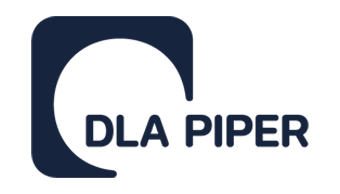
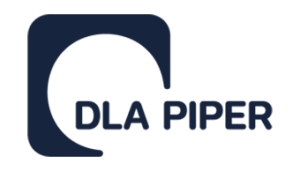
We believe great businesses can make a better world. Forward-thinking, innovative organizations can find the answers to today’s most difficult questions. That’s why, every day, we help them succeed.
Our bold and dynamic culture means we think big and act decisively. Because relationships are at the heart of everything we do for our clients and communities.

![]()
Gibson Dunn is a premier global law firm comprising more than 2,000 lawyers across 22 offices worldwide. The firm’s Transportation and Space Industry Group has substantial experience advising clients on project financing, asset-based lending, joint ventures, public offerings, private placements, commercial contracts, and regulatory matters in the space sector.

![]()
GSOA is a non-profit organisation established with the objective of serving and promoting the common interests of satellite operators from Europe, the Middle East, Africa and the CIS. The Association today represents the interests of 21 satellite operators who deliver information communication services across the globe. Together ESOA Members provide invaluable communications services to the whole world including emergency communications, live broadcasting, maritime and aero communications, secure services for governments, 24-7 monitoring of industrial processes such as energy plants and a whole range of other communications capabilities that society has come to rely on.
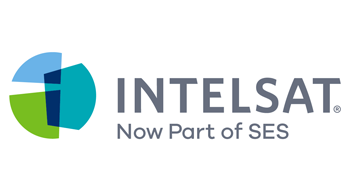

Intelsat operates the largest integrated space and terrestrial network in the world. Each day, we apply our unrivaled expertise and global reach to connect people, businesses, and communities—no matter how challenging. We’re redefining the future of global communications with the world’s first hybrid, multi-orbit, software-defined 5G network designed for simple, seamless, and secure coverage when and where customers need it most.


Lockheed Martin Space drives innovation with legacy mission knowledge and scale, while providing end-to-end solutions. The Space business area serves as a mission integrator, and is responsible for the research and design, development, engineering, and production of platforms and capabilities supporting Deep Space Exploration, Human Space Exploration, Weather & Earth Science, National Security, and Missile Defense technologies.

![]()
Northwood is a next-generation space infrastructure company focused on delivering global, high-performance, distributed satellite ground capacity for government and commercial missions. Northwood’s innovative software-defined ground stations are manufactured at its facility in Torrance, California and designed to scale with the rapid pace of space operations.
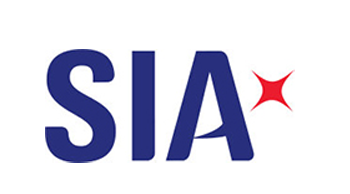
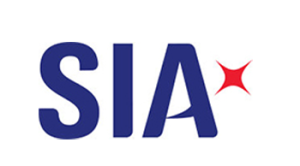
The Satellite Industry Association (SIA) was formed in 1995 by several major US satellite companies as a forum to discuss issues and develop industry-wide positions on shared business, regulatory and policy interests. SIA grew out of the Satellite Super Skyway Coalition, a voluntary alliance of major satellite players, galvanized into action in early 1993 when the U.S. Government began advancing the idea of a Global Information Infrastructure (GII). The success of the coalition in defining the role of satellites in the GII strengthened ties between major industry players and sowed the seeds for what today is the Satellite Industry Association. Since that time, SIA has developed into a full service 501(c) (6) trade association representing the commercial satellite industry. SIA has established active working groups involved with a host of policy issues including: regulatory issues (satellite licensing, spectrum allocation and regulatory policy); government services, public safety, export control policy, and international trade issues. SIA is now a recognized focal point for the U.S. satellite industry in Washington, D.C., representing and advocating industry positions with key policy makers on Capitol Hill and with the White House, Federal Communication Commission and most Executive Branch departments and agencies.


Skylo Technologies is a global Non-Terrestrial Network service provider based in Mountain View, CA, offering a service that allows smartphones and IoT cellular devices to connect directly over existing satellites. Devices connected over satellite are managed and served by Skylo’s commercial NTN vRAN, featuring a 3GPP standards-based cloud-native base station and core. Skylo works with existing satellite operators, network operators, and device makers to provide subscribers an anywhere, anytime connectivity solution between terrestrial and satellite networks. Skylo’s focus is on enabling connected services for people outdoors and connected workflows for machines at work across critical industries such as agriculture, maritime, logistics, mining, and others, in addition to mass-market consumer devices.
We’re a global, fast-growing team, with offices in California, India and Finland.

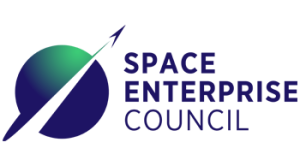
The Space Enterprise Council (SEC) emerged from a critical need identified by NASA and the U.S. Department of Commerce more than 20 years ago. The industry lacked a unified voice that could represent the entire space ecosystem, encapsulating the commercial, civil, and national security sectors.
The SEC is a leading force in international space cooperation and policy, boasting an extensive network and deep expertise across space industry subsectors. As the Chair of the IEEE Space and Cybersecurity Standards International Government SubGroup, the SEC shapes U.S. and global industry advocacy. Its efforts have driven crucial legislation, including defense and NASA authorization bills, and helped advocate for Technology Safeguard Agreements involving Australia, Brazil, and Norway.
The SEC meets regularly with key government officials and hosts issue-specific webinars, engaging with Administration officials, Congressional staff, U.S. Department of State, U.S. Department of War, U.S. Department of Commerce, NASA, U.S. Department of Homeland Security, U.S. Space Force, and U.S. Air Force. The SEC successfully advances space industry interests, while fostering international cooperation and ensuring the highest standards of cybersecurity.


The Commercial Space Federation (CSF) is the leading trade association representing the commercial space industry. We serve as the industry’s voice to policymakers in the U.S. government, international governments and organizations, the media, and the public, advocating for policies that support growth and innovation in the space economy. CSF’s members comprise multiple sectors of the commercial space industrial base, including launch and reentry operations, commercial LEO services, remote sensing and analytics, satellite services, spaceports and infrastructure, commercial lunar and space exploration, space situational awareness (SSA), and space supply chain services.
We have various speaking, sponsor and wider visibility opportunities available at the event. Should you be interested in becoming involved at the Americas Space Forum please contact Tom Chinnock on on tom.chinnock@forum-europe.com / +44 (0) 7785 795 015.
Exclusive speaking positions | Your organization can contribute to the discussion.
Engaging and interactive format | Engage in a fully immersive and interactive debate with decision makers, businesses and policymakers.
US and Global Outreach | Convey your message to a broad and international audience.
Networking opportunities | Networking opportunities will be available to all in person attendees throughout the day.
Visibility opportunities | Ensure maximum visibility through branding in the room, on the event website and marketing activities.
Exhibition and demos area | Showcase your products and solutions or share a position paper with the audience at onsite exhibition booths.
EVENT VENUE
Hogan Lovells, 555 13th St NW, Washington, DC 20004, United States
SUGGESTED ACCOMMODATION
Note: Accommodation has not been booked. Hotel availability and rates are subject to change. A preferential rate has been secured only at Mint House; all other listed hotels are nearby recommendations for your convenience.
Address: 1010 Vermont Ave NW, Washington, DC 20005, United States
Distance from Event Venue: 15 minutes walk (See distance in Google Maps
Address: 815 14th St NW, Washington, DC 20005, United States
Distance from Event Venue: 10 minutes walk (See distance in Google Maps)
Address: 806 15th St NW, Washington, DC 20005, United States
Distance from Event Venue: 10 minutes walk (See distance in Google Maps)
Address: 1000 H St NW, Washington, DC 20001, United States
Distance from Event Venue: 5 minutes walk (See distance in Google Maps)
Address: 1331 Pennsylvania Ave NW, Washington, DC 20004, United States
Distance from Event Venue: 5 minutes walk (See distance in Google Maps)
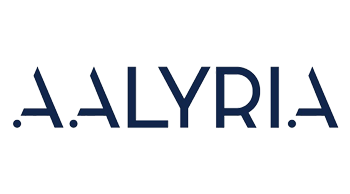

Aalyria is a venture-backed startup that creates and manages the world’s most advanced networks to enable connectivity everywhere at the speed of discovery. Originally developed at Google as part of Project Loon, Aalyria brings together a software platform that orchestrates networks across land, sea, air, space and beyond and an atmosphere laser communications platform. Aalyria works with Telesat, Intelsat, the Defense Innovation Unit, Naval Research Labs, Space Development Agency among many others to realize its mission.

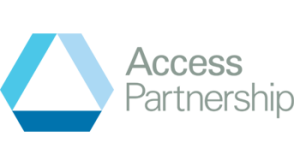
Access are the world’s preeminent tech policy advisory.
They work with companies to enable and optimise their participation in markets across the globe and advise governments on how best to regulate existing and emergent technologies.
Their mission is to make sure as many people as possible have access to transformative technologies without eroding competition or consumer choice.
They believe tech policy must treat all stakeholders fairly.

![]()
Founded in 2018, Aerospacelab is an emerging figure in the aerospace sector, showcasing a remarkable achievement of 8 satellites successfully deployed in orbit. We pride ourselves on our dedication to vertical integration and TRL-9 implementation, solidifying our commitment to driving innovation in the space industry. With our operations strategically placed in various locations, including the U.S., Aerospacelab remains steadfast in its mission to deliver pioneering solutions for our diverse customer community. Aerospacelab recently broke ground on its Megafactory, the world’s third largest satellite manufacturing facility, scheduled to begin operations in 2026.
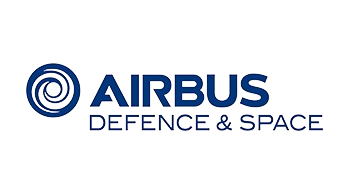

The Integrated Space Solution Programme Unit of Airbus enable trusted space-related information superiority to support national security and business critical operations.
We operate the largest constellation of optical and radar Earth observation satellites commercially available today, with unprecedented accuracy. Derived from our unrivalled data, we process a comprehensive portfolio of high-quality elevation models, global reference layers and grids to provide our customers and partners with information that perfectly matches their needs.
We’re also a world leader in satellite communications and ground infrastructure networks. As Secure Connectivity, we provide governments, militaries and International Agencies with mission-critical voice and high-speed data communications on land, at sea and in the air. We are a key provider of secure communications services, bringing together the most comprehensive satellite communications bandwidth and the best-in-class capabilities for network services and solutions.
As part of Airbus, we benefit from the power of a global leader in aerospace. This guarantees financial stability, intellectual capital and instills confidence in our commitment to being your long-term partner, delivering sustainable geospatial imagery products and services with trust.


Amazon is guided by four principles: customer obsession rather than competitor focus, passion for invention, commitment to operational excellence, and long-term thinking. Amazon strives to be Earth’s most customer-centric company, Earth’s best employer, and Earth’s safest place to work. Amazon has been in Europe since 1998 and has over 220.000 employees and 350+ logistics sites across Europe, with over €215 billion invested since 2010. Amazon’s Project Kuiper is a Low Earth Orbit constellation with the mission to connect unserved and underserved communities around the globe.

![]()
Since its creation in 1980 as the world’s first commercial space transportation company, Arianespace has led the launch services industry with many operational firsts and numerous record-setting missions. 🚀 Arianespace uses space to make life better on Earth by providing launch services for all types of satellites into all orbits. 🛰 It has orbited more than 1,100 satellites since 1980, using its family of launchers. 🚀 Arianespace is headquartered in Evry, near Paris, and has a technical facility at the Guiana Space Center, Europe’s Spaceport in French Guiana, plus local offices in Washington, D.C., Tokyo and Singapore. The company operates the Ariane and Vega family of launchers to ensure Europe’s sovereign access to Space and for the benefit of both institutional and commercial customers worldwide. 🌍 Arianespace is a subsidiary of ArianeGroup, which holds 74% of its share capital, with the balance held by 15 other shareholders from the European launcher industry. 🇪🇺 #MissionToSuccess #DestinationSpace


Astroscale is developing innovative and scalable solutions across the spectrum of on-orbit servicing, including life extension, in situ space situational awareness, end of life, and active debris removal, to create sustainable space systems and mitigate the growing and hazardous build-up of debris in space.
Astroscale is also defining business cases and working with government and commercial stakeholders to develop norms, regulations, and incentives for the responsible use of space.


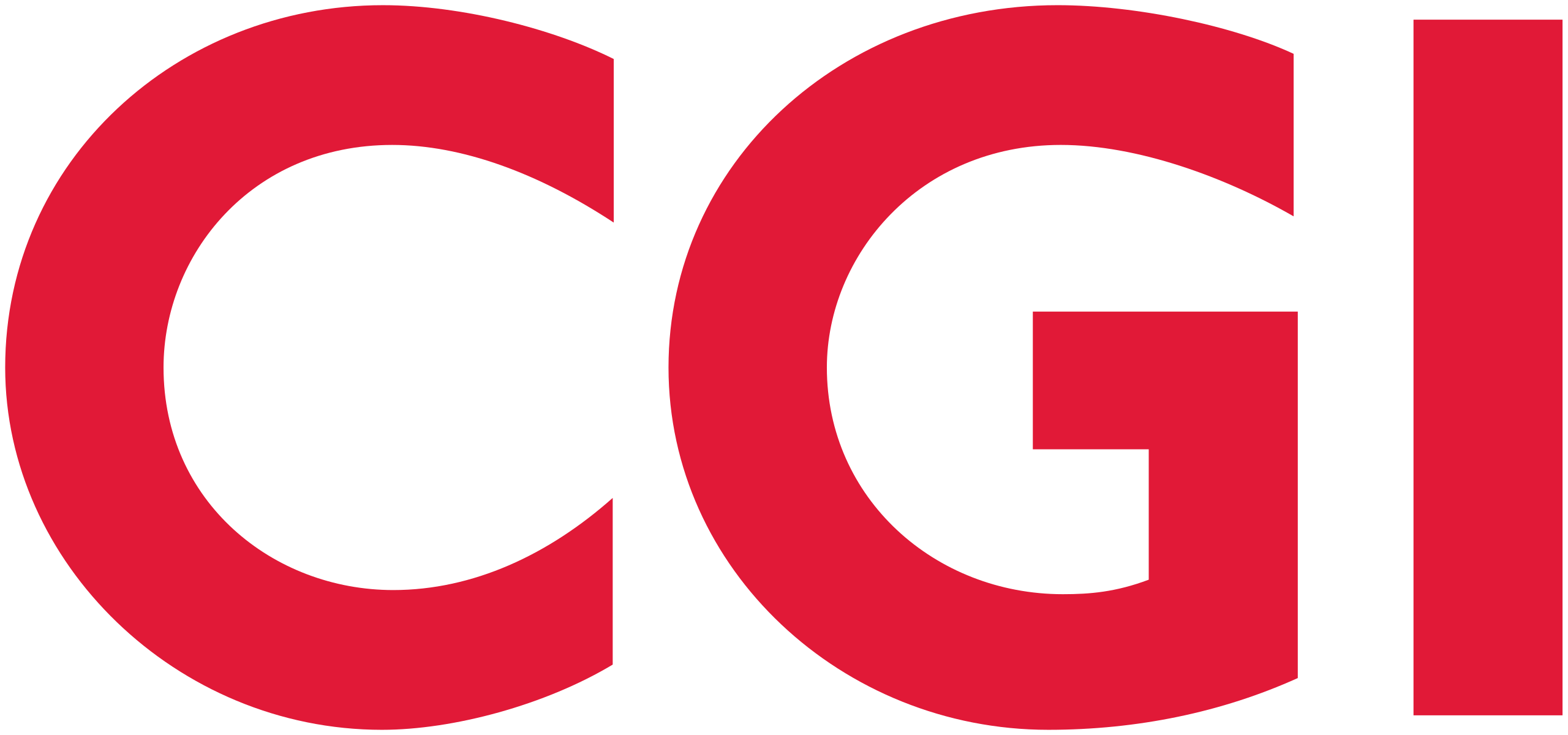
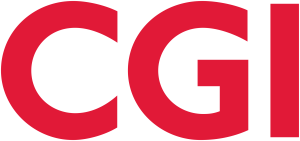
Insights you can act on to achieve trusted outcomes. We are insights-driven and outcomes-focused to help accelerate returns on your investments. Across 21 industry sectors and 400 locations worldwide, we provide comprehensive, scalable and sustainable IT and business consulting services that are informed globally and delivered locally. We value your opinions and welcome your comments and questions on our posts here on LinkedIn. Please keep a polite, professional and constructive tone. We remove comments containing objectionable language and derogatory views. We do not allow content that is unrelated to the subject, and we remove discriminatory and racist comments as well as spam and advertising. Note that content on this page contains general information regarding CGI’s services and initiatives and should not be considered direct business advice.


Comarch Telecommunications has been a trusted solution provider for the satellite operator market since over 20 years. Over the years, our solutions have evolved to meet the changing needs of the satellite and telecommunications industries. Industry leaders such as ThalesAlenia Space, Viasat, and Siminn have entrusted Comarch to understand their requirements and deliver state-of-the-art solutions, confirming our commitment to excellence and innovation. Comarch’s approach is to deliver a network-agnostic solution, and we do not limit ourselves to servicing a specific supplier. Instead, we offer solutions that cover multiple network hardware suppliers, providing you with the flexibility to plan, implement, and control satellite network (both terrestrial and space ones).
We offer a wide range of solutions designed to manage every aspect of the network, services, billing, and customer management. Whether you are a satellite operator or a terrestrial operator utilizing satellite services, such as cable companies, data providers, or SAT Internet providers, we have the expertise and tools to optimize your operations. We have already supported our partners in delivering services operating in geostationary and mid-earth orbit, and we know that the next satellite revolution will come with low-earth orbit constellations, opening a whole new range of opportunities. Our BSS and OSS solutions is ready to accompany you in the new opening markets like 5G direct to cell or low-earth orbit high-speed internet connectivity.
https://www.comarch.com/telecommunications/satellite-industry/


Navigating the Future.
Providing reliable, safe and secure space services is our daily business – and our passion. We are responsible for managing Europe´s biggest spacecraft constellation: the European Satellite Navigation System GALILEO. On behalf of the European Commission we operate from our headquarters at the Galileo Control Center (GCC-D) in Oberpfaffenhofen, Germany.
The Sky is not the Limit.
Thanks to the technical infrastructure we have implemented, we ensure 99,99% service availability. DLR GfR’s constellation operations services at GCC-D comprise 24/7 routine operations and maintenance the Galileo satellites and of the related ground segment infrastructure.
From GCC-D we organise the operation of the globally distributed Galileo infrastructure, both on-ground and in-orbit, throughout all mission phases. This includes mission planning and flight dynamics services, efficient team training and management, reliable configuration monitoring and global service-level tracking and monitoring.
International and diverse.
With our international team of more than 270 experts, we offer our customers excellent service and navigate the Galileo project with foresight into the future.
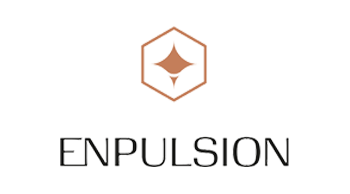

ENPULSION is the world’s leading manufacturer of electric propulsion systems for nano- and microsatellites. The company is based in Wiener Neustadt, Austria, and has a business development office in the USA. Its products are based on the company’s proprietary Field-Emission Electric Propulsion (FEEP) technology, behind which are more than 30 years of research and development work in cooperation with the European Space Agency (ESA) and the Research Facility FOTEC.
In its own semi-automated production facility ENPULSION manufactures the ENPULSION MICRO and the ENPULSION NANO Thruster (formerly IFM NANO) families – the only compact, scalable, and modular electric propulsion systems worldwide. The ENPULSION NANO Thruster became the first European electric propulsion thruster to fly on a constellation of satellites.
As of May 2023, there are more than 170+ ENPULSION active thrusters in space with more than 300 units delivered to customers. The company is ISO 9001:2015 quality certified for the development, testing, serial production, and distribution of space propulsion systems.

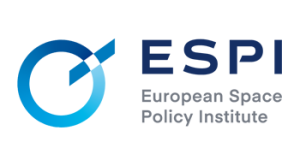
Founded in 2003, European Space Policy Institute (ESPI) is Europe’s independent think tank for space based in Vienna, Austria – the world’s capital of space diplomacy. Working in non-profit capacity, ESPI promotes European space policy on a global level, facilitates an active forum for the analysis and discussion of European needs, capabilities, and long-term prospects in space activities, and makes proposals and recommendations to European decision-makers. In line with its policy vision, ESPI2040: Space for Prosperity, Peace and Future Generations, ESPI advocates for a strong Europe as a partner to the world.

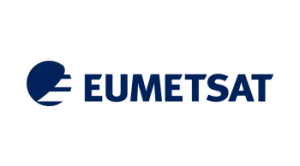
EUMETSAT, Europe’s meteorological satellite agency, monitors the weather and climate from space. Based in Darmstadt, Germany, EUMETSAT provides its 30 member states with meteorological imagery and data that are essential for keeping their communities safe and for the benefit of critical sectors of their economies.
Four Meteosat satellites in geostationary orbit deliver continuous observations of fast developing severe weather events over Europe, Africa and the Indian Ocean. Two polar-orbiting Metop satellites provide data of pivotal importance for forecasts up to 10 days ahead. The first of the next-generations satellites in these systems will be launched in 2022 and 2023, respectively.
EUMETSAT’s archive of satellite observations over more than 40 years provides climate scientists around the world with long-term, homogenous data necessary for monitoring climate change.
EUMETSAT is a key partner in the European Union’s Copernicus Earth observation programme. It operates the Copernicus Sentinel-3 and -6 ocean-monitoring missions, and will operate the upcoming CO2M mission, to monitor carbon dioxide emissions. Data from these, and EUMETSAT’s own missions, are provided to the Copernicus climate, atmosphere monitoring and marine environment services.
Together with NASA, NOAA, the EU, ESA and with support from the French Space Agency, CNES, EUMETSAT is a partner in the Jason ocean-monitoring mission.
EUMETSAT cooperates with agencies around the world, securing additional satellite data of benefit to weather forecasting and climate monitoring.


Eutelsat Group is a global leader in satellite communications, delivering connectivity and broadcast services worldwide. The Group was formed through the combination of the Company and OneWeb in 2023, becoming the first fully integrated GEO-LEO satellite operator with a fleet of 36 Geostationary satellites and a Low Earth Orbit (LEO) constellation of more than 600 satellites. The Group addresses the needs of customers in four key verticals of Video, where it distributes more than 6,500 television channels, and the high-growth connectivity markets of Mobile Connectivity, Fixed Connectivity, and Government Services. Eutelsat Group’s unique suite of in-orbit assets and ground infrastructure enables it to deliver integrated solutions to meet the needs of global customers. The Company is headquartered in Paris and the Eutelsat Group employs more than 1,700 people across more than 50 countries. The Group is committed to delivering safe, resilient, and environmentally sustainable connectivity to help bridge the digital divide. The Company is listed on the Euronext Paris Stock Exchange (ticker: ETL) and the London Stock Exchange (ticker: ETL)


GMV is a trusted partner of leading Satellite Operators, Satellite Manufacturers and Space Agencies worldwide. Since 1984, we provide engineering, software & hardware development and systems integration in the areas of mission analysis, GNC, avionics, satellite and mission control, flight dynamics, data processing, mission planning, fleet management, navigation, on board software, robotics and applications. Involved in more than 900 satellite missions and having a large portfolio of flight proven products.
Today we are a worldwide leader in satellite-navigation systems (including a major role on European Galileo/EGNOS, international SBAS systems and GNSS applications), a worldwide leader of ground systems for telecommunications operators (Eutelsat, Hispasat, SES, Intelsat, Inmarsat…more than 40 operators worldwide), a European leader of ground control systems and data processing for Earth observation and meteorology (Earth Explorers, Copernicus, Paz, Microcarb, MTG, EPS SG), a European leader of avionics and advanced GNC systems for planetary defense (Hera), technology demonstration missions (PROBA-3), launchers (VEGA, PLD) and space exploration (Moon missions, MSR), a European leader of space surveillance (SSA and EUSST/STM) and robotics (Exomars), a European reference in satellite operations engineering (DLR, ESA, CNES) and user applications (security, agriculture, maritime… among others).
GMV is one of the strongest worldwide players in Satellite Navigation particularly through our contribution to EGNOS/Galileo, being today the responsible for the maintenance and evolution of the Galileo Control System (GCS), having the responsibility of the critical subsystems in the Galileo Mission System (GMS) and procuring the infrastructure/services of the major Galileo Service centers (GSC, GRC, TGVF, SAR-RLSP, GSMC, GSSC, HADG).



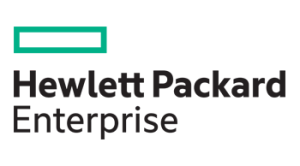
HPE is the global edge-to-cloud company built to transform your business. How? By helping you connect, protect, analyze, and act on all your data and applications wherever they live, from edge to cloud, so you can turn insights into outcomes at the speed required to thrive in today’s complex world.


ICEYE delivers unparalleled persistent monitoring capabilities to detect and respond to changes in any location on Earth, faster and more accurately than ever before.
Owning the world’s largest synthetic aperture radar (SAR) satellite constellation, ICEYE provides objective, near real-time insights, ensuring that customers have unmatched access to actionable data, day or night, even in challenging environmental conditions. As a trusted partner to governments and commercial industries, ICEYE delivers intelligence in sectors such as insurance, natural catastrophe response and recovery, security, maritime monitoring, and finance, enabling decision-making that contributes to community resilience and sustainable development.
ICEYE is headquartered in Finland and operates from five international locations. ICEYE has more than 600 employees, inspired by the shared vision of improving life on Earth by becoming the global source of truth in Earth Observation.


Indra is one of the leading global technology and consulting companies and the technological partner for core business operations of its customers worldwide. It is a world-leader in providing proprietary solutions in specific segments in Transport and Defence markets, and a leading firm in Digital Transformation and Information Technologies in Spain and Latin America through its affiliate Minsait. Its business model is based on a comprehensive range of proprietary products, with a high-value, end-to-end focus and with a high innovation component. In the 2022 financial year, Indra achieved revenue totaling €3.851 million, with almost 57,000 employees, a local presence in 46 countries and business operations in over 140 countries.
Indra has a strong technological and engineering background and expertise with operations in the space sector for more than 30 years. Indra has played a relevant role in the development of major EU space programs, specifically focusing on the ground segment (command and control, security, antennas, communications, etc.), as the Copernicus Earth observation system and the Galileo global geo-positioning system. It has also deployed the ground segment of Paz, the Spanish Earth observation satellite, and, in partnership with ENAIRE, a company linked to the new space, it has launched Startical, which is working on the development of a constellation with more than 200 small satellites for providing air traffic management services around the globe.
Indra has developed the S3T Surveillance Radar. It is a ground-based radar, based in a close monostatic configuration, operating at L band and capable of providing positional information of orbital objects. The radar provides automatic surveillance and tracking of space objects in Low Earth Orbit (from 200 km to 2000 Km of orbit height above Earth). Currently operated by the Spanish Air and Space Force in the Space Surveillance Operations Center (COVE), it supplies daily data to the European Union Space Surveillance and Tracking Partnership (EU-SST) consortium network, to which it has contributed with a substantial increase in its capacity to detect and aware.




MethaneSAT is the most advanced methane tracker in space. By end of 2024, it will measure emissions almost anywhere on Earth with greater precision than any other satellite – from large leaks to sources too small for other satellites to see. Its initial mission is to quantify methane coming from the global oil & gas industry. MethaneSAT data will be free and publicly available to catalyze faster action by countries and companies to fix problems faster and more effectively. With high precision measurement capabilities and a wide view path, MethaneSAT will track not only the rate at which methane is being emitted and from where, but how those emissions are changing – making it easier to prioritize solutions for maximum benefit. It will quantify emission rates from the global level on down to sites as small as one kilometer.


Neuraspace is a pioneer company in the use of AI/ML to fight Space Debris and collisions that can destroy satellites, enabling satellite operators to detect up to 50% more high-risk collisions that have been so far undetected and reducing the need for human intervention up to 2/3.
Neuraspace allows satellite operators to reduce operational manpower efforts, in particular for large constellations. The number of false alerts will be fewer, and the time between close approach and manoeuvre decision will be less. Thus, you will save on fuel and time, while collisions and the menace of space debris will be minimized.
Neuraspace provides an end-to-end solution centered around: (1) Data Fusion; (2) AI and Machine Learning; and (3) Manoeuvring Automation.
To contribute to the evolution of spacecraft operations, Neuraspace aims to solve the space debris problem by protecting satellites operators from the losses caused by collisions, liabilities from leaving debris in orbit and allowing insurance companies to better price the risk that each satellite poses.
The continuous increase in space traffic and debris in the last years lead to a significant increase in the amount of information related to conjunction events. This situation poses a very complex challenge to space operators as the conjunction events need a careful “manual” analysis, which is time, cost and effort consuming. AI (specifically ML) algorithms represent an essential technique in the automation of this process, mainly due to its ability to handle big amounts of data.
By using a data driven approach with state of the art Machine Learning techniques, Neuraspace is able to outperform the current methods, while automating the process of collision risk avoidance. Neuraspace enables the timely detection of up to 33% more high-risk collisions that have been so far undetected, thus securing space operations.




OKAPI:Orbits is an innovative German SaaS startup dedicated to making space travel more sustainable through Collision Avoidance Software for satellites. The OKAPI:Orbits team envisions a safe and sustainable space environment, truly accessible to everyone. We are laser-focused on creating innovative and efficient products to enable safe and secure satellite operations and seamless ground segment integration. As experts in Space Situational Awareness (SSA) and Space Surveillance and Tracking (SST), we offer platform services based on standardized interfaces with a wide range of flexible modules to meet the specific needs of our customers.




OroraTech is a thermal data intelligence company headquartered in Munich, Germany, with the mission to create truth for a net-zero economy and protect our environment. Their leading Wildfire Solution is used by clients all over the globe, monitoring more than 160 million ha of forest. The service will be complemented by multipurpose thermal-infrared sensing nanosatellites with in-space artificial intelligence to improve real-time response and to improve continuous coverage. The first of its kind satellite was successfully launched in January 2022 and will be expanded to a fleet of 100 satellites over the following years. Founded in 2018, the company has grown to an international team of over 80 employees supported by private and institutional investors, the European Space Agency, and the governments of Germany and Bavaria.


PLD SPACE – Opening Space for Everyone
We are an engineering, manufacturing and service company, with deep expertise in space launch technologies, and with the aim of becoming a leading player in the space launch services on the international market through an affordable, first-class and highly-flexible small satellite launch service experience. Our vision is to unleash the power of exploration and discovery to improve life down here on Earth.


Reflex Aerospace, a NewSpace startup founded in 2021 and headquartered in Munich and Berlin, offers rapid, payload-centric, dual-use, secure-by-design small satellite solutions. They apply modern manufacturing advancements to a unique design process resulting in enhanced reliability, the highest-performing core avionics in class, and improved delivery times.
https://www.reflexaerospace.com/
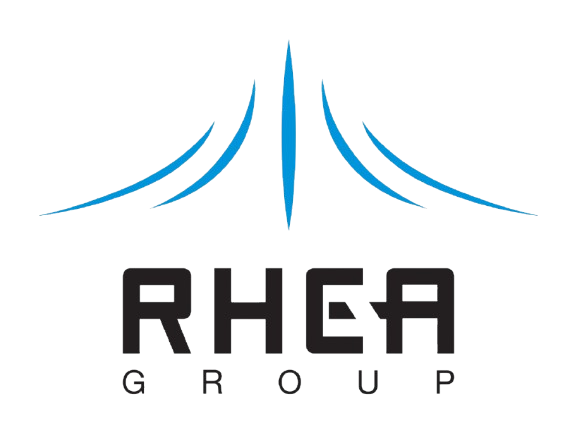
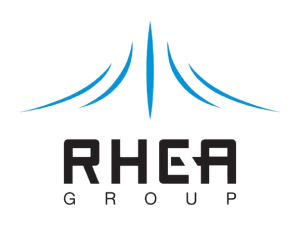
RHEA Group is a professional engineering and solutions company, offering engineering solutions, system development and security services for space, government, defence and other critical infrastructure organizations across Europe and North America. Over the past 30 years, we have built a reputation as a trusted partner. We develop solutions that help drive organizational and cultural initiatives, leading to sustainable added value for our clients. Headquartered in Belgium, RHEA also works in Czech Republic, France, Germany, Italy, Luxembourg, The Netherlands, Spain, UK, Switzerland and Canada. RHEA has supported over 120 space missions, including CubeSats, SmallSats, complex science spacecraft, Earth observation and communications satellites, and multi-satellite constellations. Our clients include the European Space Agency (ESA), EUMETSAT, European Commission, EU Agency for the Space Programme (EUSPA) and national space agencies. Our experts in areas such as cybersecurity and concurrent design are recognized as global leaders in their domains. As a fast-growing company, we offer our employees the chance to grow within a supportive environment and to work on some of the most diverse and interesting programmes that contribute to the changing space, security and engineering sectors. Visit our website to learn more about how working for RHEA could be rewarding for your career.
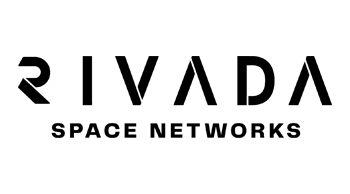
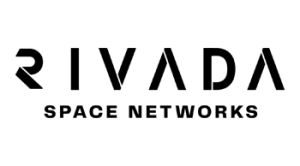
Rivada Space Networks is set to establish and operate the Rivada Outernet: a global low latency point-to-point connectivity network of LEO satellites. By connecting its satellites with lasers, Rivada Space Networks will provide resellers and B2B customers with the ability to securely connect any two points on the globe with low latency and high bandwidth. The constellations, comprising 600 low-earth-orbit communications satellites, will represent a fundamental change in the availability of secure, global, end-to-end enterprise-grade connectivity for Telecom, Enterprise, Maritime, Energy and Government Services markets.



 We bring together the right people, the right technology and the right partners to create innovative solutions that make positive impact and address some of the most urgent and complex challenges facing the modern world. With a focus on serving governments globally, Serco’s services span justice, migration, defence, space, customer services, health, and transport. Our core capabilities include service design and advisory, resourcing, complex programme management, systems integration, case management, engineering, and asset & facilities management.
We bring together the right people, the right technology and the right partners to create innovative solutions that make positive impact and address some of the most urgent and complex challenges facing the modern world. With a focus on serving governments globally, Serco’s services span justice, migration, defence, space, customer services, health, and transport. Our core capabilities include service design and advisory, resourcing, complex programme management, systems integration, case management, engineering, and asset & facilities management.

 SES is the world-leading satellite operator and the first to deliver a differentiated and scalable GEO-MEO offering worldwide, with more than 50 satellites in Geostationary Earth Orbit (GEO) and 16 in Medium Earth Orbit (MEO). SES focuses on value-added, end-to-end solutions in two key business units: SES Video and SES Networks. The company provides satellite communications services to broadcasters, content and internet service providers, mobile and fixed network operators, governments and institutions. SES’s portfolio includes SES Americom, one of the earliest operators of commercial GEO satellites, SES Government Solutions, which is exclusively focused on the needs of the U.S. Government, as well as GovSat, a 50/50 public-private partnership between SES and the Luxembourg government. SES also owns the ASTRA satellite system, which has the largest DTH television reach in Europe, MX1, a leading media service provider offering a full suite of innovative services for both linear and digital distribution, and O3b, the only non-geostationary system delivering fibre-like broadband services.
SES is the world-leading satellite operator and the first to deliver a differentiated and scalable GEO-MEO offering worldwide, with more than 50 satellites in Geostationary Earth Orbit (GEO) and 16 in Medium Earth Orbit (MEO). SES focuses on value-added, end-to-end solutions in two key business units: SES Video and SES Networks. The company provides satellite communications services to broadcasters, content and internet service providers, mobile and fixed network operators, governments and institutions. SES’s portfolio includes SES Americom, one of the earliest operators of commercial GEO satellites, SES Government Solutions, which is exclusively focused on the needs of the U.S. Government, as well as GovSat, a 50/50 public-private partnership between SES and the Luxembourg government. SES also owns the ASTRA satellite system, which has the largest DTH television reach in Europe, MX1, a leading media service provider offering a full suite of innovative services for both linear and digital distribution, and O3b, the only non-geostationary system delivering fibre-like broadband services.








 Drawing on over 40 years of experience and a unique combination of skills, expertise and cultures, Thales Alenia Space delivers cost-effective solutions for telecommunications, navigation, Earth observation, environmental management, exploration, science and orbital infrastructures. Governments and private industry alike count on Thales Alenia Space to design satellite-based systems that provide anytime, anywhere connections and positioning, monitor our planet, enhance management of its resources, and explore our Solar System and beyond. Thales Alenia Space sees space as a new horizon, helping to build a better, more sustainable life on Earth. A joint venture between Thales (67%) and Leonardo (33%), Thales Alenia Space also teams up with Telespazio to form the parent companies’ Space Alliance, which offers a complete range of services. Thales Alenia Space posted consolidated revenues of approximately 2.15 billion euros in 2021 and has around 8,900 employees in 10 countries with 17 sites in Europe and a plant in the US.
Drawing on over 40 years of experience and a unique combination of skills, expertise and cultures, Thales Alenia Space delivers cost-effective solutions for telecommunications, navigation, Earth observation, environmental management, exploration, science and orbital infrastructures. Governments and private industry alike count on Thales Alenia Space to design satellite-based systems that provide anytime, anywhere connections and positioning, monitor our planet, enhance management of its resources, and explore our Solar System and beyond. Thales Alenia Space sees space as a new horizon, helping to build a better, more sustainable life on Earth. A joint venture between Thales (67%) and Leonardo (33%), Thales Alenia Space also teams up with Telespazio to form the parent companies’ Space Alliance, which offers a complete range of services. Thales Alenia Space posted consolidated revenues of approximately 2.15 billion euros in 2021 and has around 8,900 employees in 10 countries with 17 sites in Europe and a plant in the US.


Viasat is a global communications company that believes everyone and everything in the world can be connected. With offices in 24 countries around the world, our mission shapes how consumers, businesses, governments and militaries around the world communicate and connect. Viasat is developing the ultimate global communications network to power high-quality, reliable, secure, affordable, fast connections to positively impact people’s lives anywhere they are—on the ground, in the air or at sea, while building a sustainable future in space. In May 2023, Viasat completed its acquisition of Inmarsat, combining the teams, technologies and resources of the two companies to create a new global communications partner. Learn more at www.viasat.com.
Stay up to date
Sign up to receive updates on our upcoming policy events.